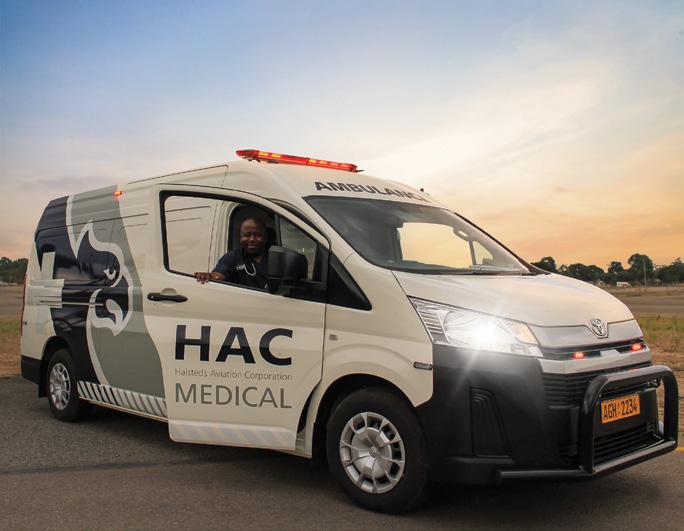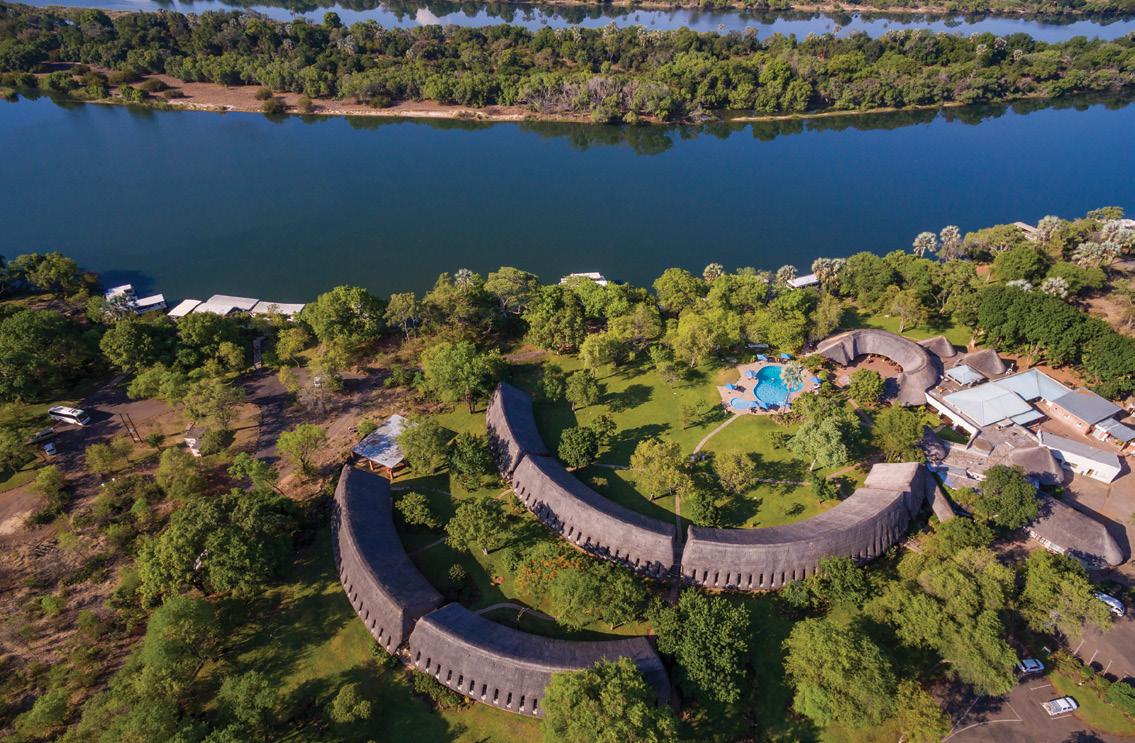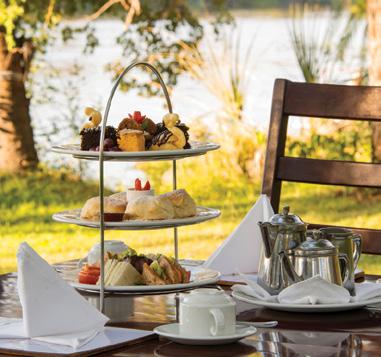
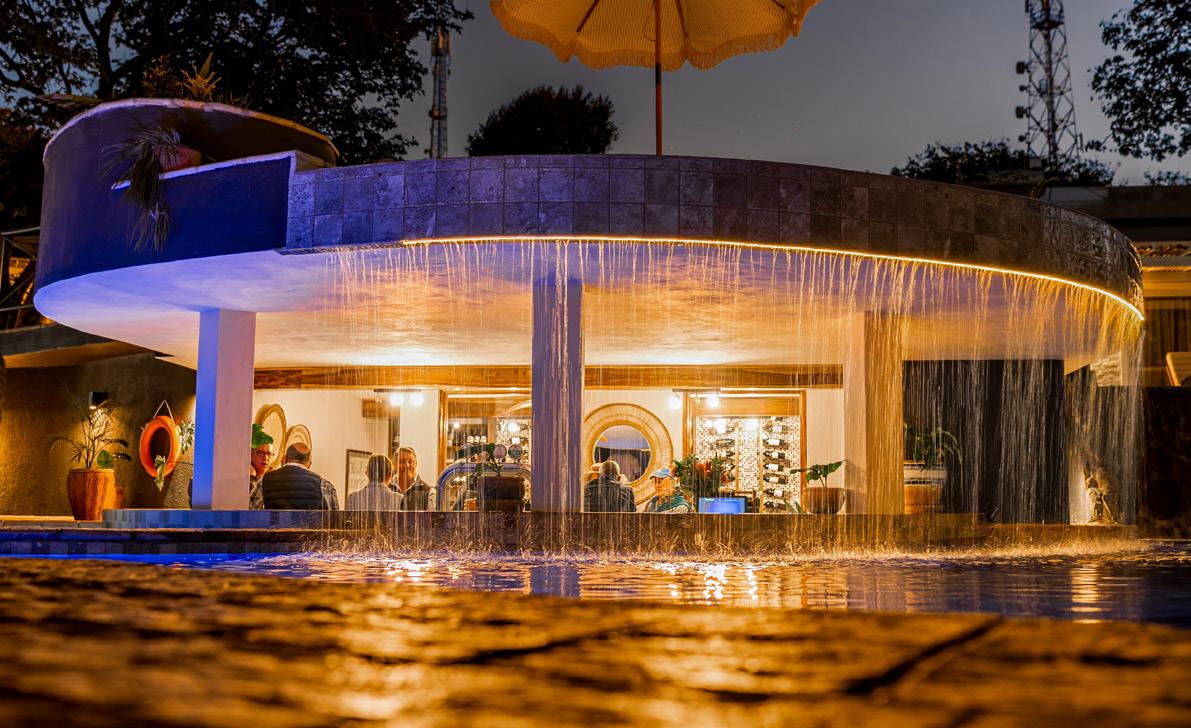
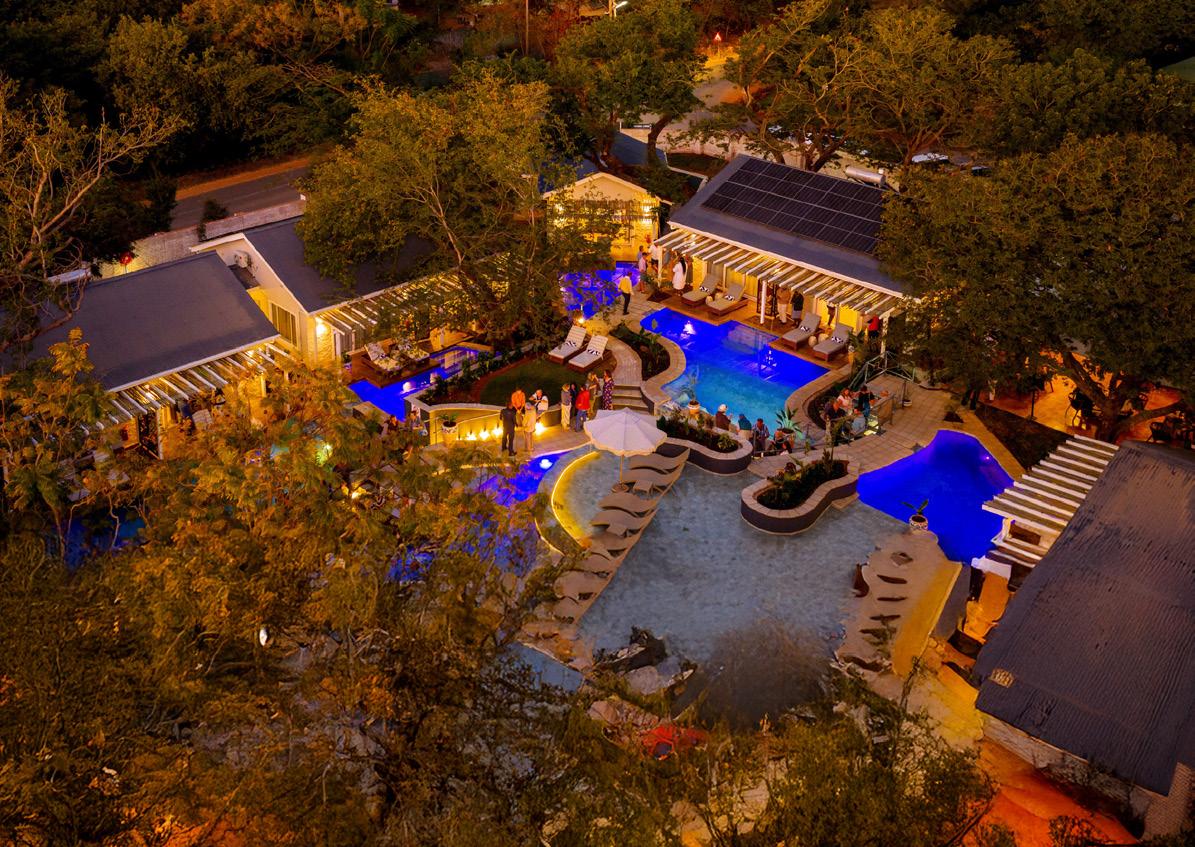




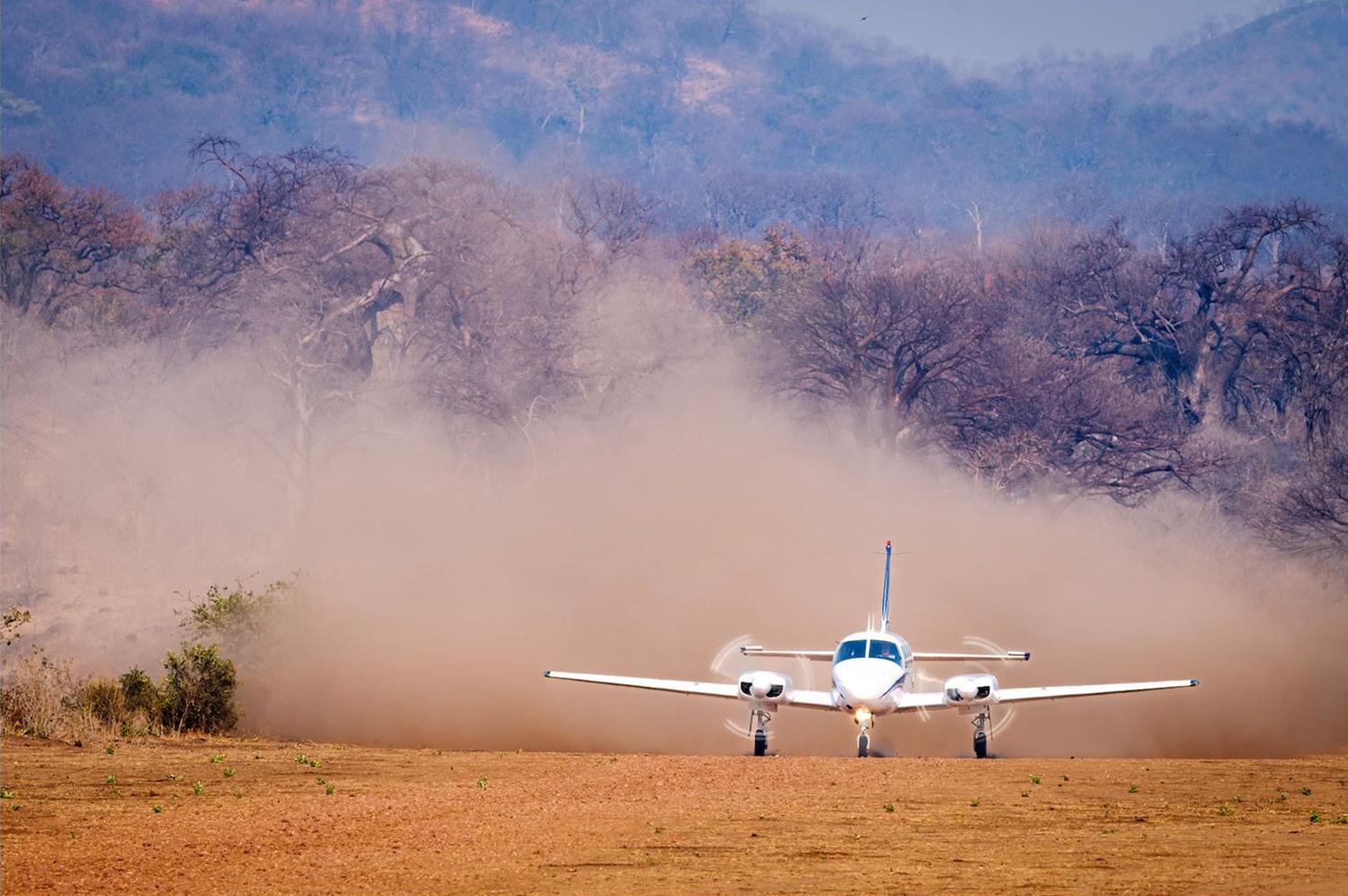


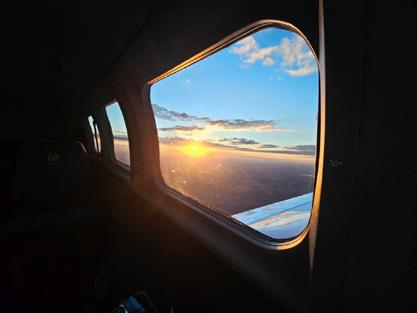
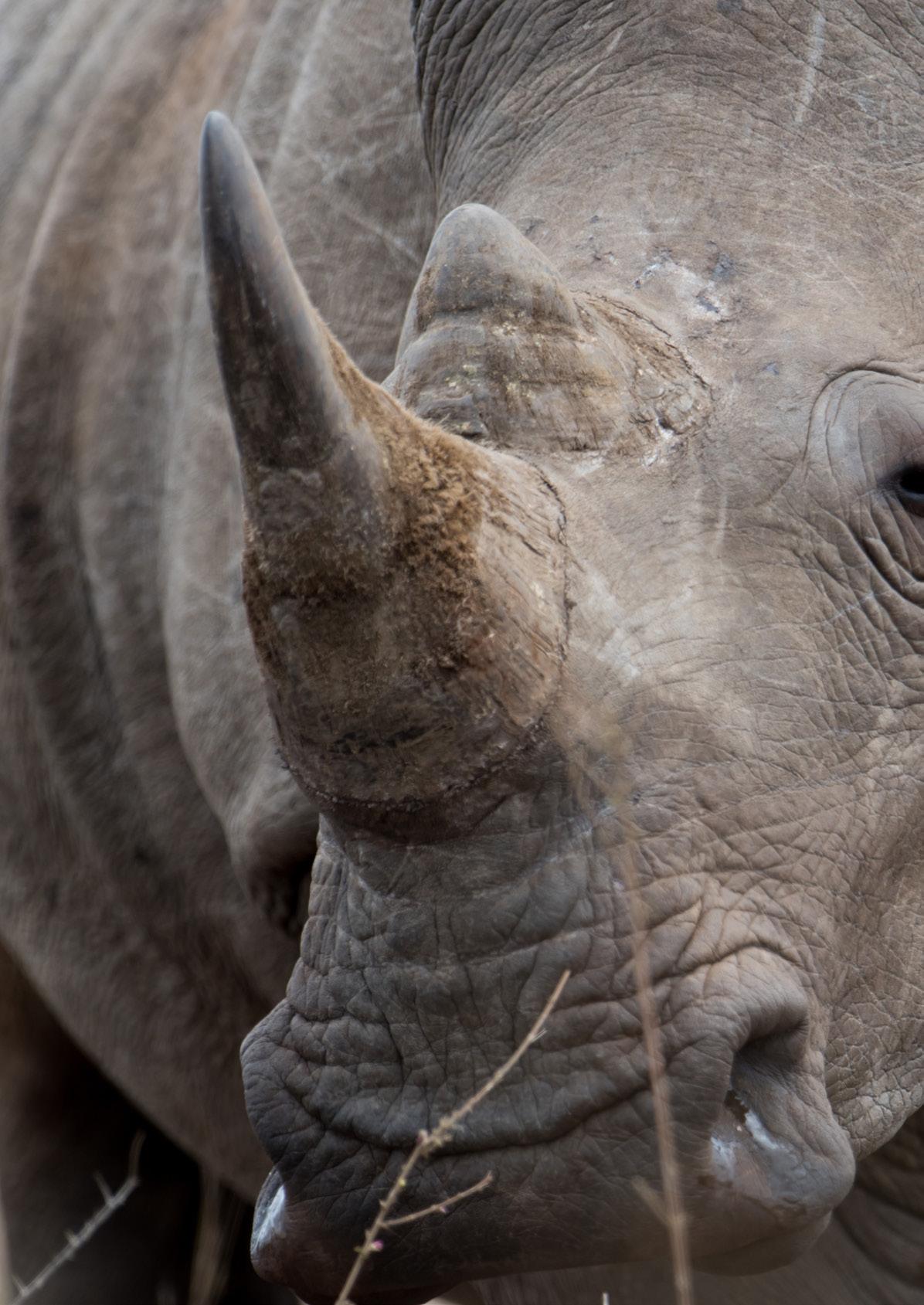


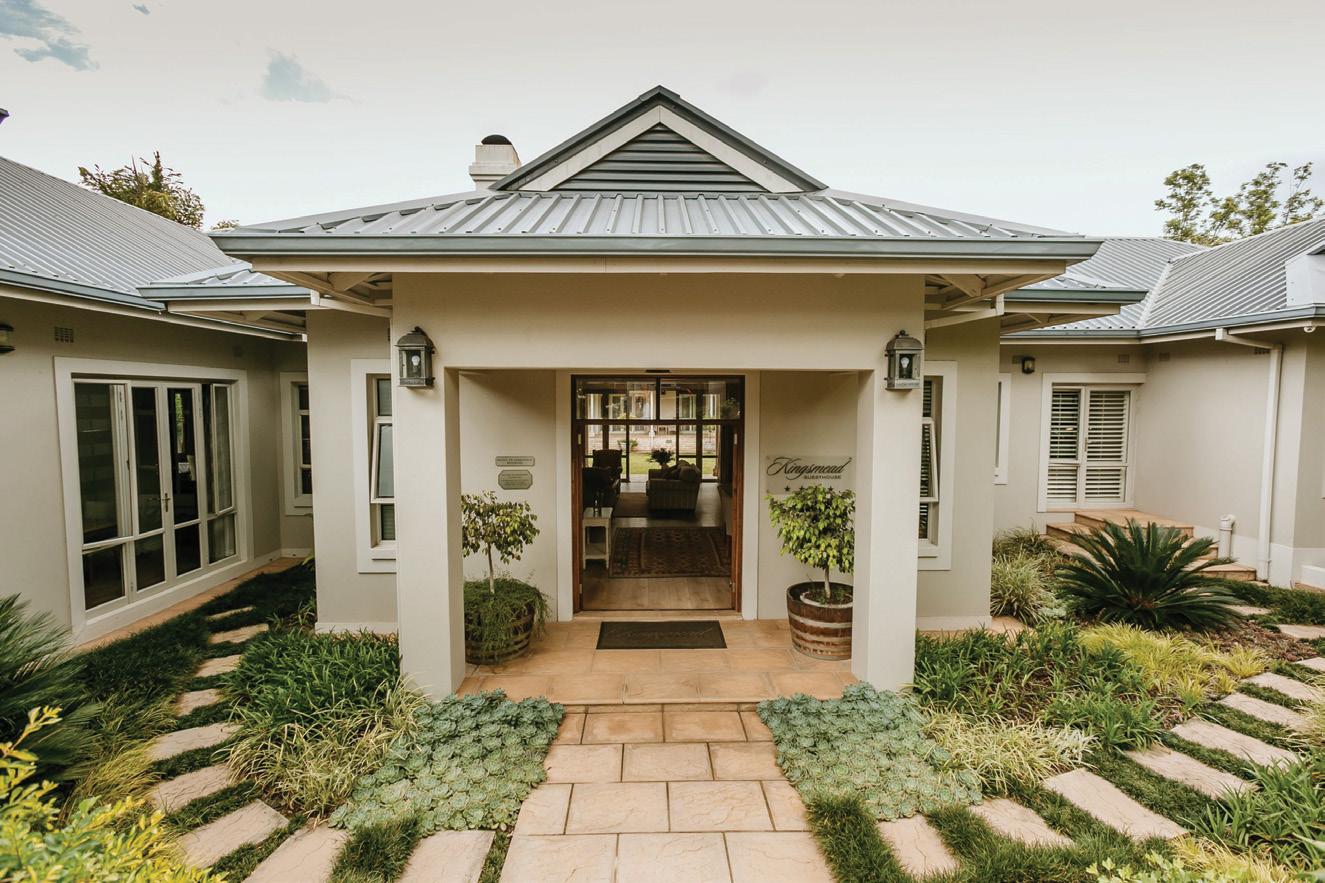



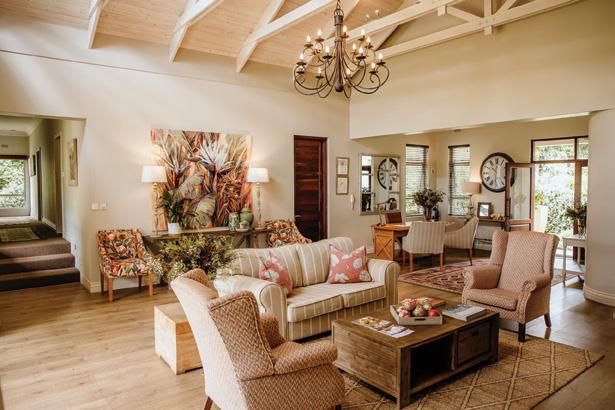
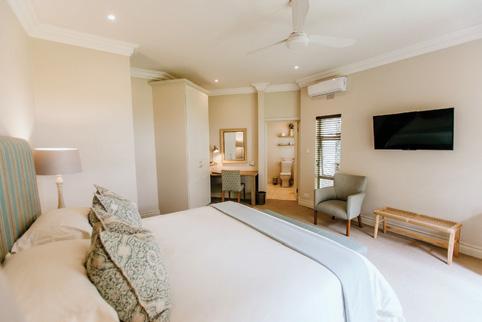
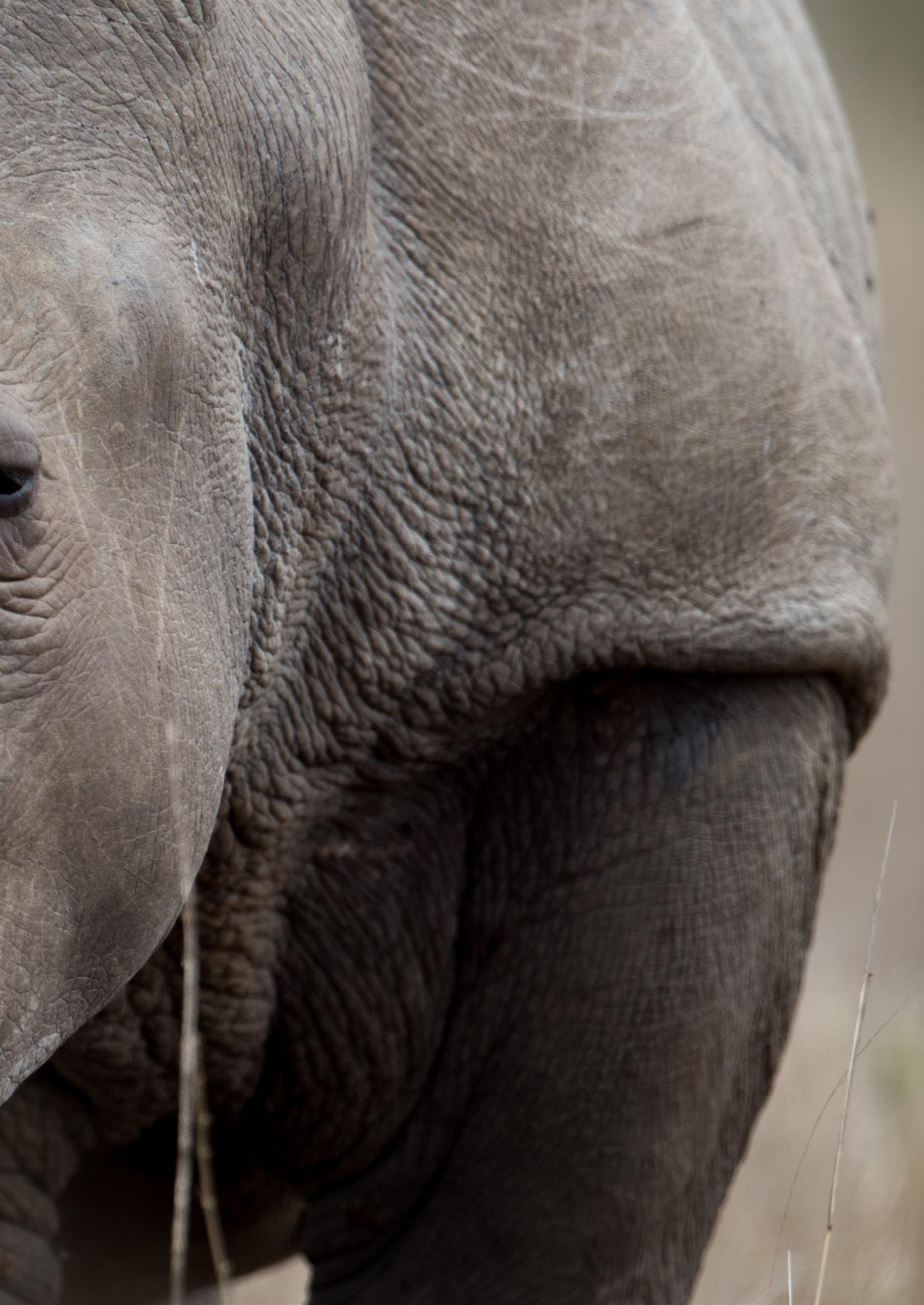

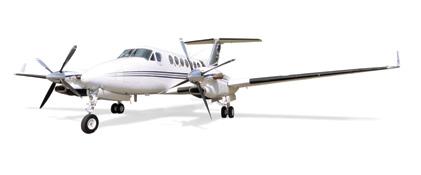










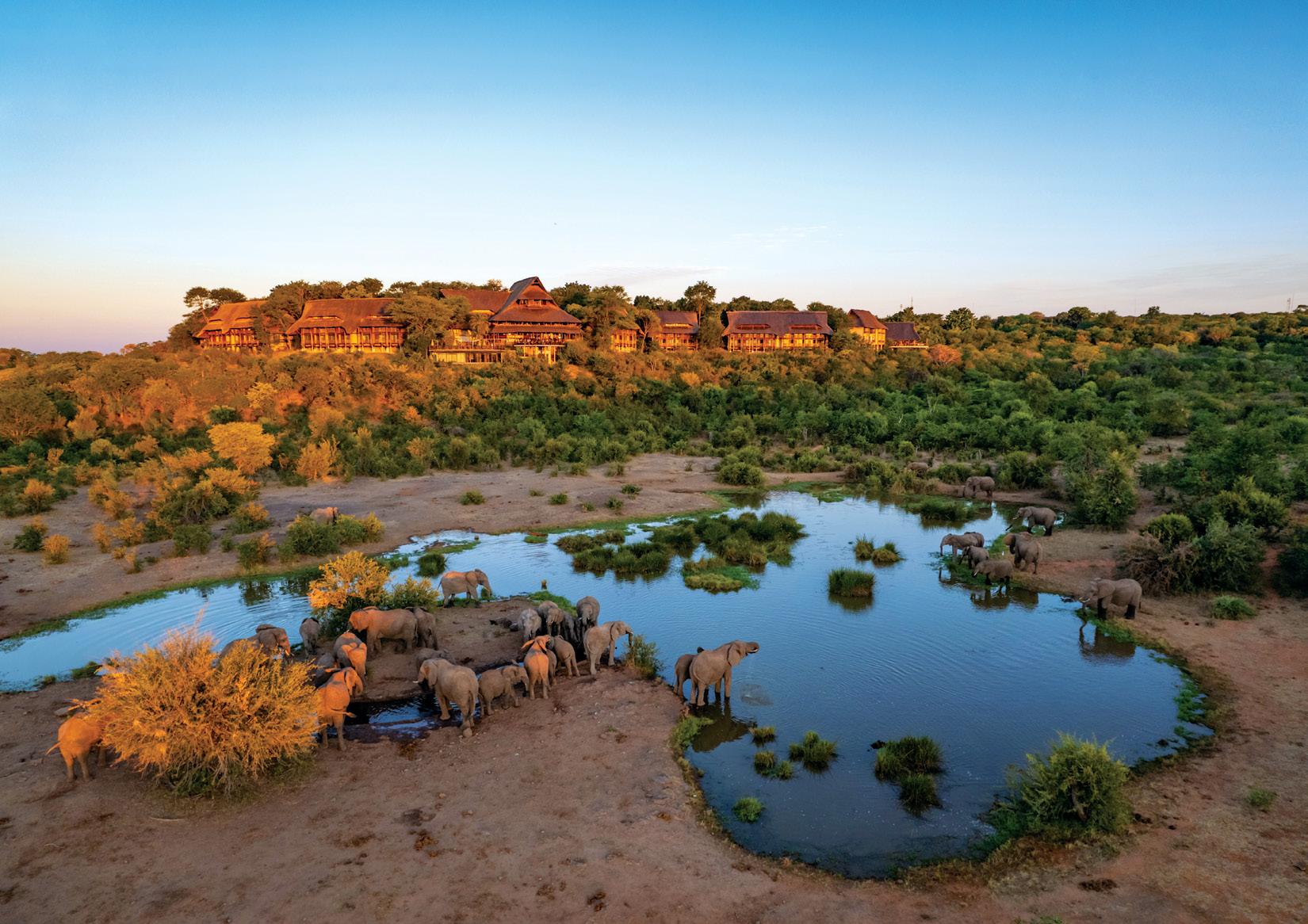
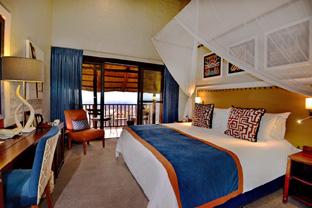
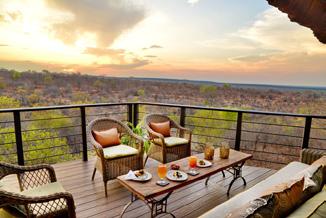
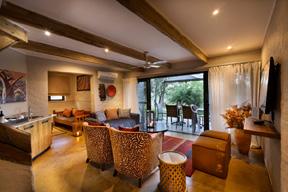
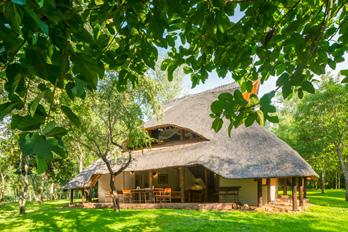


•
•
•
•
•
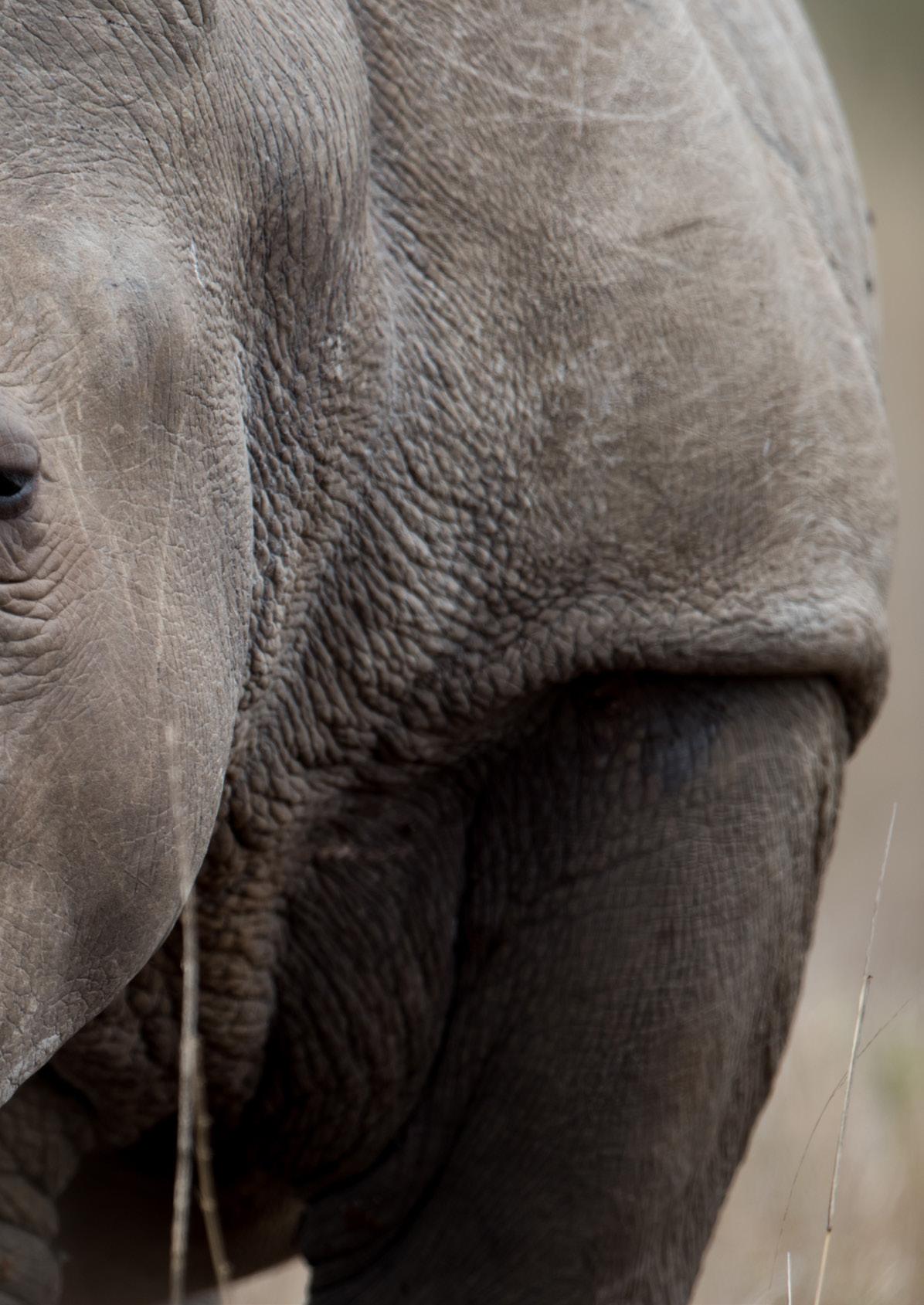










































•
•
•
•
•










This edition is a vibrant showcase of the resilience, investment, and passion that continues to position Zimbabwe as “A World of Wonders.”
Victoria Falls’ newest luxury retreat, Samanzi Lodge, is redefining the self-contained experience. Part of the lauded Shongwe Lookout family, which earned a 5-star rating since opening in 2019, Samanzi received its first guests in July 2025.
The lodge boasts 15 selfcontained cabanas, each designed to ensure a tranquil and coherent vision of elegance. Due to the steep slopes, the exterior features a stunning landscape of 6 pools and 9 waterfalls set within luxuriant, tropical gardens.
Cabanas feature front decks that appear to float over the pools, offering direct water access and private sun loungers, ensuring a uniquely chilled, secluded vibe for every guest.
The Association of Zimbabwe Travel Agents (AZTA) successfully hosted its much anticipated annual awards gala on September 6, 2025, at the opulent Hyatt Regency Hotel in Harare.


Under the glittering lights of an ‘80s Disco Fever’ theme, the event transformed into a vibrant and high-energy celebration of the best and brightest across Zimbabwe’s travel and tourism sector.
Attended by industry leaders, government representatives, and media, the evening was a powerful demonstration of the sector’s resilience and dynamic growth. It not only celebrated dedication and professional excellence but also provided a spectacular platform for networking, strategic discussions, and fun, complete with one of the country’s best raffle draws.






This aligns with the sector’s seismic shift toward highoctane 4x4 adventure safaris and overlanding expeditions, opening up new, challenging routes across remote rural areas.
In accommodation news, the Golden Palm Boutique Hotel in Mount Pleasant recently showcased its renewed commitment to high-quality hospitality by hosting local and regional travel writers. Meanwhile, Nyama Choma Resort is becoming a go-to culinary destination, celebrating authentic African cuisine and genuine hospitality.



MARKETING
Newton Musara Kudzai Bokani Mvulo
+263 789 532 918
+263 781 134 519
DESIGN, SOCIAL MEDIA AND WEBSITE
Saul Chidakwa
Olga Gertrude Dzingo
Tinaani Francis Garikayi
Zimiso Geoffrey Nyamande
Princess Rumbidzai Kuvengurwa
Albert Chitumba
JOURNALISTS
Martin Chemhere
Michael Nott
CONTRIBUTORS
Rtg Group
Musangano Lodge Shashani Lodge
PHOTOGRAPHY
Aviation infrastructure is receiving a major boost as Buffalo Range International Airport in Chiredzi undergoes significant rehabilitation, focusing on upgrading its taxiways to enhance safety and air traffic flow. This is key to unlocking tourism potential in the South-Eastern Lowveld.
Elsewhere, the Eastern Highlands is establishing itself as a premier destination for adventure tourism, moving away from traditional game viewing to focus on walking, hiking, and botanical exploration amidst its cool, lush landscapes.
Conservation efforts are ramping up: The Hwange Conservation Society (HCS) has significantly increased operational support for antipoaching and water provision in Hwange National Park. Further strengthening wildlife protection, the Anti-Poaching K-9 Foundation TRUST celebrated the graduation of its second batch of handlers, comprised of ten highly-skilled female individuals.
Additionally, Matusadona National Park has partnered strategically with the Tikki Hywood Foundation (THF) to create a powerful new front in the battle to save the endangered pangolin.
Caast Media Group
DISTRIBUTION
Itai Kanyemba Gift Sepi Kudzainashe Mugonamanji
newton@destinationzw.biz admin@destinationzw.biz
FIND US AT 31 Alexander Rd, Highlands, Harare
DESTINATION.ZW MAGAZINE: No part of this magazine may be reproduced or transmitted in any form or by any means electronic including photocopying or recording.
While every effort has been made to ensure the accuracy of its content, neither editor nor publisher can be held responsible for any omissions or errors: or for any misfortune, injury, or damages which may arise thereof.
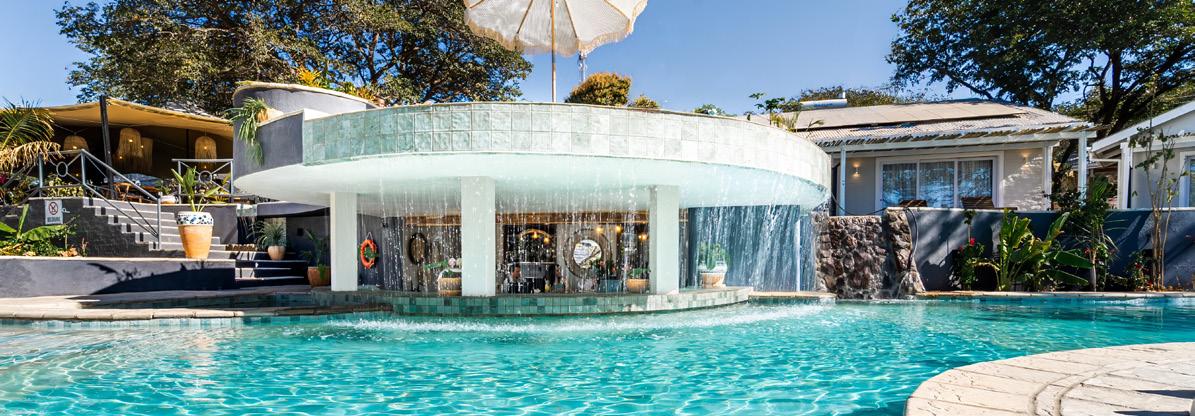
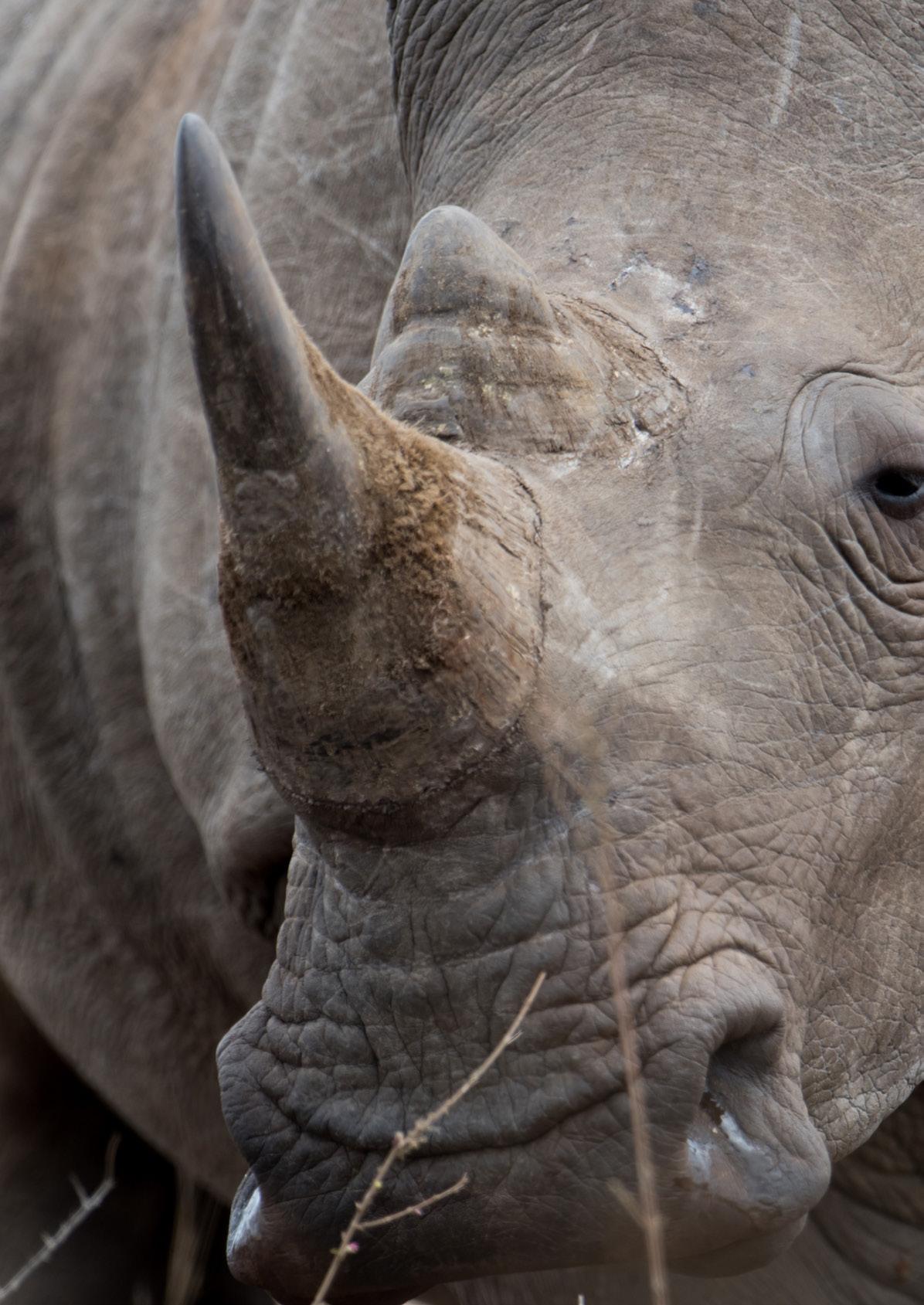
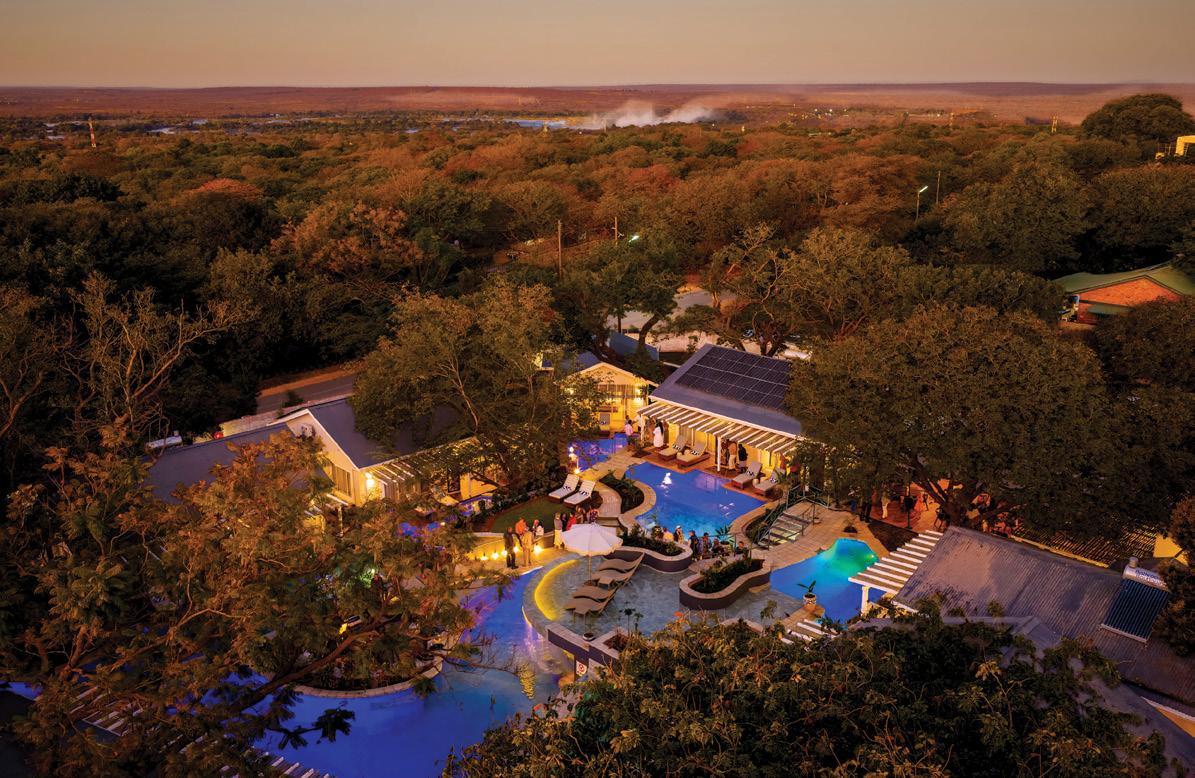



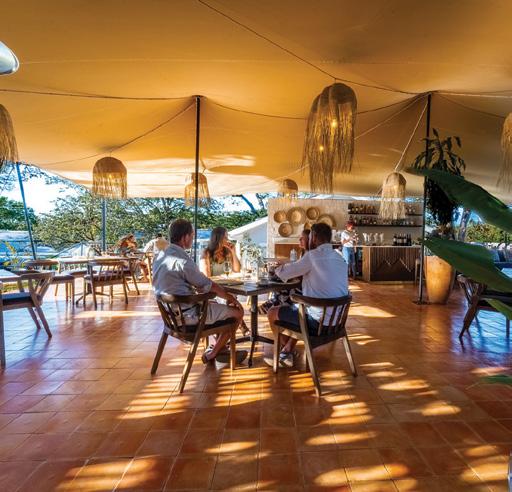


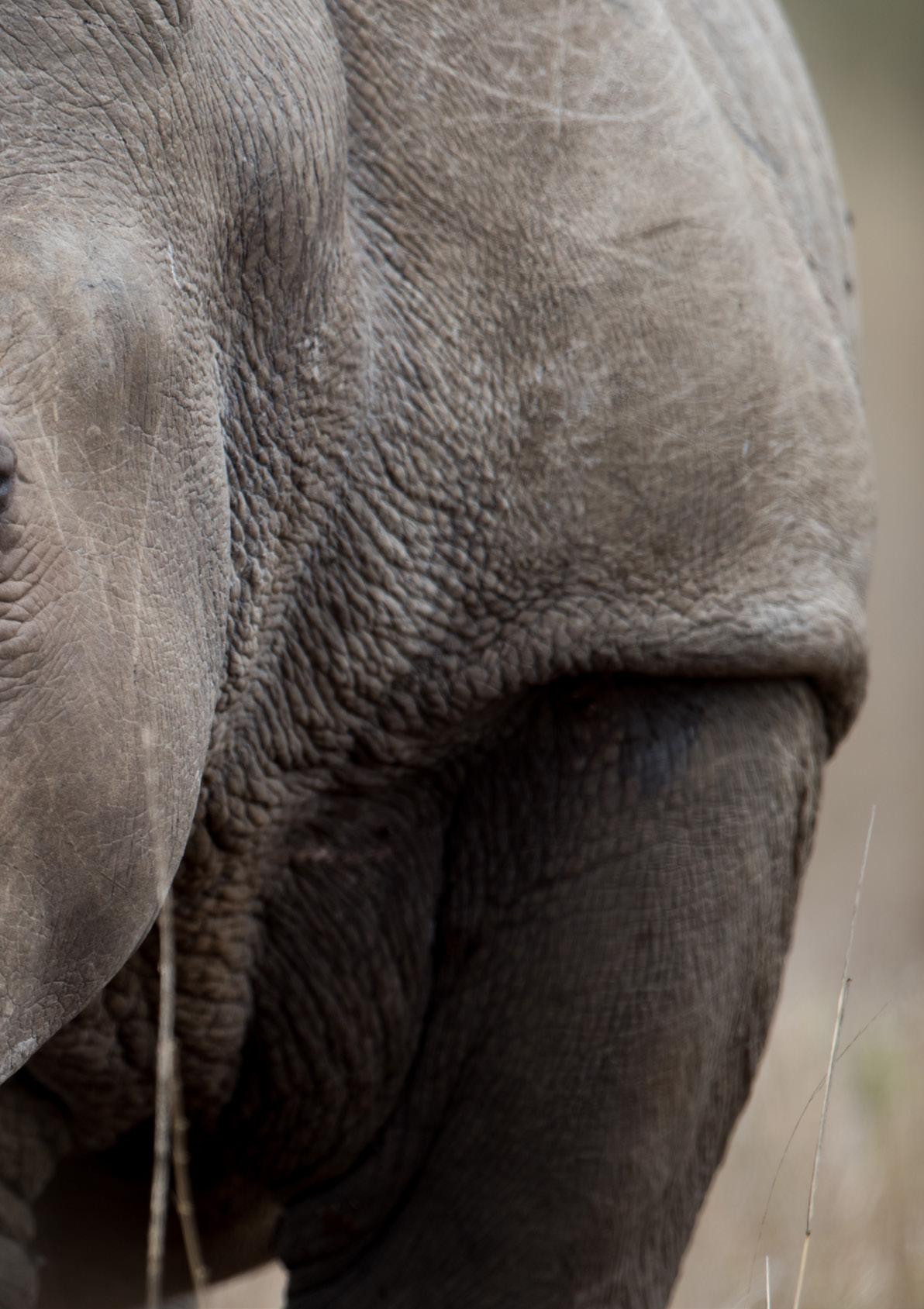
The Shongwe Lookout opened in 2019, spearheaded by Jamie Henson and his wife, together with a group of shareholders and investors, and was soon awarded 5-star rating. It has 23 guestrooms, including singles, doubles and family rooms – and, of course, the iconic lookout tower. The delightful laidback, family friendly atmosphere, luxurious accommodation and great food, proved so popular that they decided to extend the business to the next-door property and opened the Shongwe Oasis Boutique Lodge in late 2023 – a bold move coming out of the Covid restrictions.
Oasis has a total of 19 rooms set in lush gardens with a circular infinity pool and a huge tented bar and restaurant area. Shongwe Oasis was also awarded 5 stars and the Hensons soon found they were overbooked and having to turn away prospective guests. Obviously they were onto a winning formula – beautiful rooms, a welcoming outdoor entertainment and relaxation space, good, friendly service and top rated meals and refreshments.
When the next door property became available they saw the opportunity to expand yet again. Henson worked with Amanda West (and her team) from InArc Design again. They are the architectural and interior designers he’d worked with on Shongwe Lookout and Shongwe Oasis to design the new lodge called Samanzi.


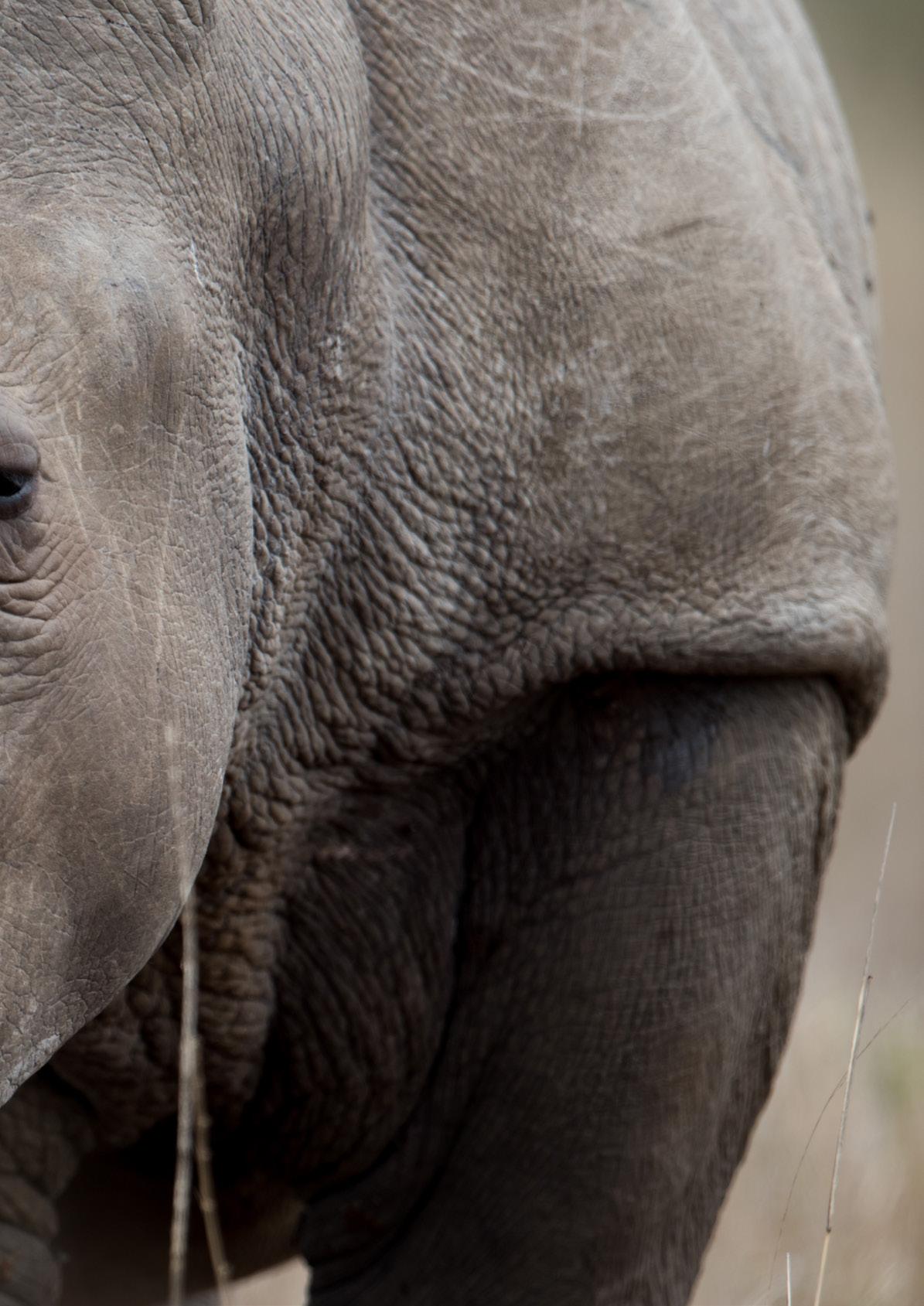
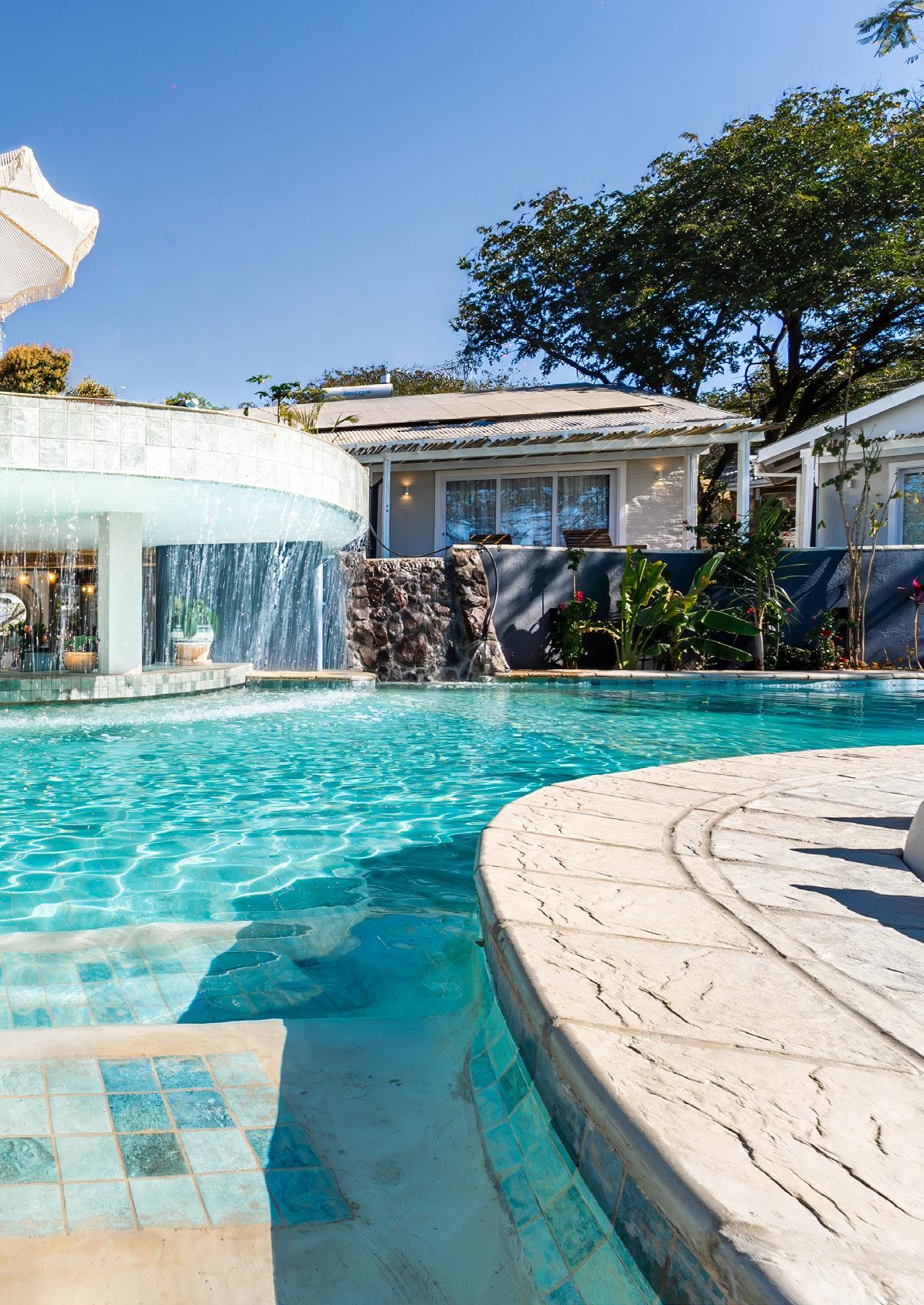
Jamie Henson and Amanda West collaborated on the initial architectural designs starting in January of 2024. The designs and consultations with engineers took a while until construction began in October 2024. Because the site slopes quite steeply the engineering and earthworks were integral to the final product. The new lodge received their first guests in July 2025 – so a very brief and carefully managed project from breaking ground to the completed interior design.
At Samanzi there are 15 self-contained cabanas with either a king sized or two three quarter size beds, depending on guest requirements. Because of the steep slopes the exterior landscape design includes a total of 6 pools and 9 waterfalls as well as luxuriant, tropical gardens that encompass the structures and the pools in an elegant, tranquil and coherent vision.
All the cabanas have front decks that appear to float over the pools offering direct access to the water and include private sun loungers for relaxation and that chilled vibe.
Some of the cabanas have partition screens on the verandahs for privacy, or the screens can be opened to create a shared deck space for families or groups travelling together.
Three of the cabanas are fully detached adding an extra level of privacy and seclusion for a truly special and unique experience of calmness and seclusion. In addition, Henson has designed the gardens to provide natural screening so each cabana feels like its own discrete retreat.
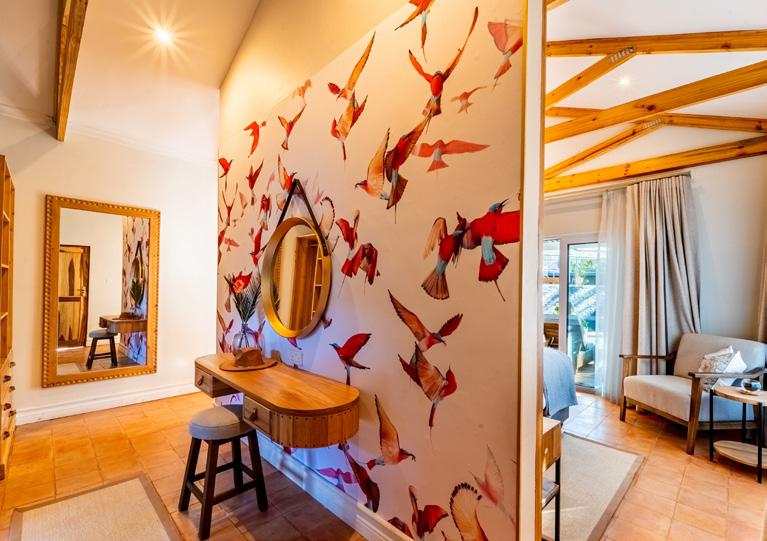
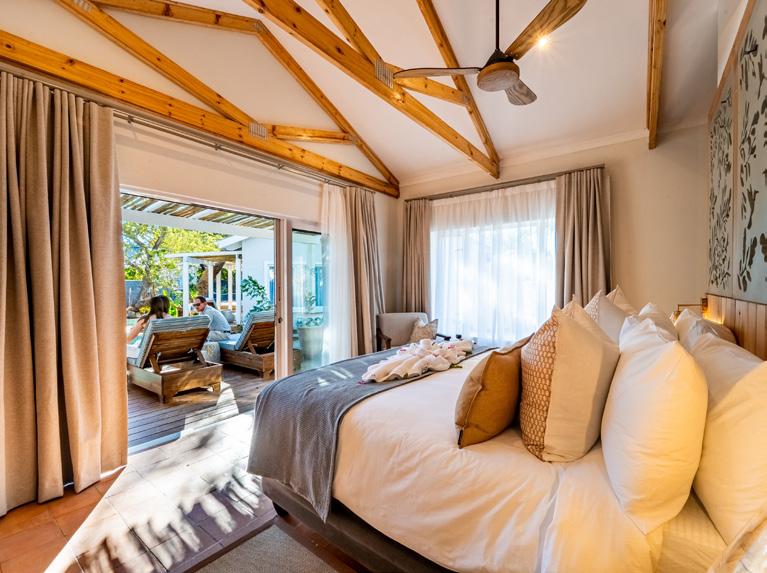


At the main reception is a huge tented area which incorporates the check-in desk, two very welcoming lounge areas, the dining room and a bar. The high tented roof ensures the area is always cool and shady – it’s perfect to enjoy breakfast or a drink after a day of adventure. It also adds a touch of ‘Out of Africa’ glamour.
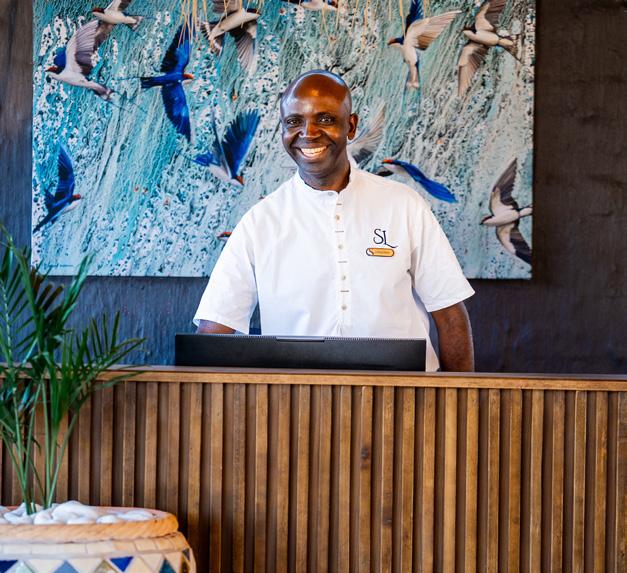
The rooms are carefully planned to follow the design ideas refined from Shongwe Lookout and Shongwe Oasis – using a similar palette of materials, yet still distinct and with their own flavour. Terracotta tiled floors add warmth and an earthy texture and enhance the indoor/outdoor feel. Bespoke furniture (from the African Touch and The Wood Factory), hand painted tiles and locally sourced artefacts, like baskets, complete the atmosphere.

The outstanding feature of the communal recreation space is the pool bar built under the slab of an overhead pool so there’s a constant, gentle waterfall to ensure guests feel totally chilled out. Of course, it references the main local attraction –the magnificent Falls themselves.
The bar can also be accessed from the pool by swimming up to a central island – a truly unique experience. There’s a firepit near the water for evening sundowners under the open skies or sitting around with friends to discuss the day’s experiences.

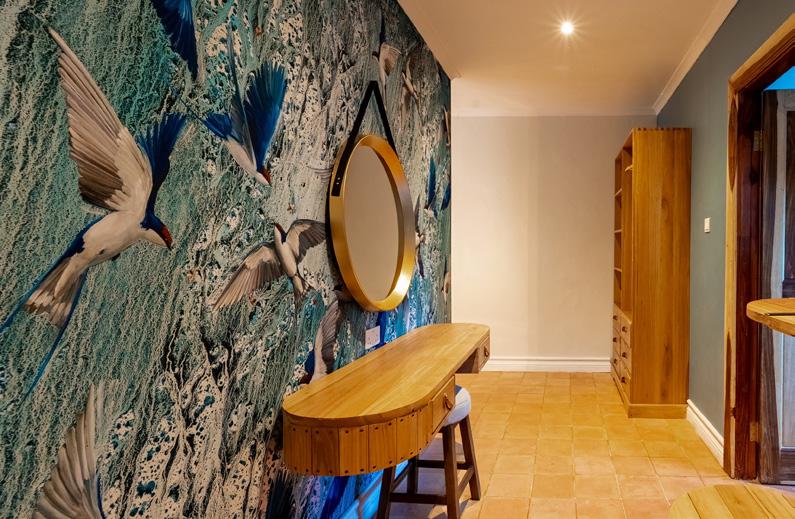
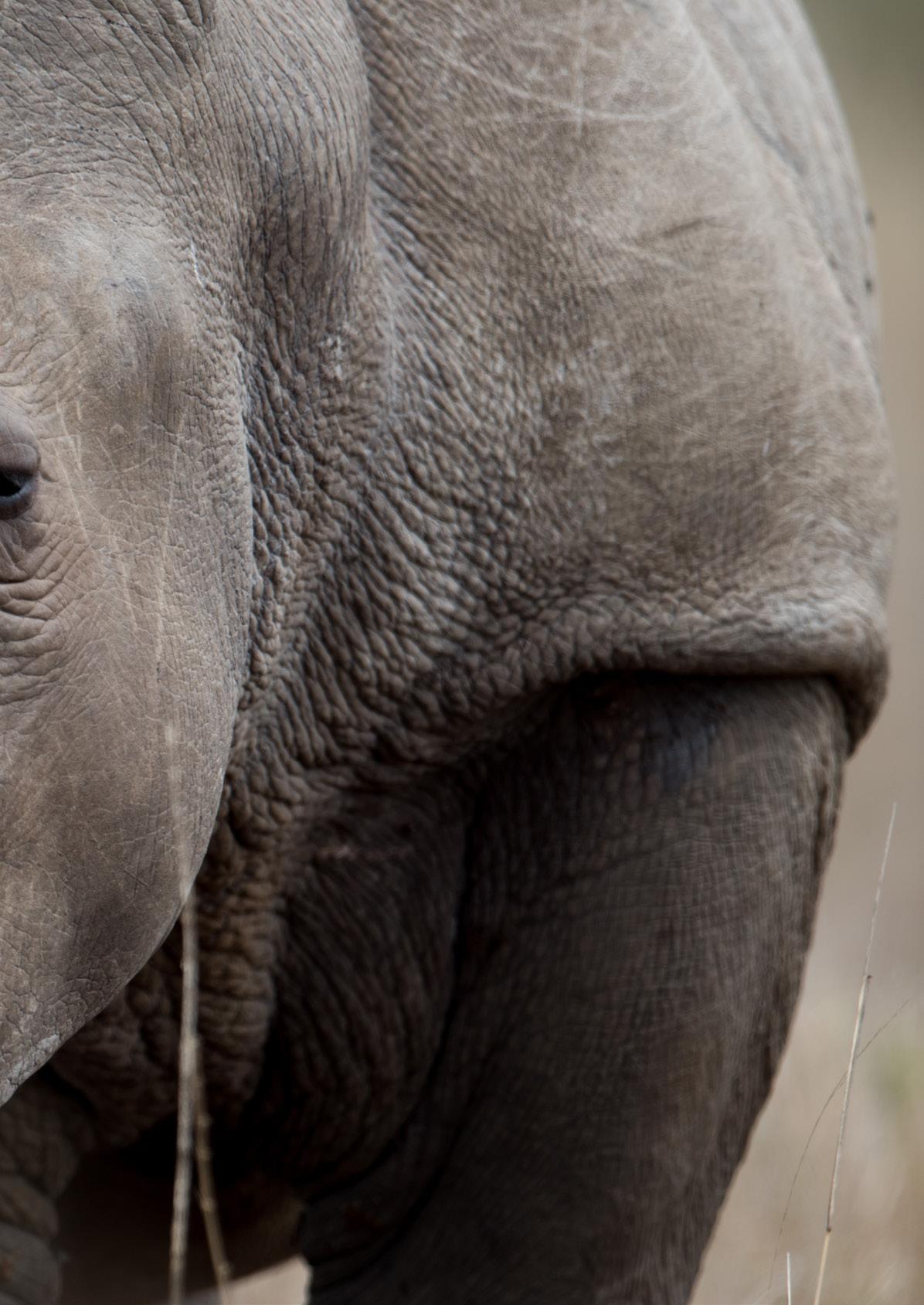

Full length blackout curtains make it a dream to take a daytime nap. All the rooms are en suite with a freestanding bath tub, a shower and double vanities, as well as an outdoor shower on the back patio.
The outdoor showers have hand painted tiles from Burnt Earth Designs, so each one is unique. Big glass folding doors in the bathrooms can be fully opened up to the private back deck. Other amenities include a tea and coffee station, a mini fridge, a dressing table that doubles as a work desk, an occasional chair and table as well as both an overhead fan and air-conditioning.
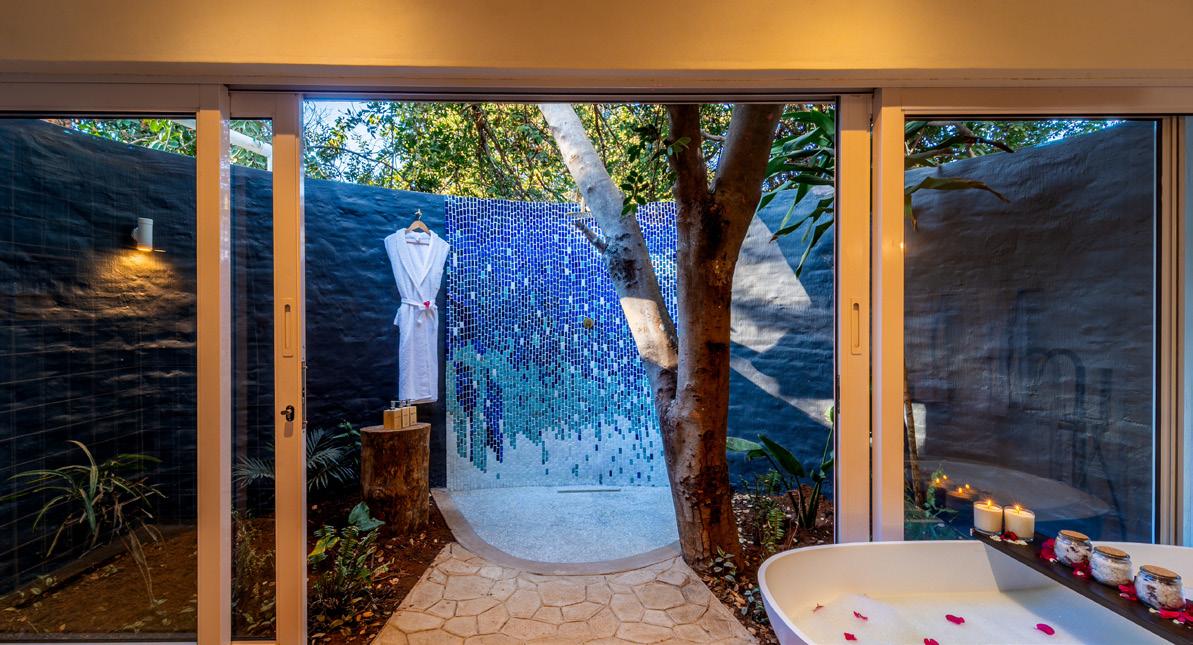
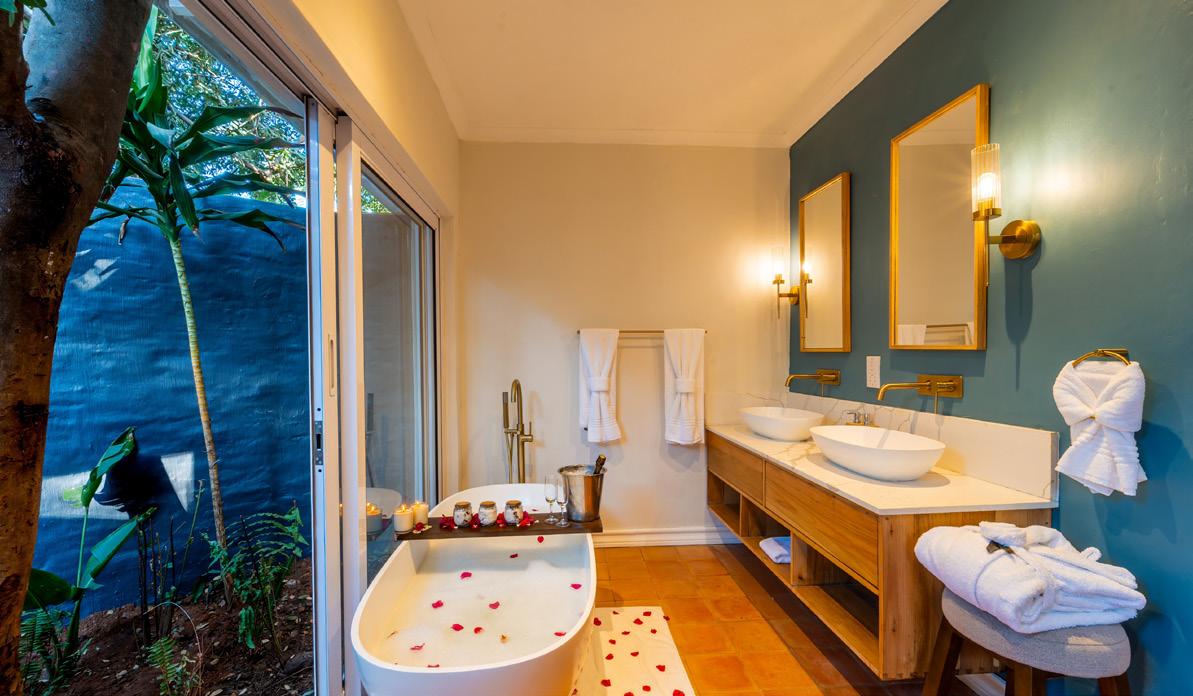

Jamie Henson and Amanda West worked closely together on the interior design so that it feels elegant and sophisticated while still being simple and having a natural and welcoming atmosphere.
A fabulous breakfast served under the tent is a great way to start the day. The restaurant also offers lunch and dinner prepared by the wonderful chef from the Mount Nelson in Cape Town. He also offers a ‘chef’s table’ and food and wine pairing.
Samanzi has an impressively well stocked underground wine cellar. Wine can be enjoyed with meals, at the bar or the fire pit, or guests can take a bottle to sip in their rooms.

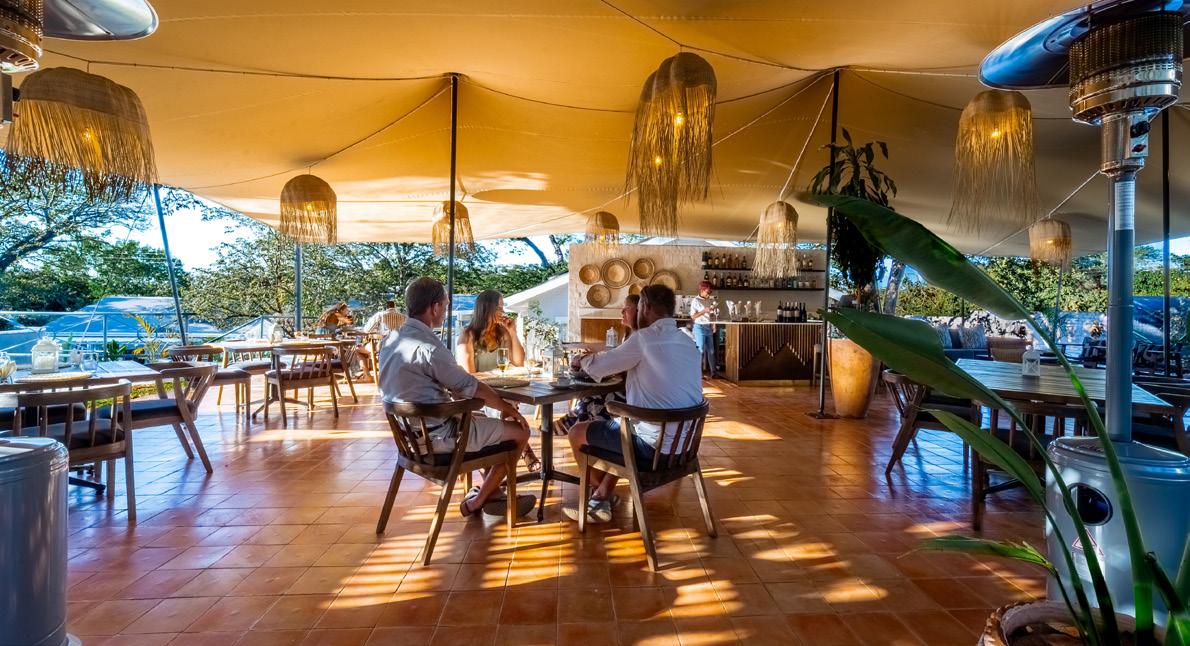
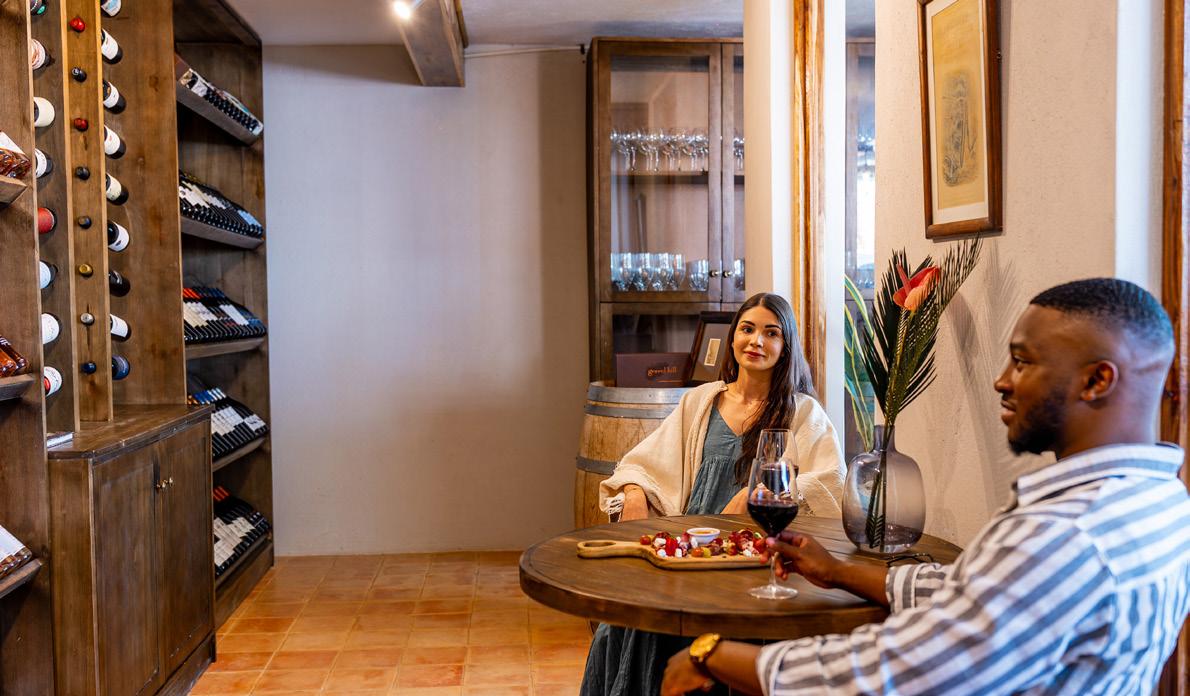

Both the Shongwe Lookout and Shongwe Oasis restaurants are available just next door and there are several other restaurants close by or friendly taxis to take you further afield.
Samanzi does not encourage pets or children under 16 so it’s quiet and tranquil. It’s ok for elderly people to negotiate but not completely wheelchair accessible. But if you want a relaxed base, with excellent food and service, Samanzi is definitely the place to be!
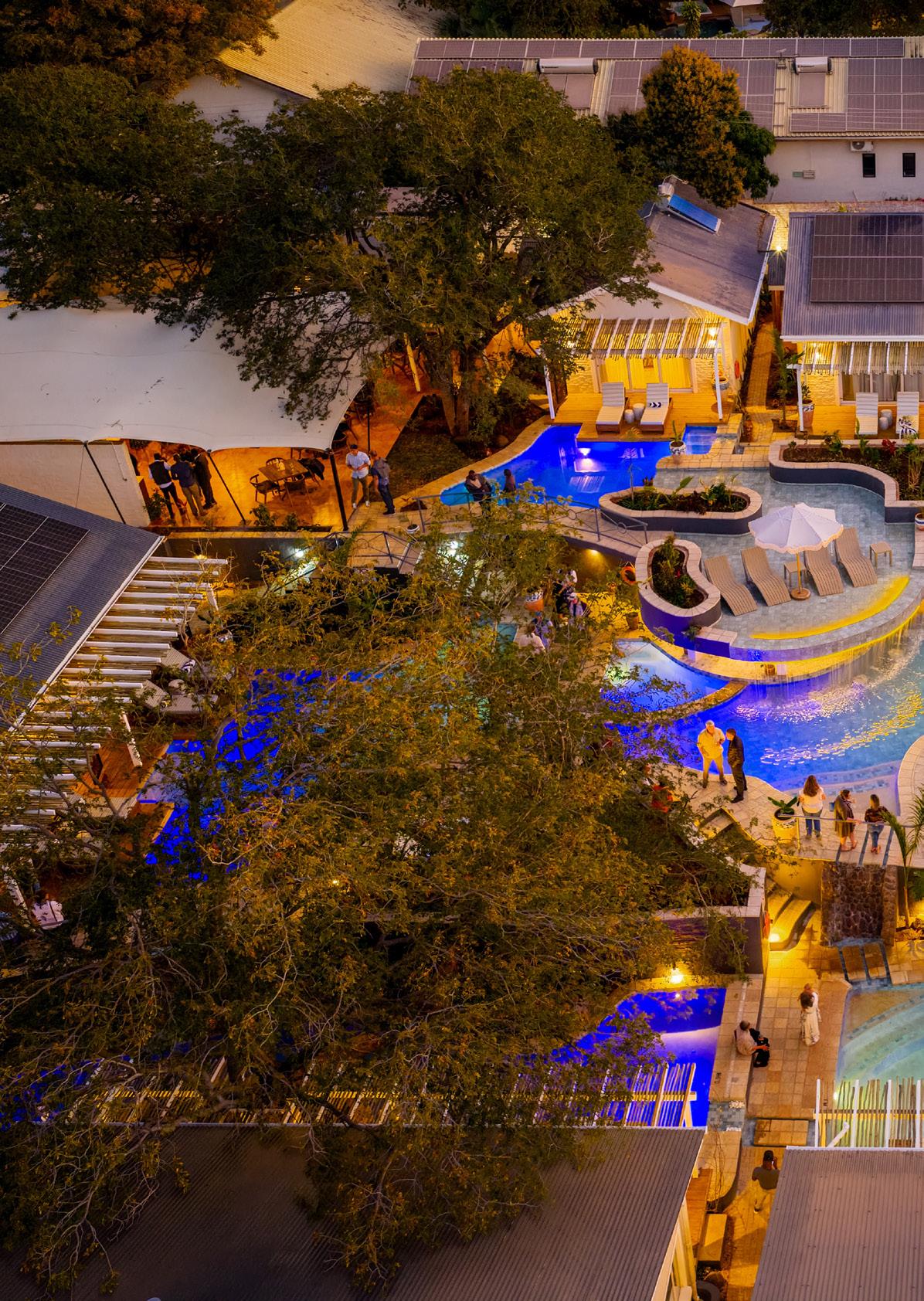
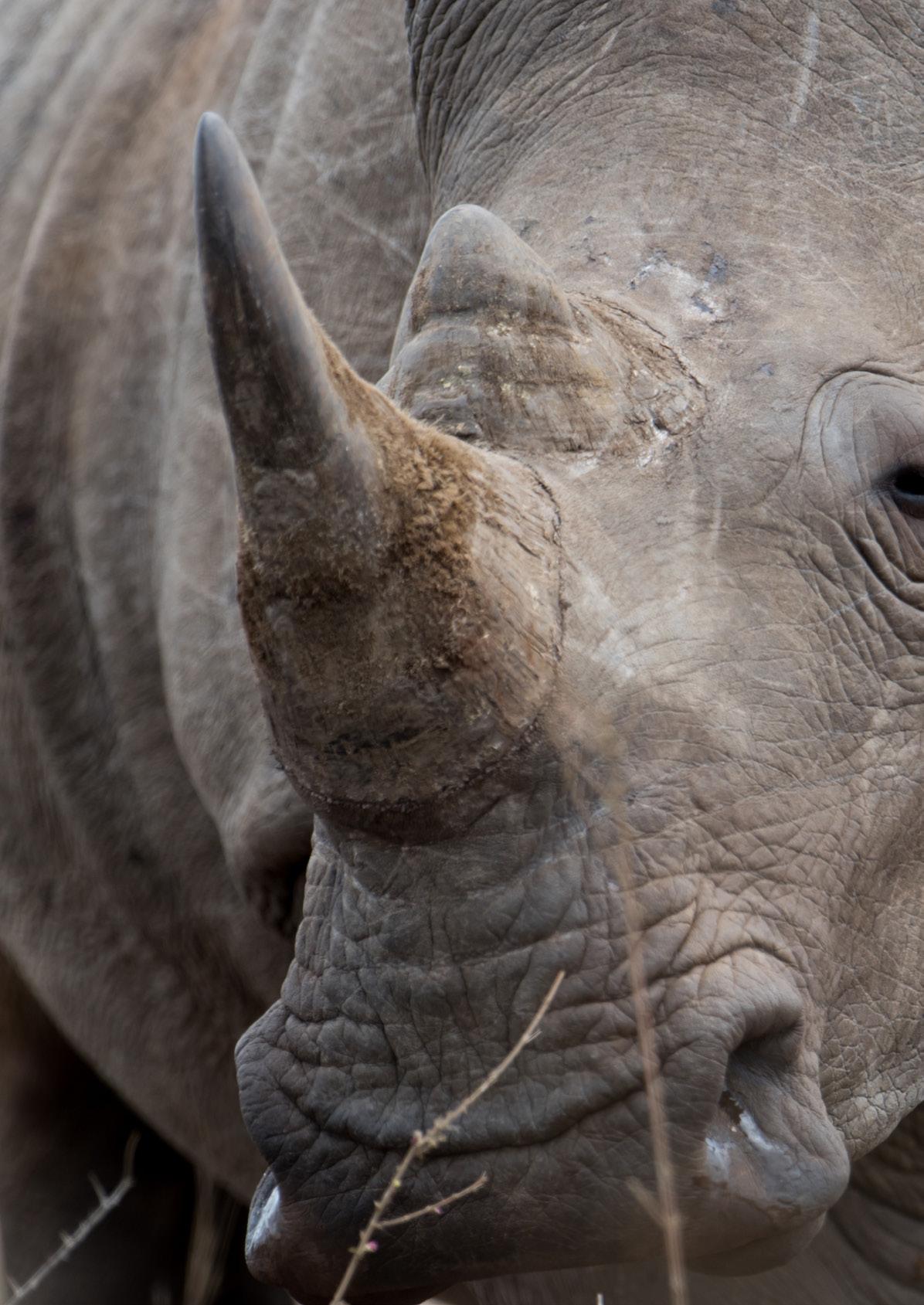

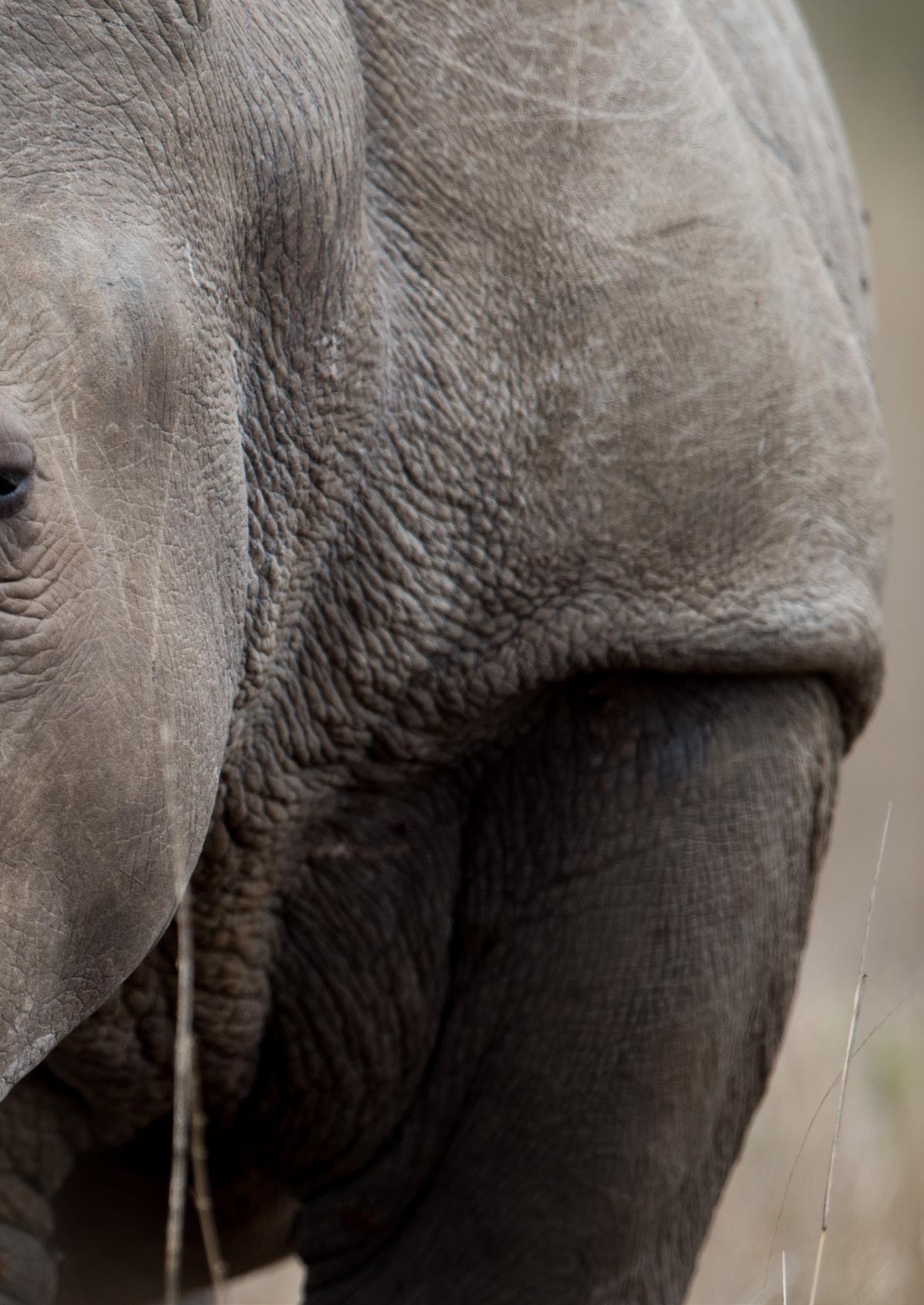


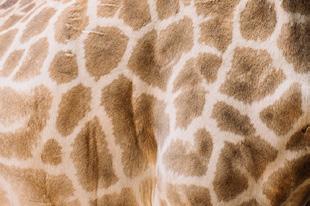

The theme is...
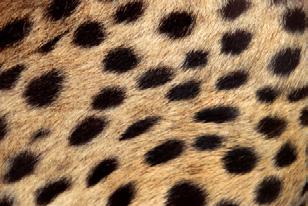
Improving safaris in Zimbabwe
29 NOVEMBER 2025
8am - 6pm
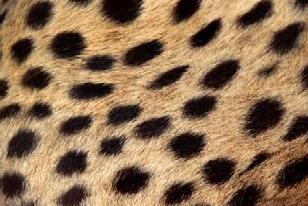






Forest Hills Resort is a luxury facility inthe Vumba Mountains next to Vumba Botanical Gardens an internationally celebrated biodiversity hotspot.

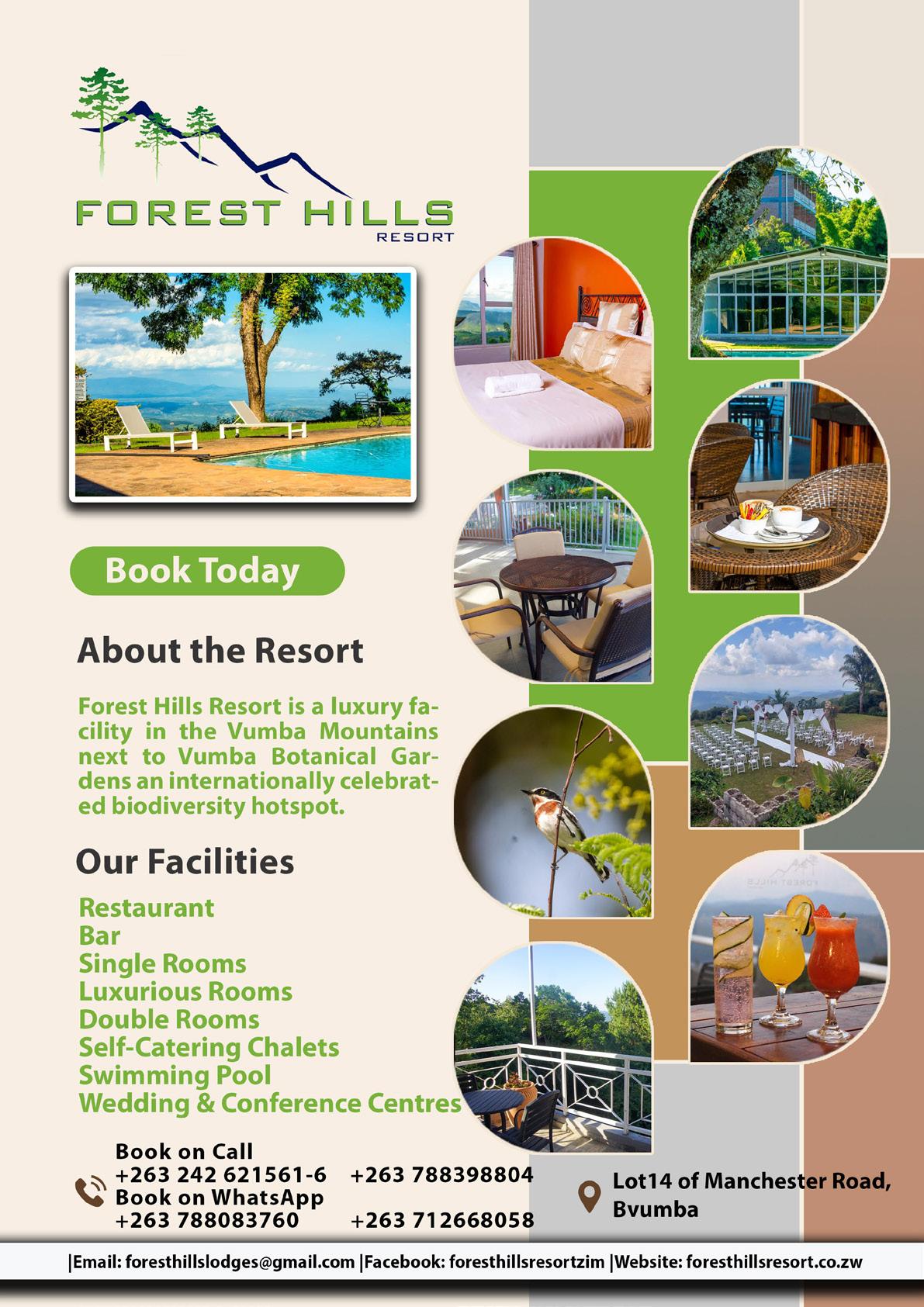




The Association of Zimbabwe Travel Agents (AZTA) successfully hosted its much-anticipated annual awards gala on September 6, 2025, at the opulent Hyatt Regency Hotel in Harare. Under the glittering lights of an ‘80s Disco Fever’ theme, the event transformed into a vibrant and high-energy celebration of the best and brightest across Zimbabwe’s travel and tourism sector. Attended by industry leaders, government representatives, and media, the evening was a powerful demonstration of the sector’s resilience and dynamic growth. It not only celebrated dedication and professional excellence but also provided a spectacular platform for networking, strategic discussions, and fun, complete with one of the country’s best raffle draws.
The AZTA Awards Committee Team expressed their profound gratitude, stating, “A heartfelt THANK YOU to everyone who attended and contributed to the success of the AZTA Awards 2025. Your participation fuels our mission. Congratulations to all of our winners for your dedication and excellence—you continue to inspire us all. May you keep setting the standard for a thriving and professional travel industry in Zimbabwe.”
The fiercely contested airline categories revealed a strong commitment to quality service across the board. Emirates flew away with the top prize for International Airlines. The Dubai-based carrier was recognised for its consistent global connectivity, premium service offerings, and vital role in linking Harare to hundreds of international destinations. Its continued investment in the route underscores the global importance of the Zimbabwean market. They were followed by Qatar Airways and Ethiopian Airways.
In the Regional Airlines division, Airlink secured the win. The carrier has become essential for seamlessly connecting Zimbabwe’s regional hubs with vital gateways across Southern Africa, earning high praise for reliability and frequency. South African Airways and Fastjet were the runners-up. Locally, Fastjet claimed the title of Best Domestic Airline, ahead of Air Zimbabwe and Executive Air. Fastjet was lauded for its affordability and expansive route network, which has fundamentally transformed the accessibility of domestic travel within the country.
The hospitality sector showcased exceptional quality, beginning with the host venue. The Hyatt Regency Hotel - The Meikles, a Harare landmark that has recently undergone a strategic rebranding and renovation to blend its rich, century-old history with modern luxury, won the prestigious City Hotel category, demonstrating its enduring appeal. Cresta Lodge and The Bronte Garden Hotel took the subsequent spots.

In the resort and safari categories, Victoria Falls Safari Lodge triumphed as the Resort Hotel of the Year. The iconic property, famed for its breathtaking views over a natural waterhole and its renowned Vulture Culture Experience, was celebrated for providing an authentic and uniquely Zimbabwean luxury experience. Mbano Manor was celebrated as the top Boutique Hotel, recognised for its exclusive, high-end, and quiet elegance that offers unparalleled personalised service in Victoria Falls. Kingsmead led the Bed & Breakfast/Guesthouse category, a beloved Harare establishment praised for its tranquil garden setting and intimate, homely service quality.
Zimbabwe’s famed safari industry was well-represented, highlighting the sector’s high standards. The Hide Safari Camp, a long-standing institution in Hwange National Park, took home the award for Safari Camp Tented. The camp was honoured for its outstanding guiding, dedication to conservation, and the innovative guest experience provided by its famous underground viewing hide. Shongwe Lookout was the winner for Safari Camp Non-Tented. This Victoria Falls property was noted for its unique architectural design, particularly its central ‘lookout’ tower, and its innovative approach to sustainable tourism development.
Specialist operators were also recognised for their crucial roles. African Bush Camps was named the leading Mobile Safari Operator, a win that underscores their commitment to high-quality, authentic, and remote safari experiences, coupled with their strong community and conservation track record. Impala Car Rental drove away with the Car Hire award, maintaining its top position through an extensive, well-maintained fleet and a reputation for reliable, nationwide customer support.








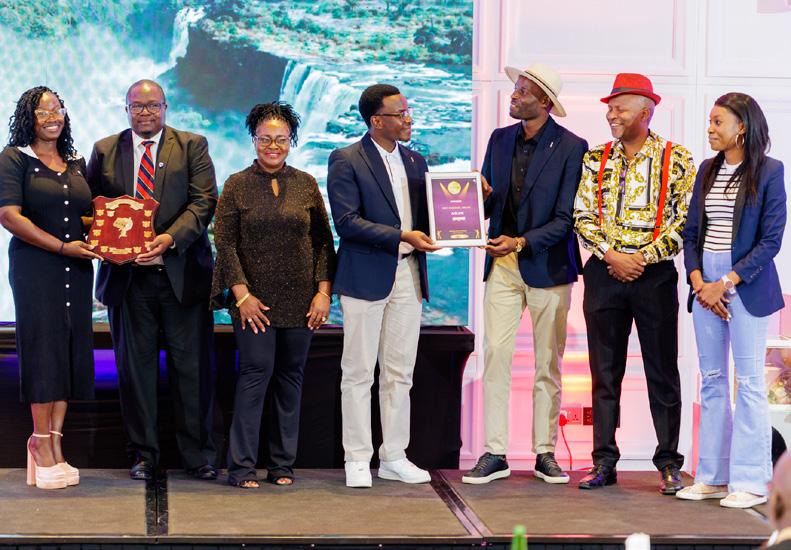

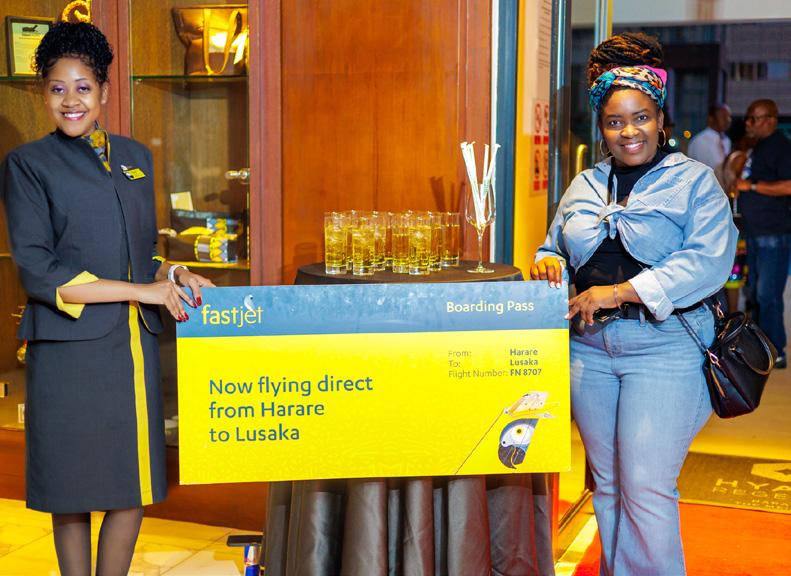

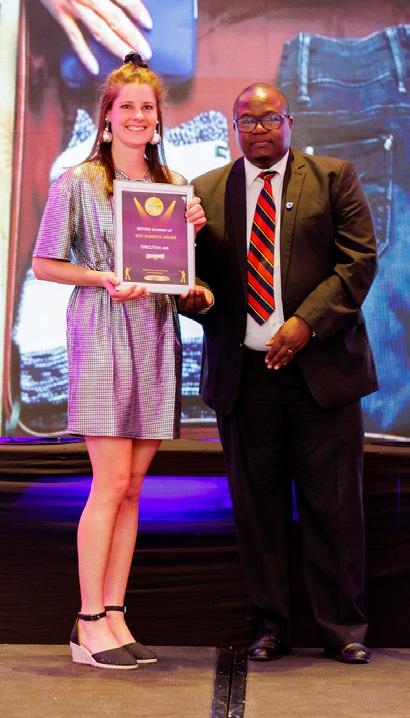
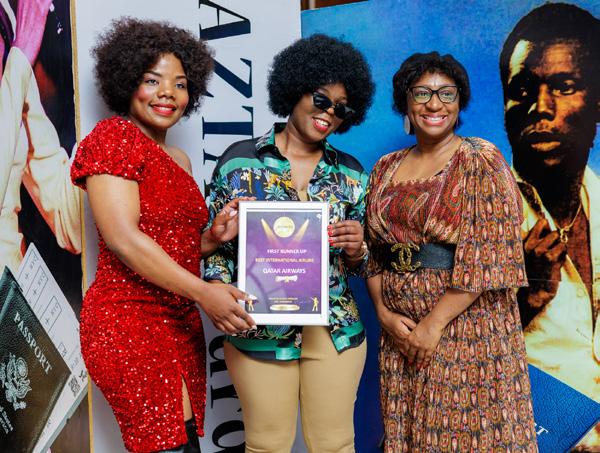
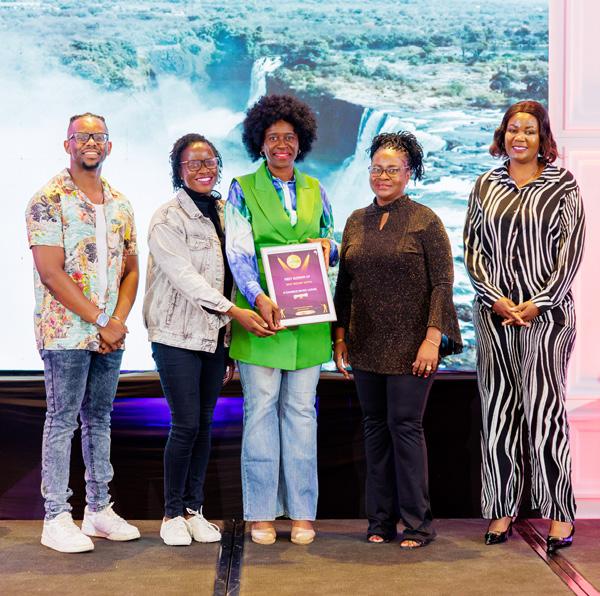
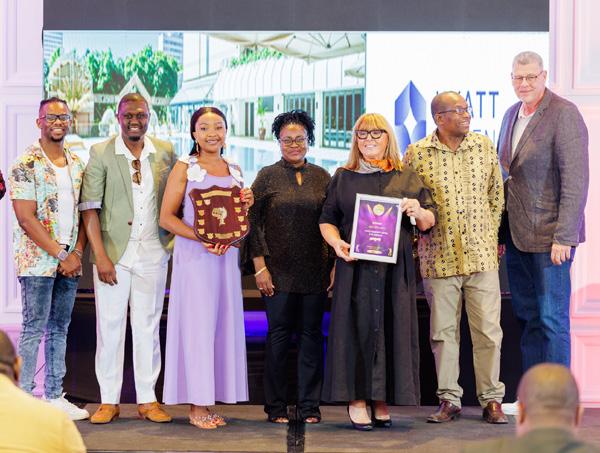

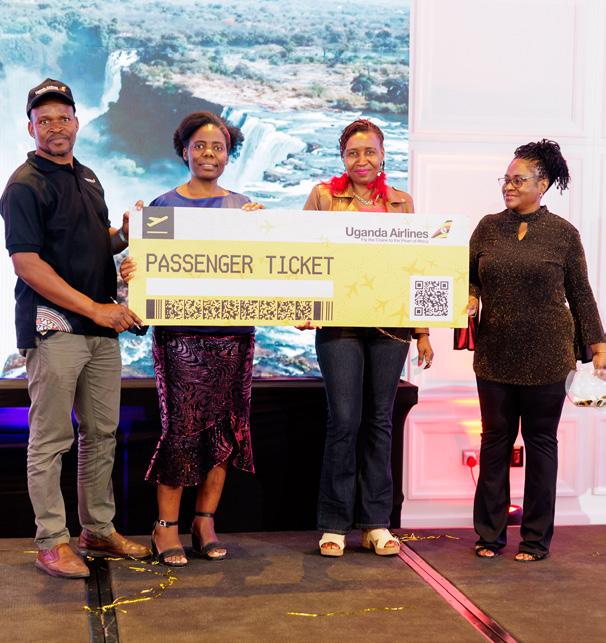

For self-catering accommodation, Lokuthula Lodge won the top spot, popular with both local and regional families for its spaciousness and prime location near the major Victoria Falls attractions. The Tour Operator of the Year was Premier Holidays and Destinations, celebrated for its deep local knowledge and ability to craft intricate, bespoke itineraries for a discerning international and domestic clientele. Finally, Wild Horizons earned the award for Ground Handler, a cornerstone of Victoria Falls tourism, recognised for its seamless logistical management and wide range of memorable activities.
Crucially, the awards highlighted the individuals and companies providing essential support and services. Travelport won the Service Provider category, ahead of Amadeus and National IT. As a global distribution system (GDS) provider, Travelport was lauded for its consistent technological innovation that empowers travel agents with advanced booking solutions. Old Mutual Zimbabwe was acknowledged as the best in Travel Insurance, a nod to the trust the public places in its comprehensive and locally-attuned risk coverage.
The awards put a strong emphasis on the individuals who make the industry tick. Tonderai Mupfukudzwa of Wings Travel won the coveted Travel Consultant award, a veteran agent celebrated for his meticulous attention to detail and large, fiercely loyal client base. Brandon Tarwireyi of Judena Travel was named
The Consultant on the Rise, a young, dynamic professional who has rapidly leveraged modern technology to build a significant portfolio. Floret Butau of Tour Africa Travel was recognised for her integrity, winning The Consultant Who Follows The Rules, an award honouring her commitment to ethical practice and professional compliance.
In a testament to new investment and innovation, Waterfall’s Lodge won the Best New Establishment award, a significant property noted for its modern facilities and strategic development in a growing tourist region.













Wendy Bourne was celebrated with the Voluntary Service award, acknowledging her tireless, often unheralded, dedication to supporting industry bodies and enhancing the professionalism of the sector.
Tanyaradzwa Garaba received The Shila Patel Award for outstanding contribution, a recognition of her long-term mentorship and positive, lasting impact on her colleagues and the industry as a whole.
Finally, sustainability was recognised, with The ELE Collection winning The Environmental Award. This group of properties was celebrated for its verifiable commitment to critical initiatives, including renewable energy adoption and effective community-based conservation programs, showcasing the industry’s growing commitment to responsible tourism. The successful event underscored the unity and dedication of the entire travel community, promising an even brighter future for Zimbabwean tourism.







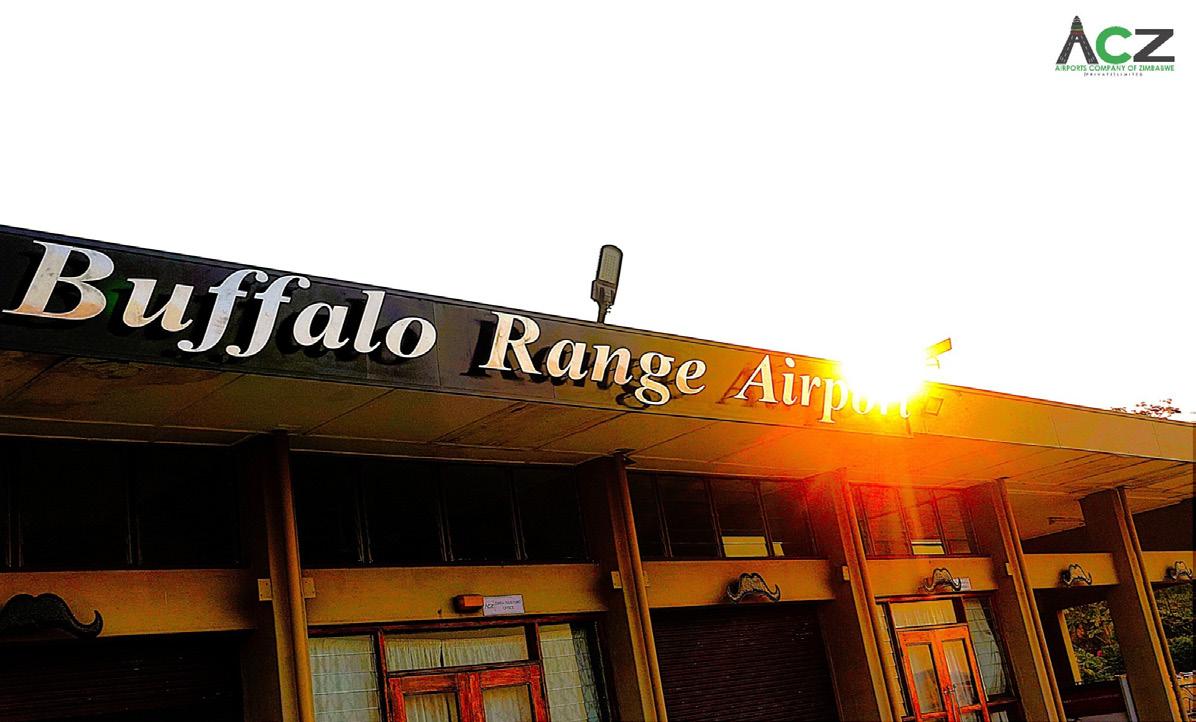
Buffalo Range International Airport in Chiredzi is currently undergoing significant rehabilitation works, with a major focus on upgrading its taxiways to enhance air traffic flow and improve essential safety standards.
This renovation is a cornerstone of a broader government initiative to modernise aviation infrastructure across Zimbabwe and substantially boost tourism into the country’s economically vital South-Eastern Lowveld.
The airport is the primary gateway to the Lowveld, a region celebrated for its natural beauty and key economic drivers. This positioning makes the taxiway upgrade critical.
The continued work is essential for enabling the airport to efficiently handle a growing volume of air traffic, including larger aircraft such as the Boeing 737-700 executive series, which the facility’s 1578-metre-long and 30-metre-wide runway is now equipped to accommodate. The previous refurbishments of the runway and terminal building have already set the stage for this next phase of development.
By improving the taxiways, the flow of aircraft from the runway to the apron will be significantly smoother, increasing operational efficiency and reducing turn-around times for aircraft.
This crucial infrastructural upgrade is expected to be a major catalyst for economic development in Masvingo Province. Buffalo Range is strategically located to service the three main conservancies in the South Eastern Lowveld— namely Save Valley, Malilangwe, and Bubiana.
Most significantly, the airport provides direct access to the Great Limpopo Transfrontier Park , a colossal conservation area that links some of the richest wildlife areas in Zimbabwe (Gonarezhou National Park), Mozambique (Limpopo National Park), and South Africa (Kruger National Park).
Improved accessibility is set to attract a higher influx of international tourists to the iconic Chilojo Cliffs and the luxury safari experience at Singita Pamushana (Malilangwe Trust), directly benefiting the
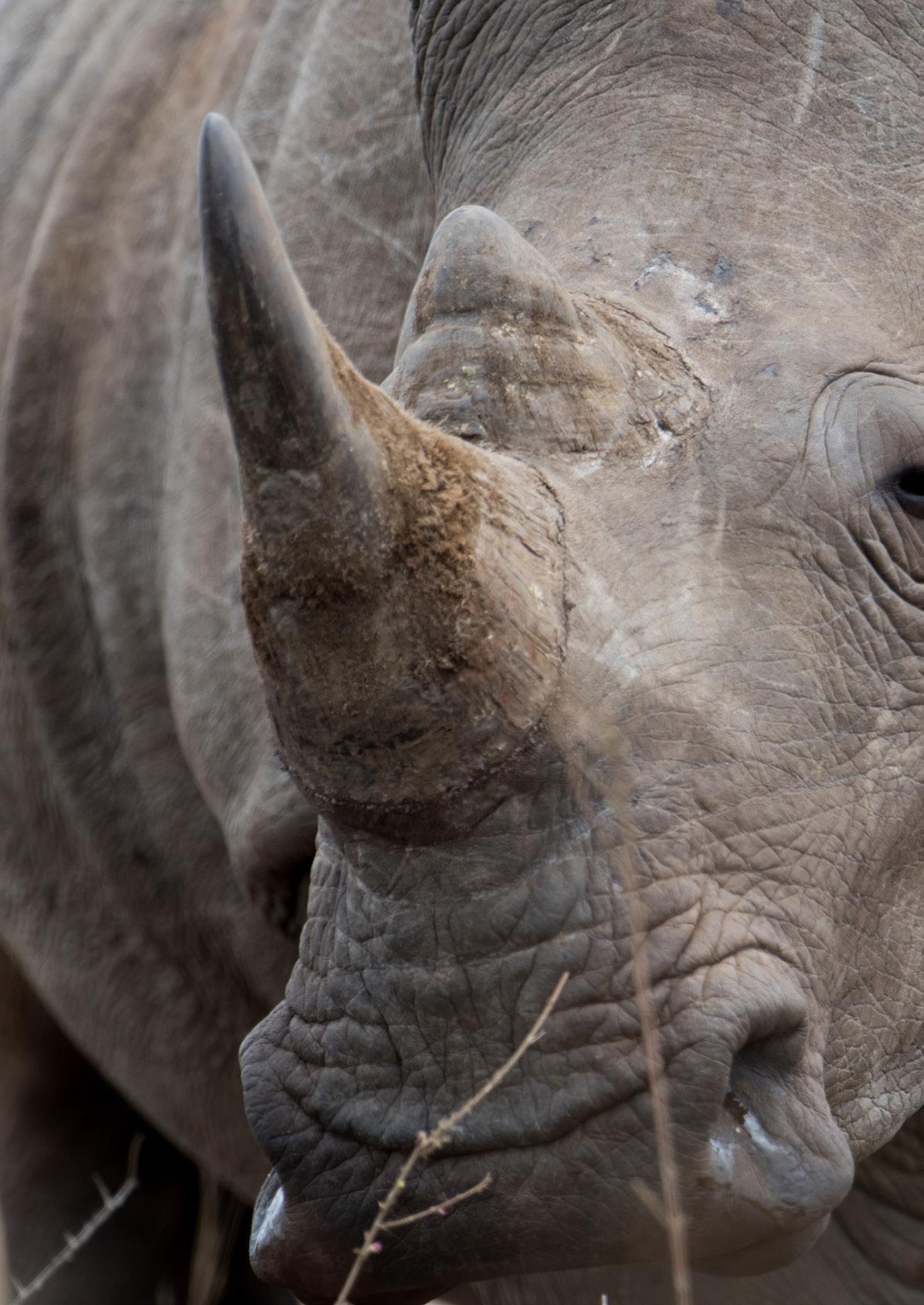
local tourism and wildlife conservancy sectors. Beyond tourism, the airport services crucial industries in the area. It provides access to Green Fuels production at Chisumbanje and the recently commissioned giant Tugwi Mukosi Dam, highlighting its dual role as a hub for both commerce and conservation.
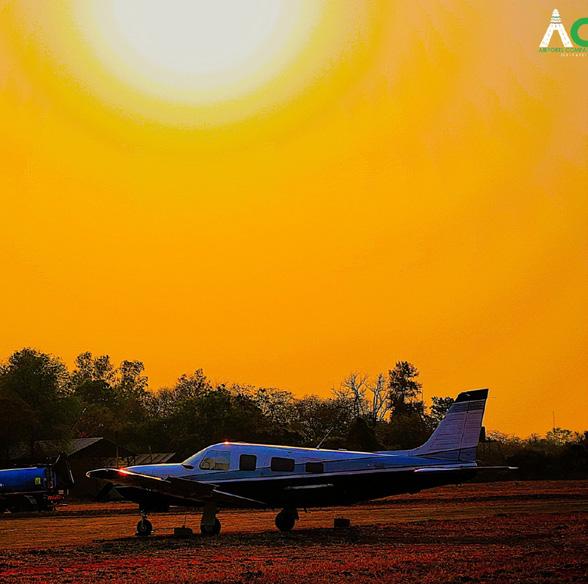

The ability to handle more commercial and private air services—currently including Federal Air's weekly scheduled charter flights from O.R. Tambo International Airport, as well as frequent use by operators like Execujet and Comair Flight Services—is paramount to sustaining regional economic growth.
While the renovation of the taxiways and associated airside infrastructure is underway, all stakeholders are working diligently to minimise disruption to the airport's existing non-scheduled charter and private flights. The government, primarily through the District Development Fund (DDF), has prioritised this upgrade to align with its Vision 2030 targets of achieving an upper-middle-income society. Tourism has been correctly identified as a "low-hanging fruit" for achieving this goal.
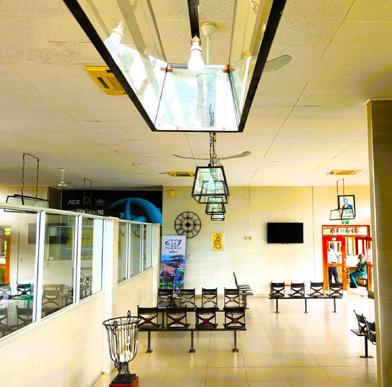

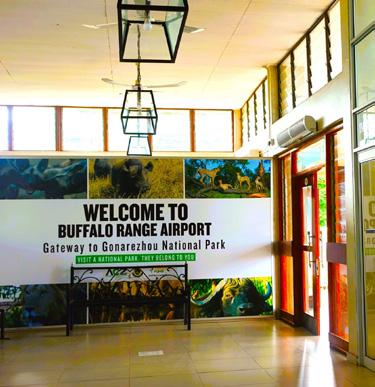
The successful completion of the taxiway and airside renovations will mark a significant step towards unlocking the full tourism potential of the Great Limpopo region, making Buffalo Range International Airport a modern, high-capacity facility capable of supporting sustainable growth. The smooth finalisation of this project will not only elevate safety and efficiency but will also firmly establish Chiredzi as an international access point for one of Africa's most magnificent wildlife destinations.
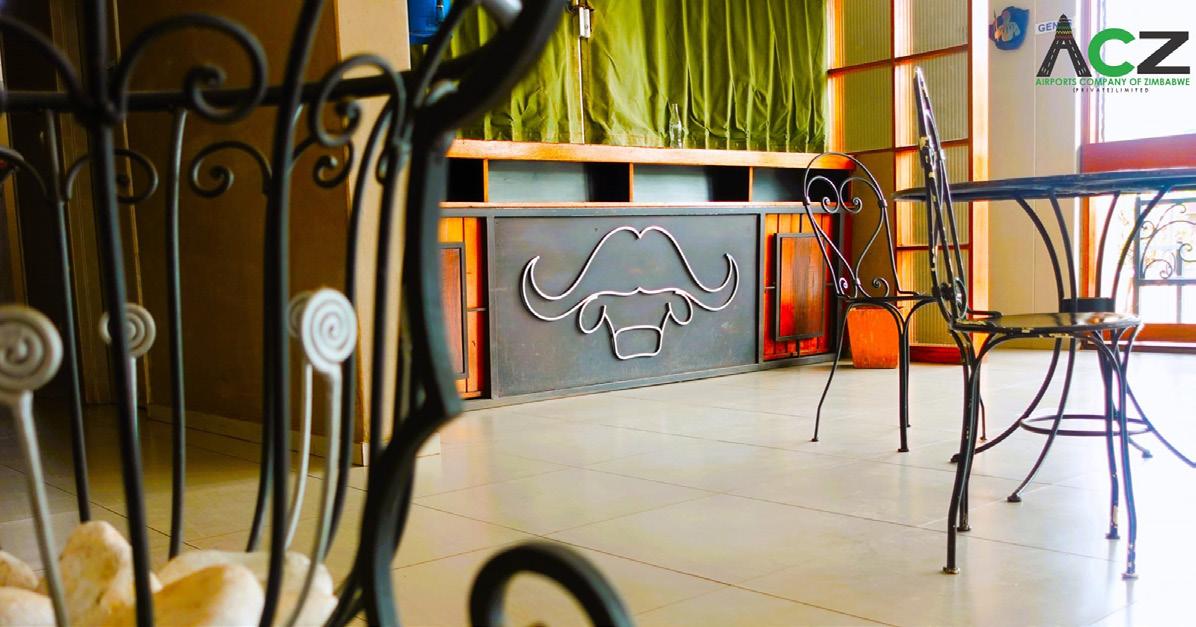
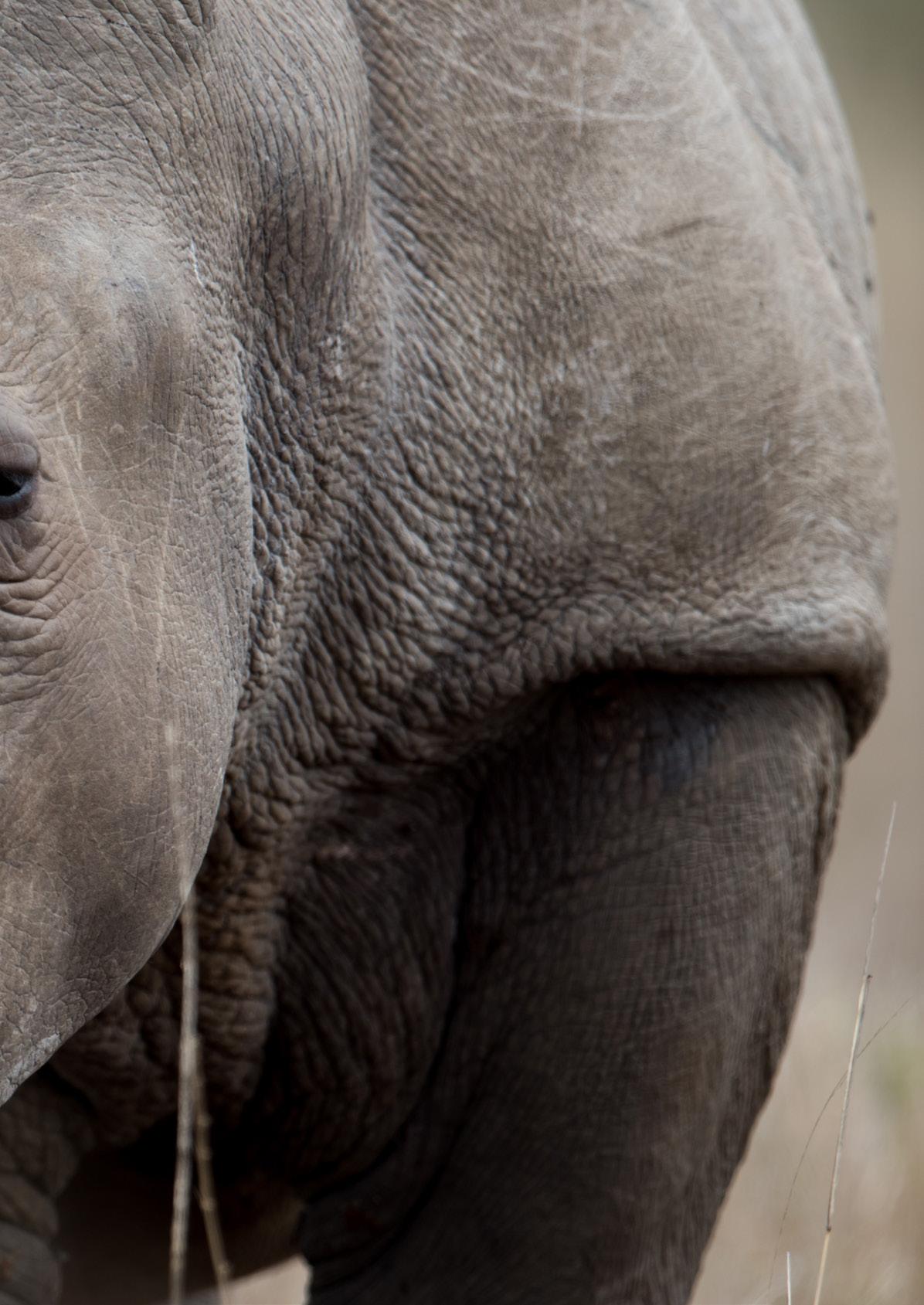
Fothergill Island, a small but significant gem on Lake Kariba, is making a powerful investment in Zimbabwe's future through its innovative Professional Guiding Apprentice Program. As a family-owned lodge, Fothergill felt a strong commitment to providing quality learning experiences and greater opportunities for the next generation of professional field guides. The program, which concluded its inaugural year (2021) with four promising apprentices has since expanded.
These talented individuals, who many returning guests have already had the pleasure of meeting, are part of a visionary initiative designed to develop highly skilled and passionate guides. The following year, the island welcomed even more apprentices. The management expressed their pride in playing a part in the start of these men’s careers, eager to watch them "flourish into successful guides."
The apprenticeship is uniquely shaped by its location. Did you know Lake Kariba has an island known as Fothergill Island? It's a popular tourist destination celebrated for its stunning natural beauty, rich history, and exciting activities.

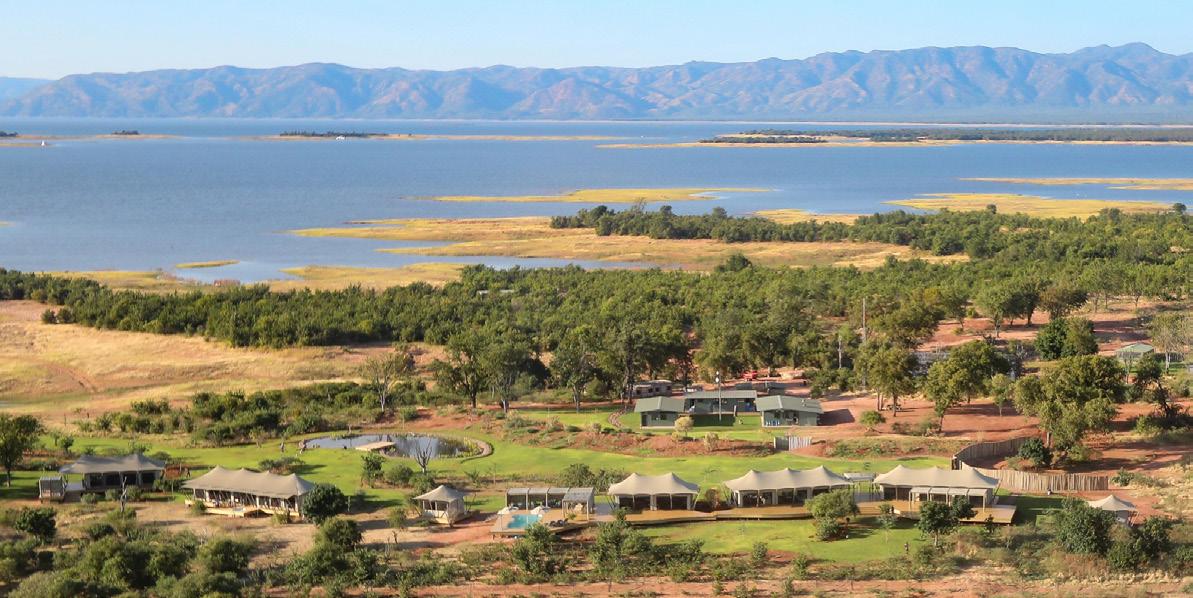
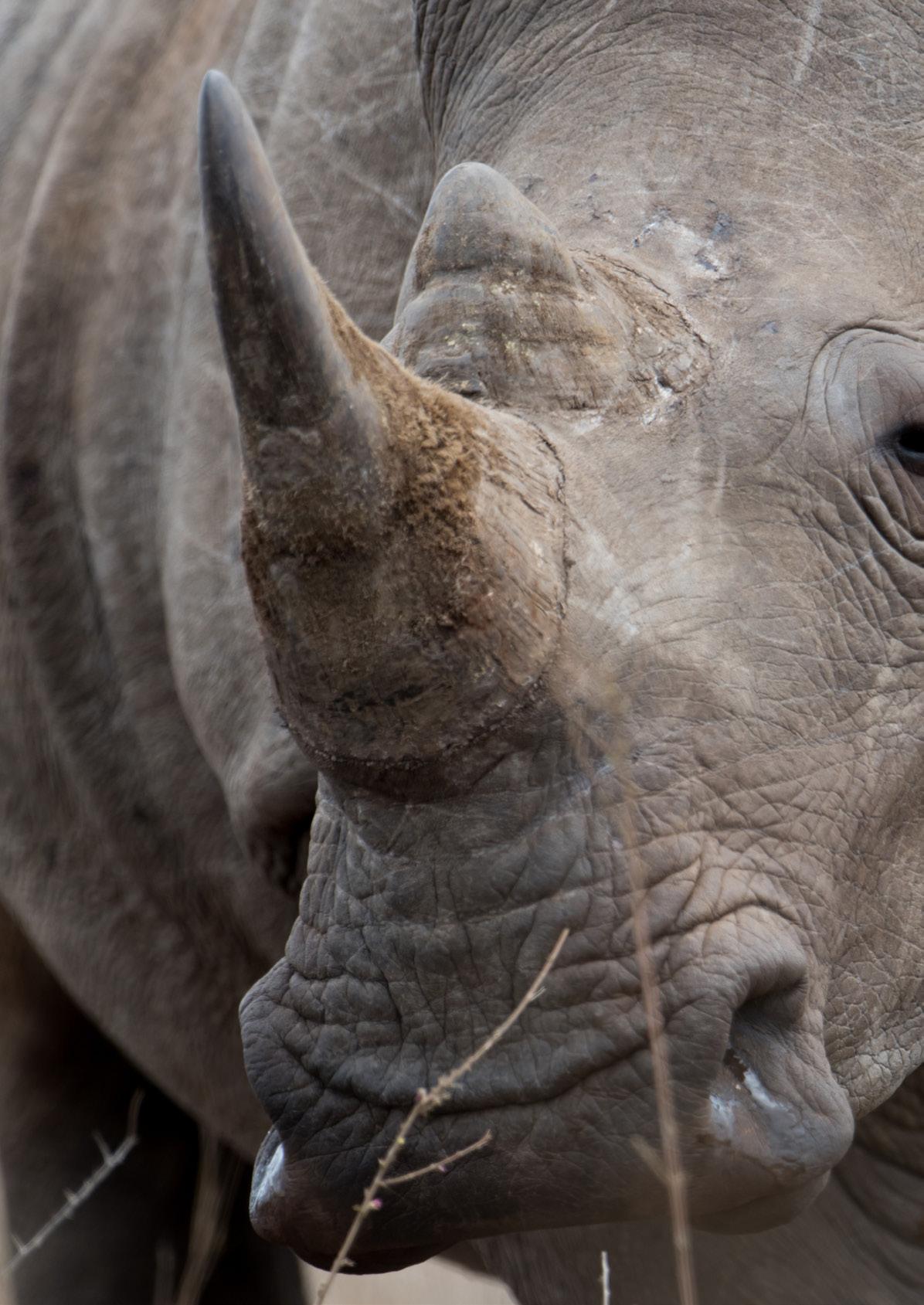
Apprentices learn not only about the island’s diverse wildlife—from hippos and crocodiles to a wide variety of bird species—but also about its fascinating role in the construction of the iconic Kariba Dam.
Beyond traditional game walks and safaris, the apprentices gain hands-on experience in a variety of tourism activities. They learn to navigate the island’s scenic hiking trails and assist with water sports like swimming, fishing, and wakeboarding. This comprehensive training ensures they are well-rounded guides, capable of offering guests a full range of experiences, whether it's an adventurous day or a moment of peaceful relaxation.
By investing in this program, Fothergill Island is not just creating jobs; it's cultivating the expertise that will sustain Zimbabwe's thriving tourism sector. The program’s success is a testament to the lodge’s dedication to quality, community, and the preservation of the country’s natural heritage, ensuring that the magic of places like Lake Kariba is passed on for generations to come.

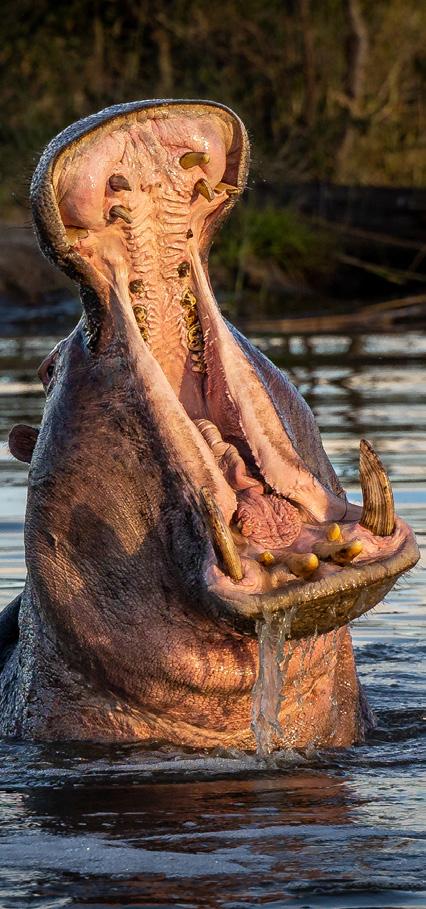
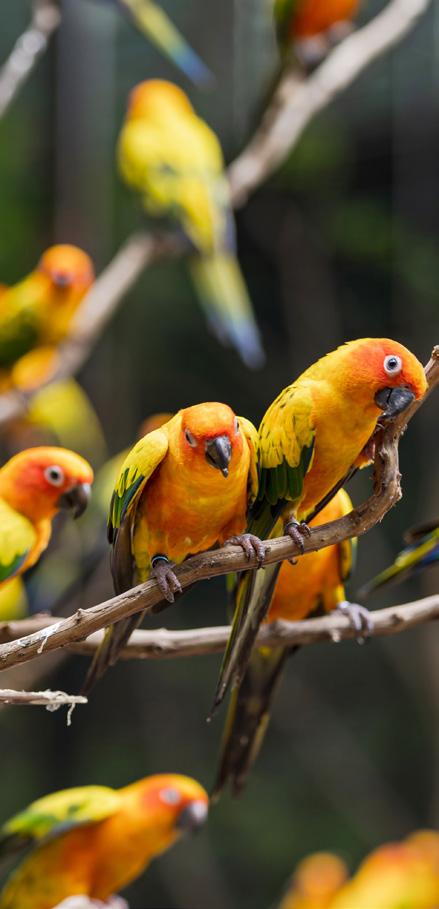
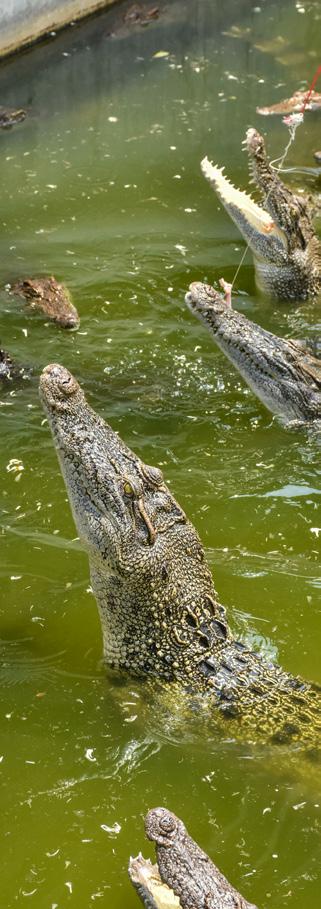

The Hwange Conservation Society (HCS), a dedicated UK-based charity established in 1992, has significantly ramped up its operational support for wildlife protection and vital water provision in Hwange National Park. The recent initiatives focus heavily on combating rampant poaching and ensuring life-sustaining water sources are available during peak demand hours.
Recognizing that poaching remains an urgent, ongoing threat, the HCS has invested critical funds to strengthen the anti-poaching capabilities of the Bhejane Trust. The strategy focuses on getting "more boots on the ground."
In recent years, the Society committed to funding the wages of one existing game water scout for another full year. More critically, HCS has provided funds to recruit and fully equip two new anti-poaching scouts, covering their wages for an initial six months and providing essential gear, including uniforms and tents. The ability to continue supporting the wages of these new scouts beyond the initial six-month period was entirely dependent on sustained fundraising. The HCS always issue appeals to the public: every donation contributes directly to keeping these vital scouts in the field, increasing the likelihood of apprehending poachers and saving wildlife. Readers can always donate directly via the HCS website at www.hwangecons.org.uk.


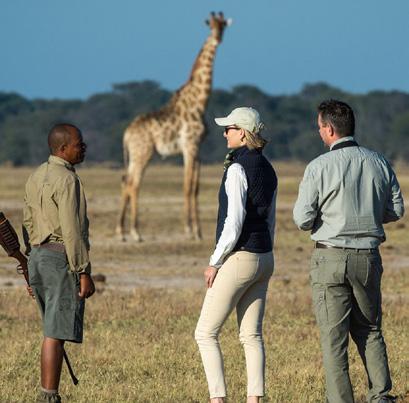
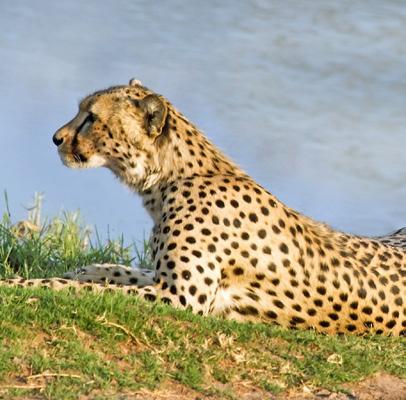
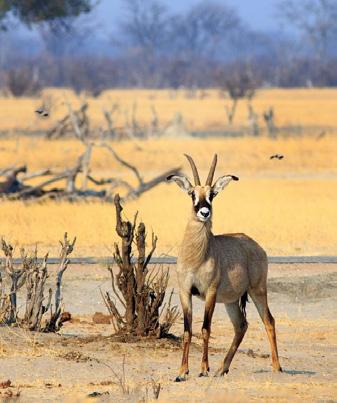
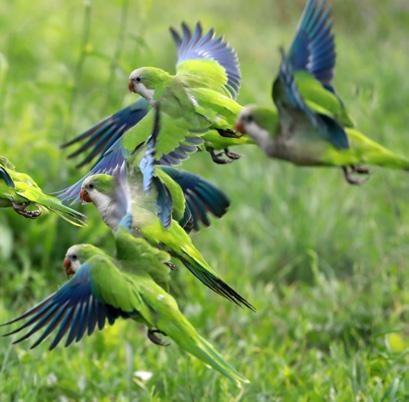
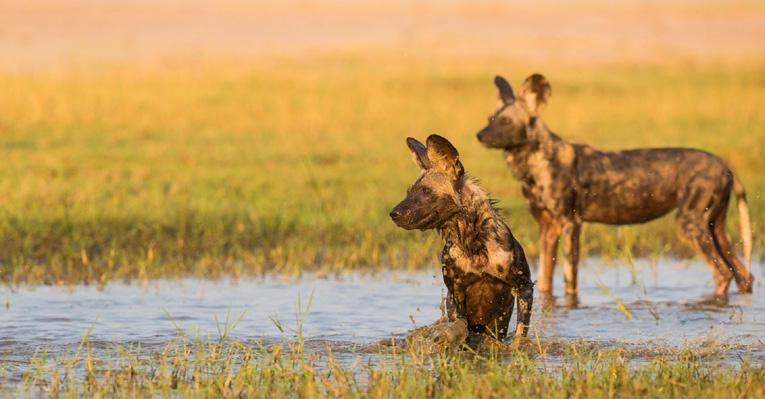
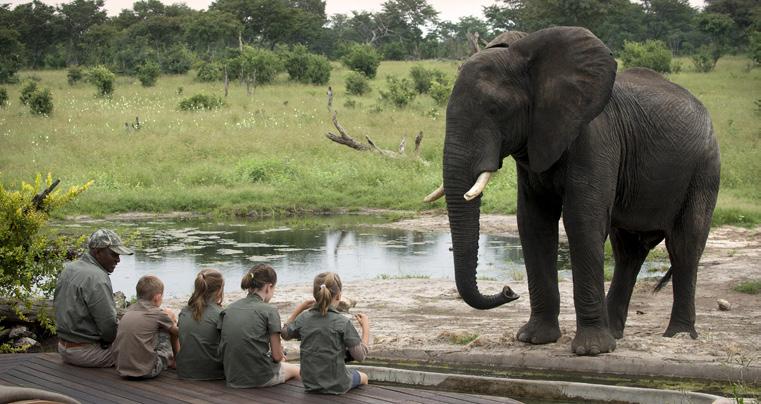
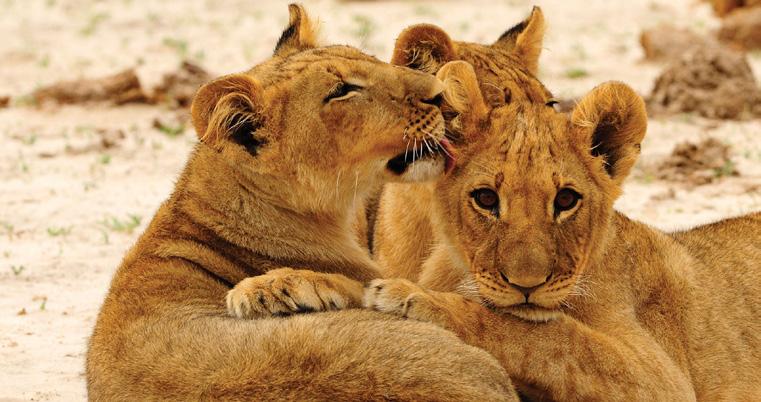
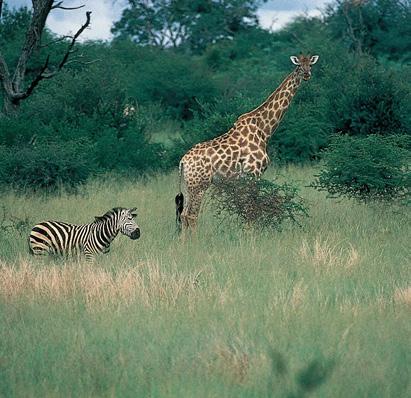


Some of the pumped waterholes continue to receive consistent support from the HCS and the Bhejane Trust.A major recent upgrade was the installation of a new battery system at Mahaboti Pan. Solar pumps alone typically operate only between 0830 and 1630 hours. The new battery back-up system is transformative, allowing pumps to operate for longer, critically extending pumping time to 2200 hours. This extension ensures water is available during the peak drinking window between 1700 and 2200, a vital lifeline for thousands of animals.
Further maintenance work has also been crucial, including securing the pipe and meter at the recently installed second borehole at Tsamhole pan. Several days were spent building a protective meter box and conducting flow tests to ensure reliable operation.
The HCS recognizes that effective fieldwork requires robust logistical support. Thanks to an incredibly generous donation from one member, the Society procured four much-needed inverters for the Bhejane Trust. This single donation also covered essential food rations for the Trust’s dedicated staff and crucial fuel for their vehicles. Maintaining a stock of spare parts, such as couplings, reducers, pumps, motors, and recovery equipment, is essential for rapid response to breakdowns.
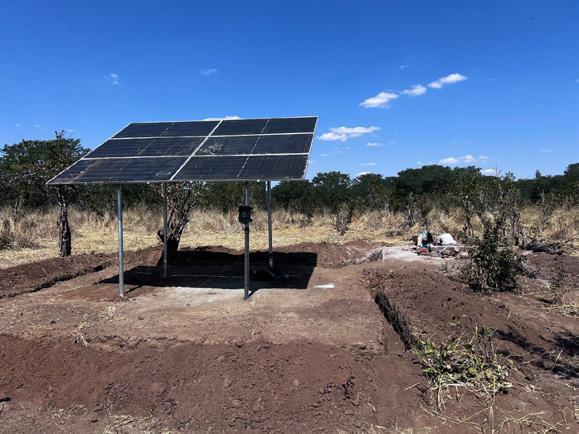
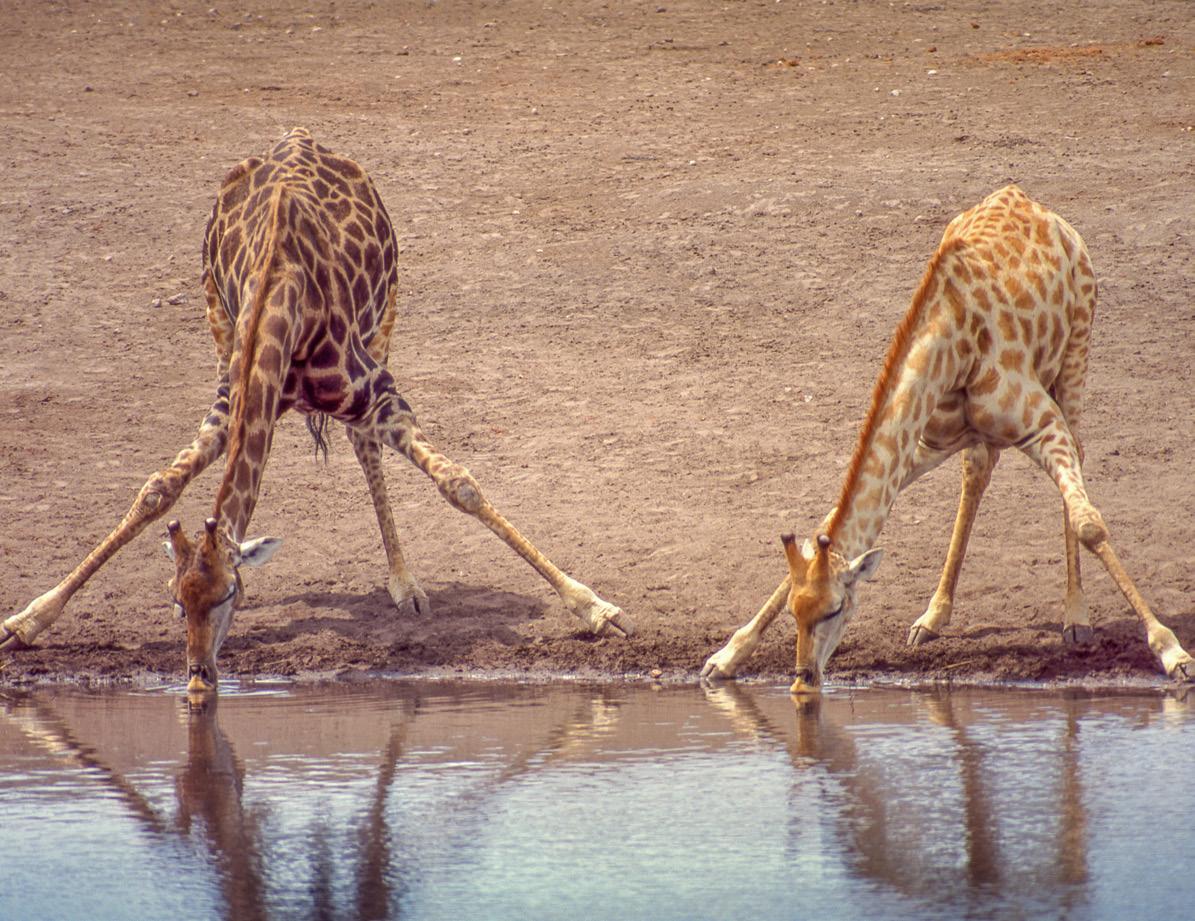

This stock was recently needed at Mbiza pan when the pump seized, damaging the motor. Replacement parts were swiftly deployed from the HCS-funded spares inventory, allowing the system to be restarted immediately, restoring the critical flow of water.
In addition to water maintenance, HCS has in the past donated £500.00 towards the essential task of maintaining firebreaks across the park and contributed another £500.00 toward the Bhejane Trust’s ongoing fuel costs—which at the time was about 600 litres per month—to keep anti-poaching and monitoring patrols moving.
The Hwange Conservation Society’s work—from sponsoring game water scouts to providing tactical equipment and maintaining water flow—is the backbone of conservation in this region. The Society continues to appeal to the global community to contribute to this essential effort to protect Zimbabwe’s priceless wildlife heritage.
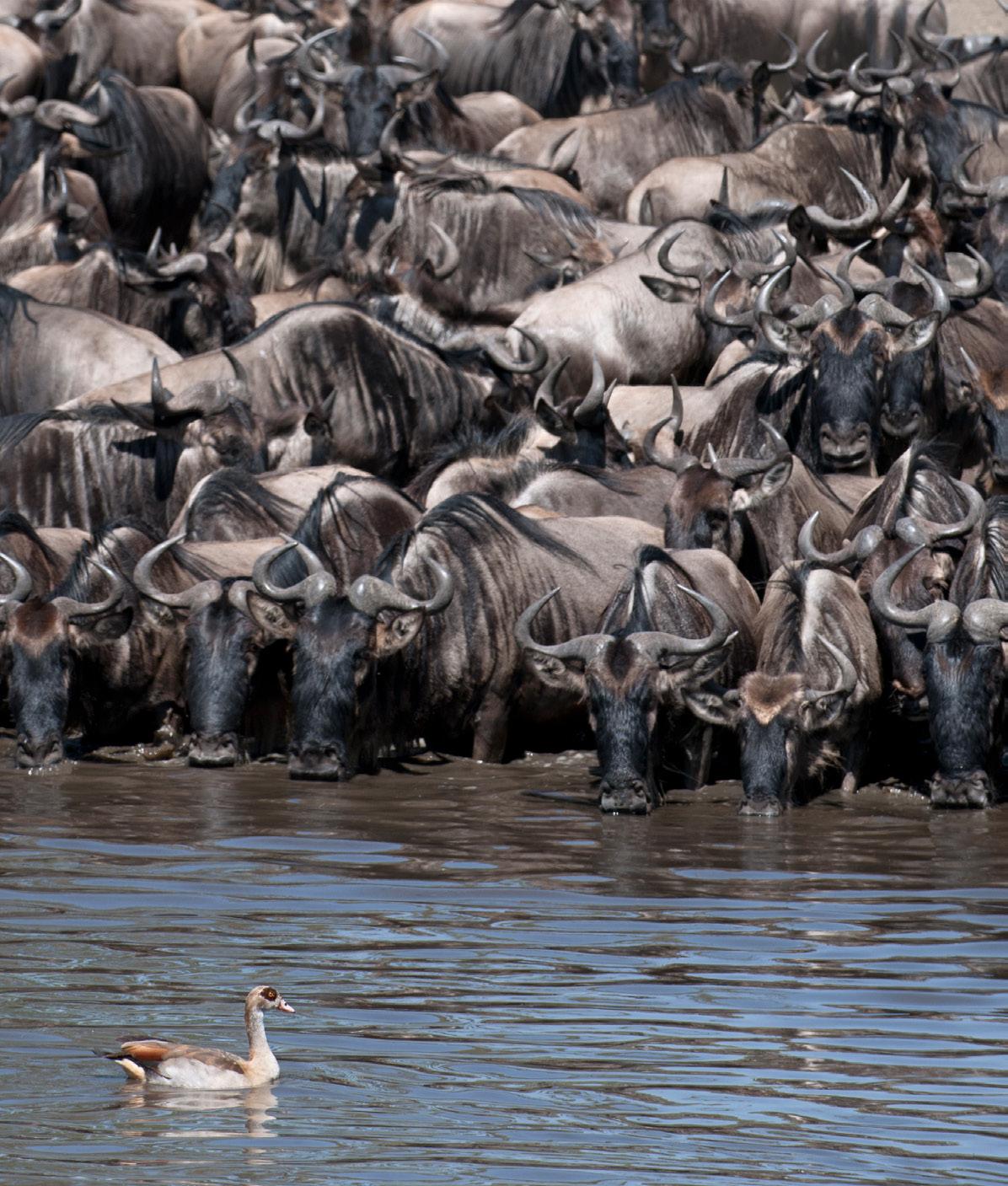

The tranquility of Beitbridge is about to be broken by the whirring of bicycle chains and the cheers of a vibrant cycling community. Nottingham Estate Resorts, a hidden gem nestled along the Limpopo River, has officially confirmed that the highly anticipated Notties Cycle Challenge is on, scheduled for the weekend of October 17-19, 2025.
The event, a highlight on the local sporting and tourism calendar, promises more than just a race; it offers a full weekend itinerary packed with adventure, camaraderie, and a chance to experience the unique beauty of Nottingham Estate. "We look forward to hosting you all soon," a representative from the resort posted on social media, sparking excitement among cyclists and nature enthusiasts alike.
While specific details about the routes are still to be released, participants can expect a challenging yet rewarding experience. The estate, a family-owned citrus farm and eco-tourism haven, offers a diverse landscape perfect for cycling. Riders will navigate through scenic mopane woodlands, skirt the banks of the mighty Limpopo River, and take in the unique flora and fauna of the area. This isn't just a race against the clock; it's an opportunity to connect with nature and appreciate the breathtaking Zimbabwean bushveld.




The Notties Cycle Challenge is also a significant boost for local tourism in the Beitbridge region. Nottingham Estate Resorts, with its accommodation options ranging from the rustic charm of Kuduland Lodge to the serene Nottingham Retreat, provides the perfect base for participants and their families.
Beyond the cycling, visitors can enjoy a range of activities, including game drives, bird watching, fishing in the Mushiloshokwe Dam, and tours of the historic bushman caves.
For a truly unique experience, guests can visit the "Fly Camp," where up to 300 elephants gather to feast on orange pulp from the estate's juicing factory during feeding season.
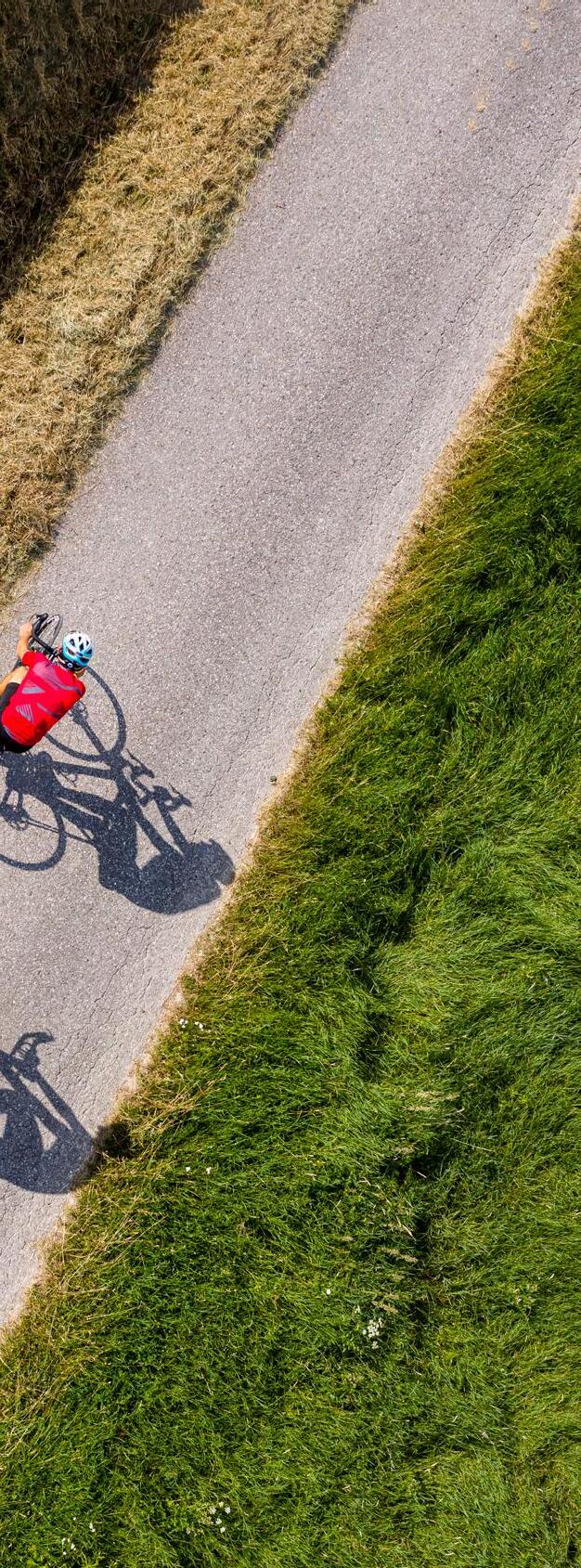
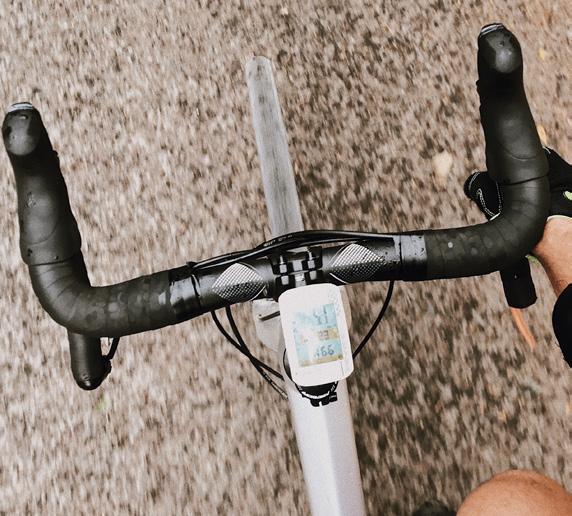
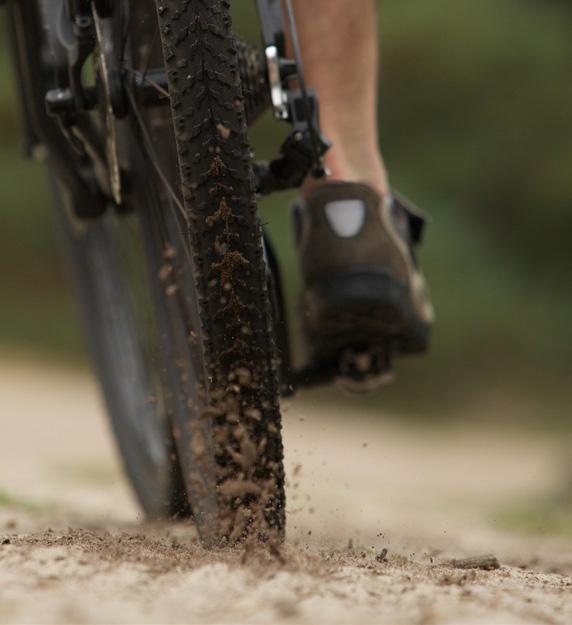


This event solidifies Nottingham Estate's position as a premier eco-tourism destination. The Notties Cycle Challenge showcases how sports tourism can be a powerful driver for regional development, attracting visitors, boosting local businesses, and highlighting the less-travelled but equally spectacular parts of Zimbabwe.
Cyclists and spectators are encouraged to secure their spots for what promises to be an unforgettable weekend of sport and scenery.





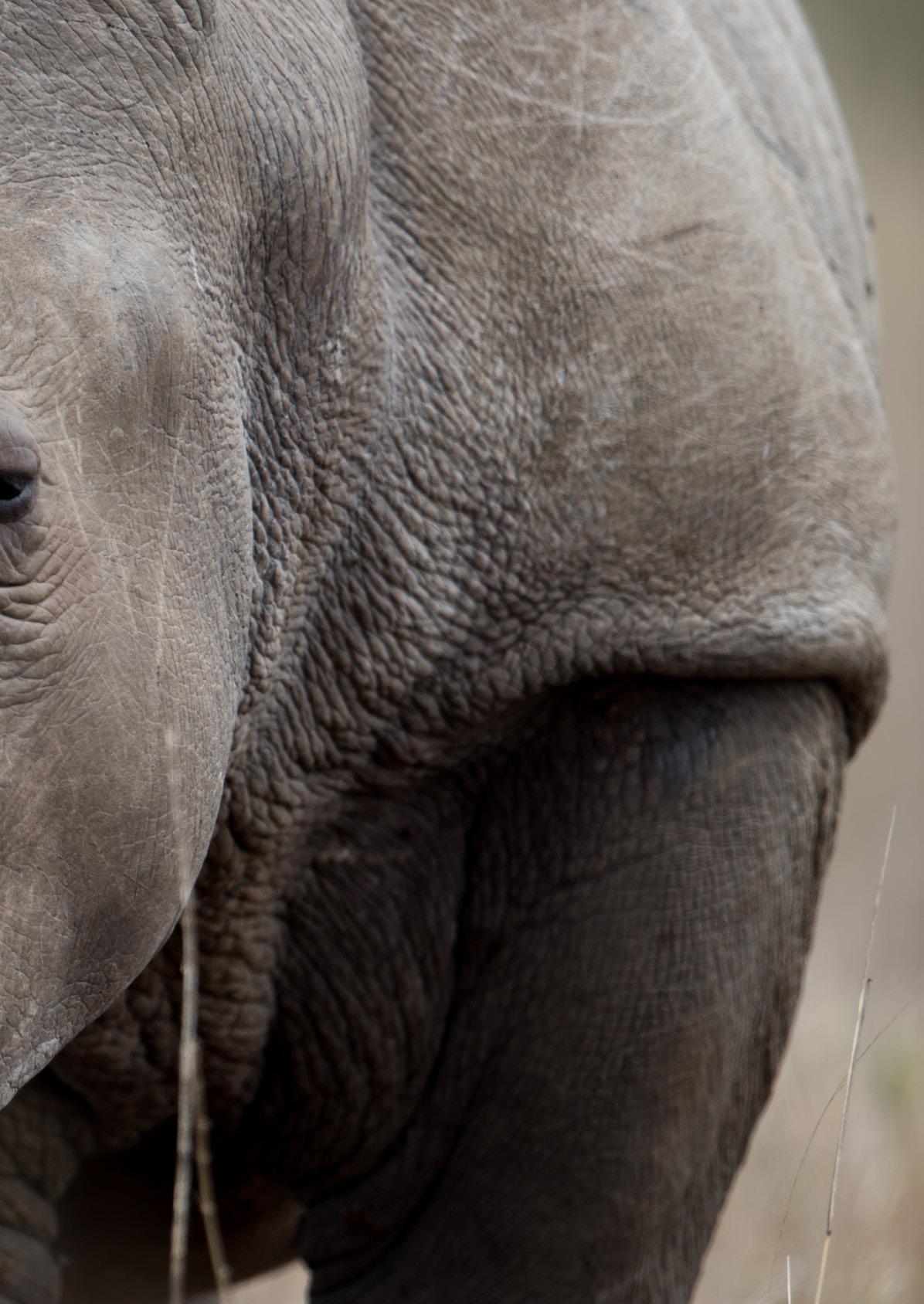
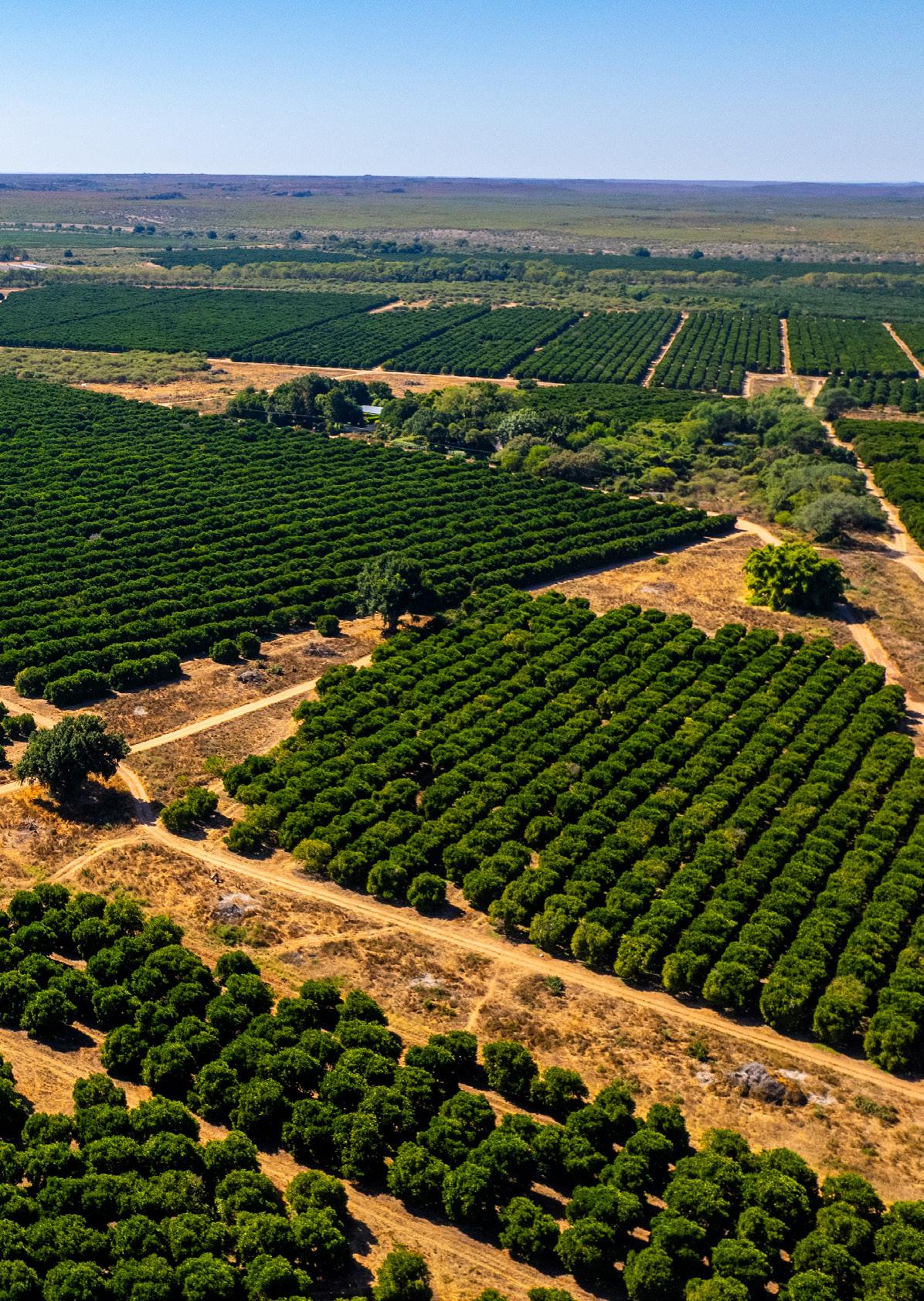



Zimbabwe is a nation of immense natural beauty and rich biodiversity, from its vast national parks to its diverse ecosystems. The protection of this natural heritage is a crucial national priority, and a wide array of organizations are working together to ensure its sustainability for future generations. At the forefront of these efforts is the Zimbabwe Parks and Wildlife Management Authority (ZimParks), which is responsible for the administration and protection of the country's wildlife. ZimParks manages a network of protected areas, including iconic destinations like Hwange National Park, Mana Pools, and Gonarezhou. These areas are vital for the survival of key species such as elephants, rhinos, and African wild dogs.

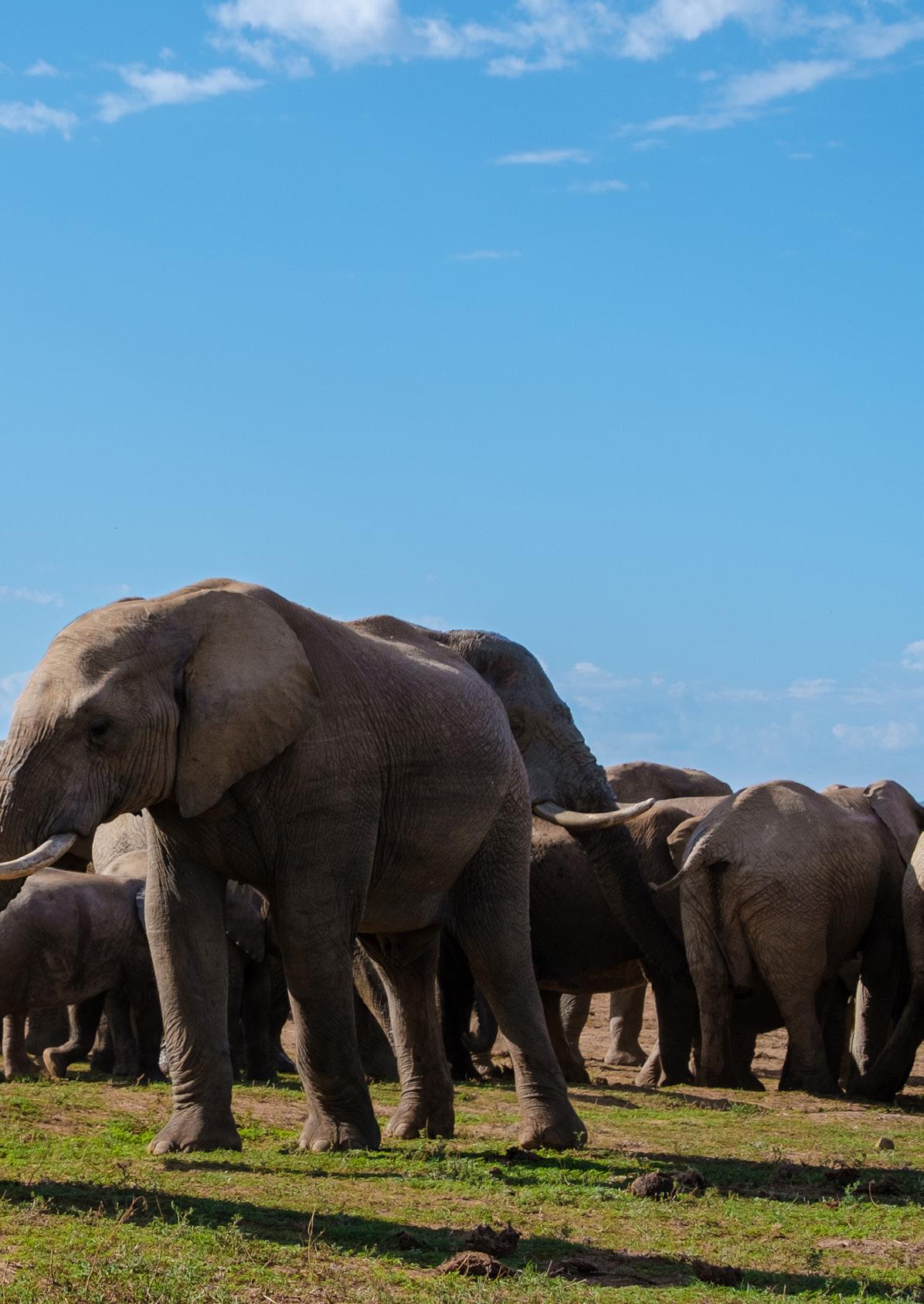
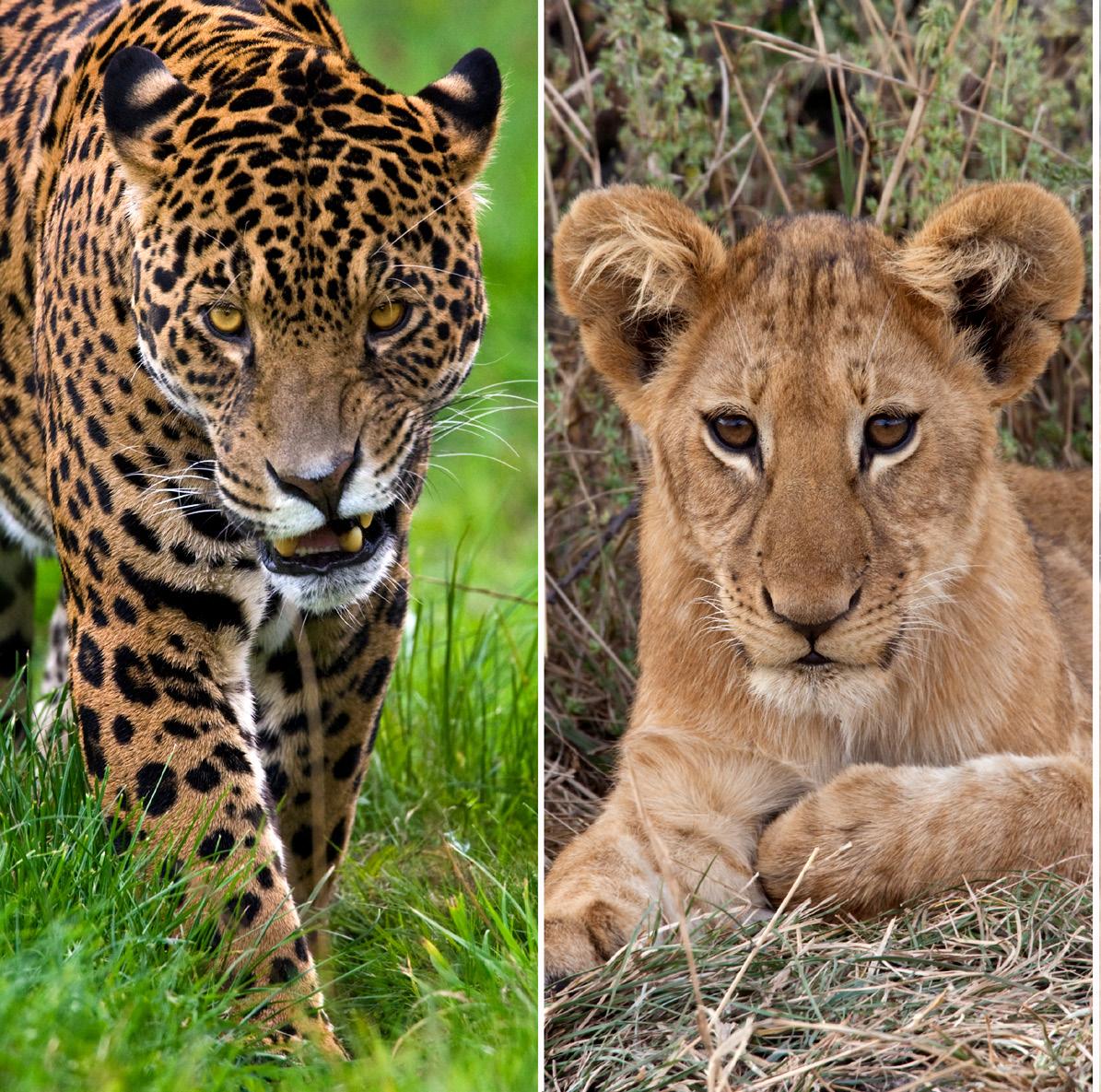
Conservation in Zimbabwe faces significant challenges, including poaching, human-wildlife conflict, and the impacts of climate change. To combat these issues, a collaborative approach has been adopted. Non-governmental organizations (NGOs) like the African Wildlife Foundation (AWF) and the International Fund for Animal Welfare (IFAW) are playing a pivotal role. They provide support for anti-poaching units, implement community-based conservation programs, and help establish early warning systems to mitigate conflicts between local communities and wildlife.

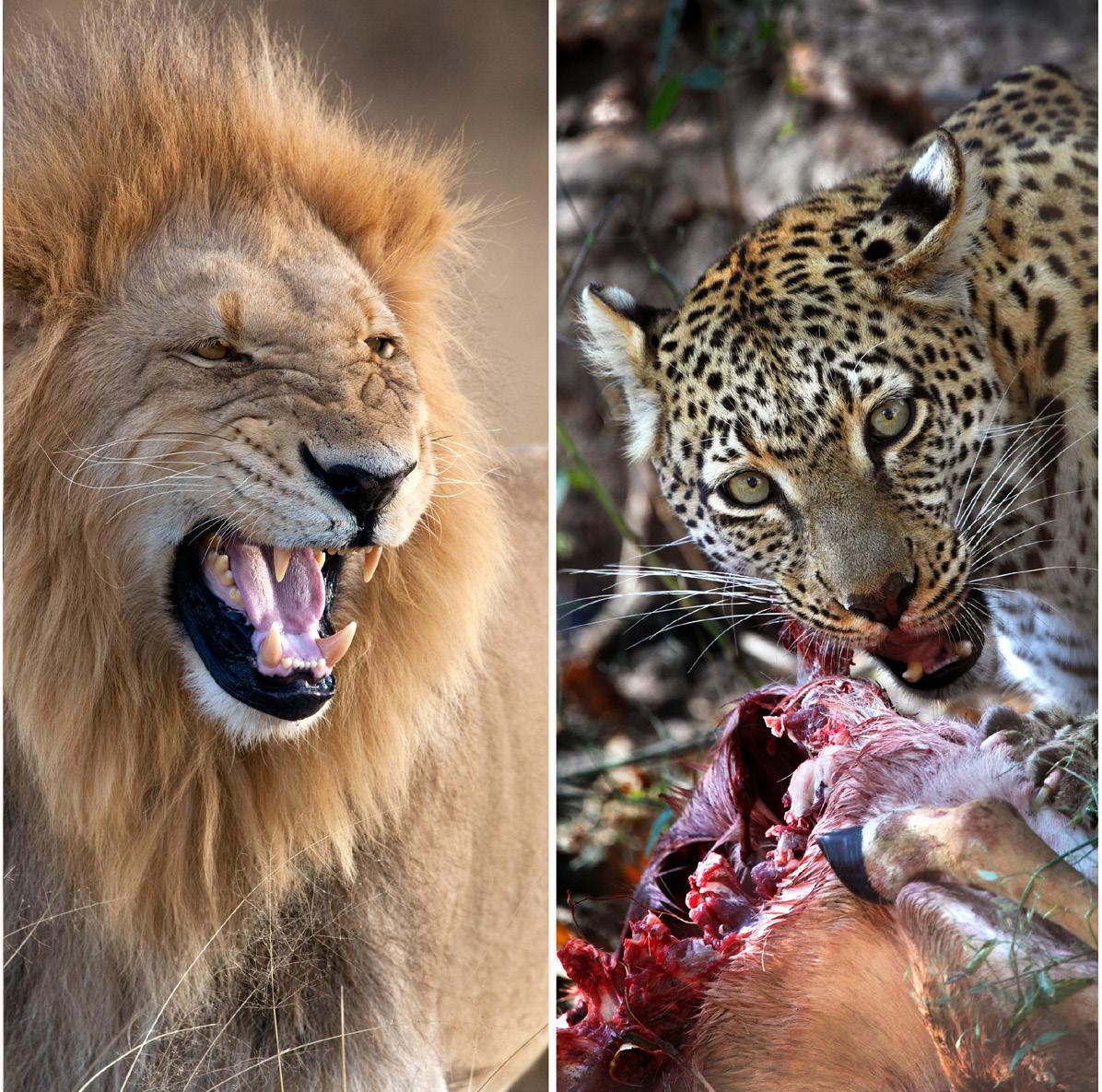
International partners are also a critical part of this collaborative framework. The United Nations Development Programme (UNDP) and the World Bank, through the Global Wildlife Program (GWP), support projects that strengthen law enforcement, promote sustainable livelihoods for communities living near wildlife, and foster regional cooperation in combating illegal wildlife trade.
These initiatives are not only about protecting animals but also about demonstrating the economic value of nature and ensuring that local

communities benefit directly from conservation, thereby becoming active stewards of the environment.
Through this concerted effort by the government, local communities, and international partners, Zimbabwe is making significant strides in safeguarding its unique biodiversity, proving that conservation is a shared responsibility that "moves the nation" towards a greener and more prosperous future.


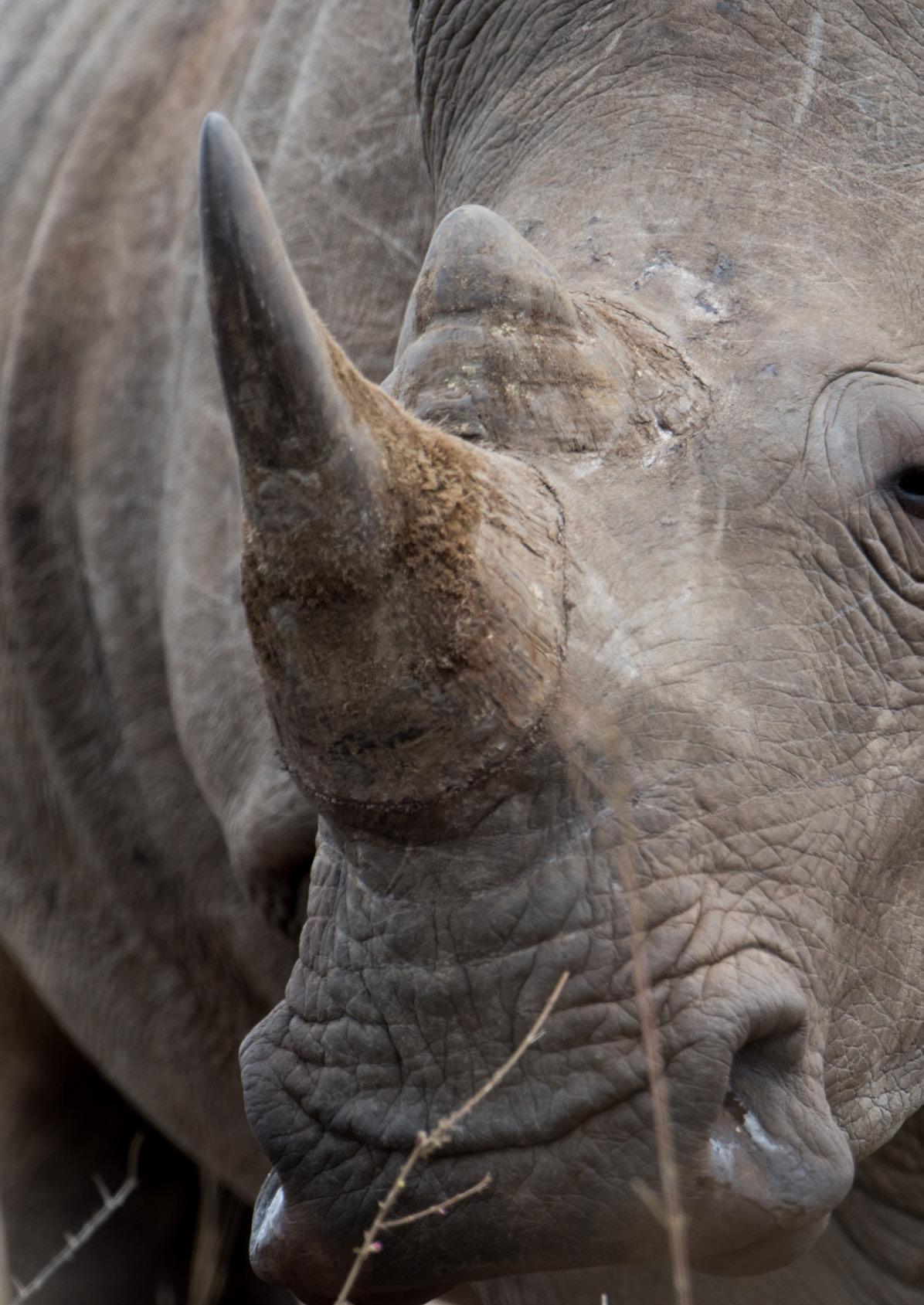
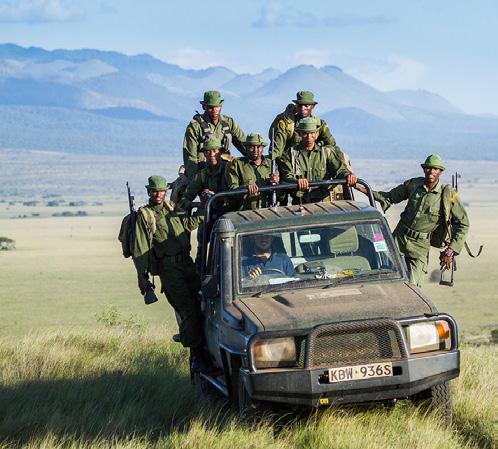
The Anti-Poaching K-9 Foundation TRUST recently celebrated the graduation of its second batch of anti-poaching K-9 handlers. This inspiring group is comprised of ten highly-skilled and determined female individuals, ready to join their male counterparts in the crucial mission of safeguarding Zimbabwe’s precious wildlife. The graduation marks a pivotal moment, pointing to a new era of inclusivity and a strengthened frontline in the battle against poaching. The ceremony highlighted the trainees' unwavering commitment to conservation.
Their graduation is not merely a personal achievement but a significant step toward bolstering the efforts of key conservation organizations, including Zimparks, in protecting vulnerable species across the country. These new handlers and their K-9 partners are a force multiplier, bringing a unique blend of skills and a deep passion for wildlife protection to the field.
The Foundation is now actively seeking collaborations with financial partners to ensure the strategic deployment of these highly skilled units. The plan is to place them in some of the most critical and challenging areas for conservation.
Their strategic deployment will cover key zones within the Zambezi Valley, including Kariba, Chirundu Border Post, Highway Patrol routes, and the iconic Mana Pools National Park. These locations are vital to disrupting poaching syndicates and protecting key wildlife corridors.
This initiative is a collaborative success, made possible by the support of numerous partners who share a common vision for a sustainable future for Zimbabwe's wildlife. The Anti-Poaching K-9 Foundation TRUST works closely with the Kariba Animal Welfare Fund Trust - Kariba Zambezi Elephant Fund, Peace Parks Foundation, and African Parks, among others.

Other key supporters include Wildlife Conservation Action, Wild Animals of the World, Charama LeisureResort Wildlife-Conservancy, Wildlife and Environment Zimbabwe - Mashonaland, and the Best Friends Animal Society.
These partnerships are instrumental in providing the resources and expertise needed to train and equip the units, making this vital work a reality. The deployment of this all-female unit is a testament to the fact that with dedication and collaboration, a greener, safer future for wildlife is within reach.
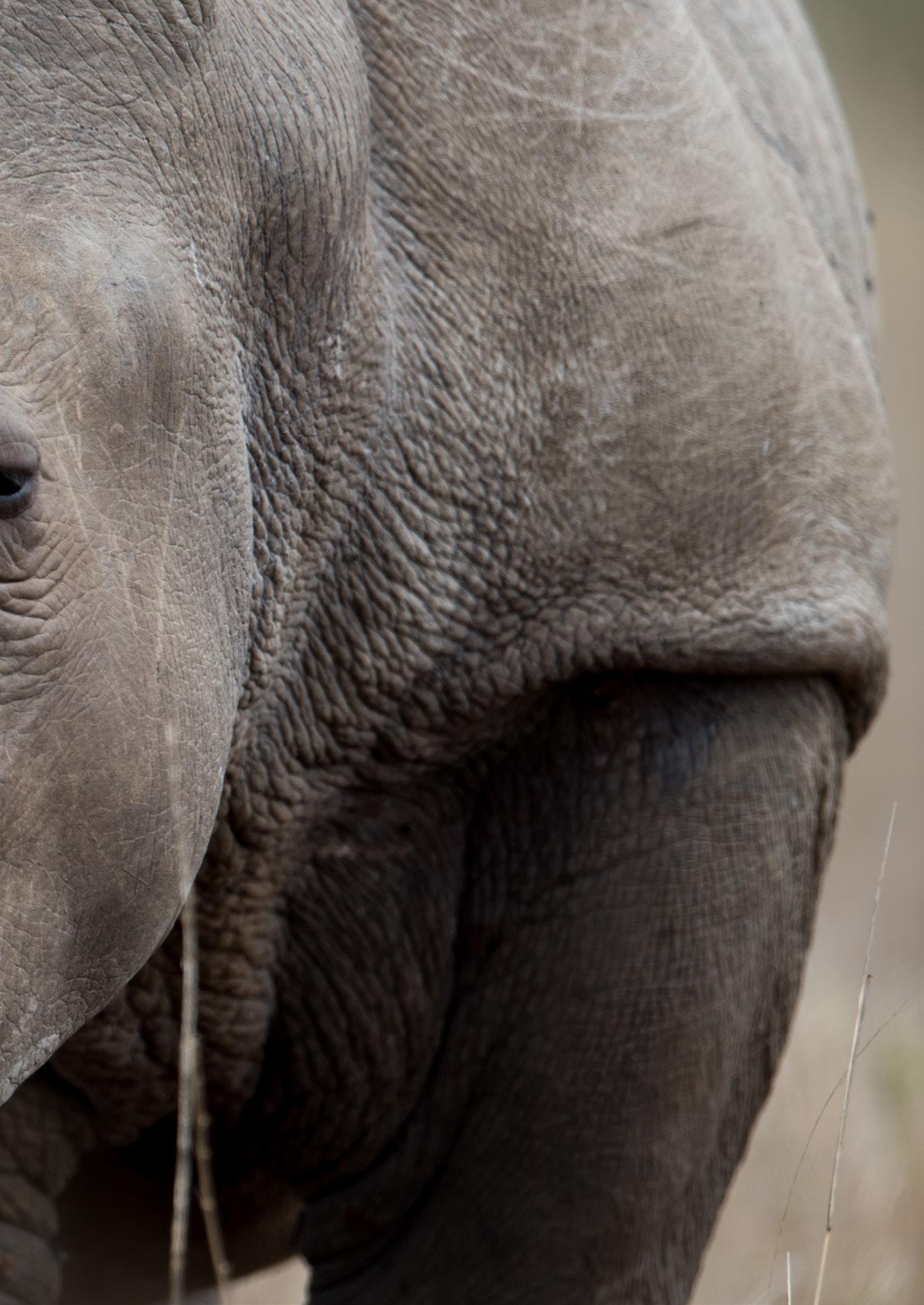

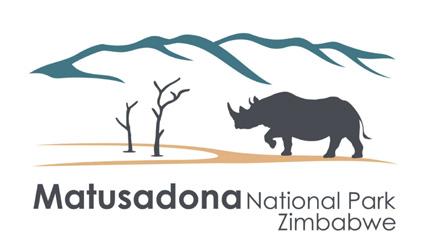

Matusadona National Park recently celebrated a strategic partnership with the Tikki Hywood Foundation (THF), creating a powerful new front in the battle to save the continent's most trafficked mammal, the pangolin. This collaboration combines Matusadona’s vast protected landscape and community ties with THF’s specialized veterinary and scientific expertise, making a tangible impact on pangolin conservation in Zimbabwe.
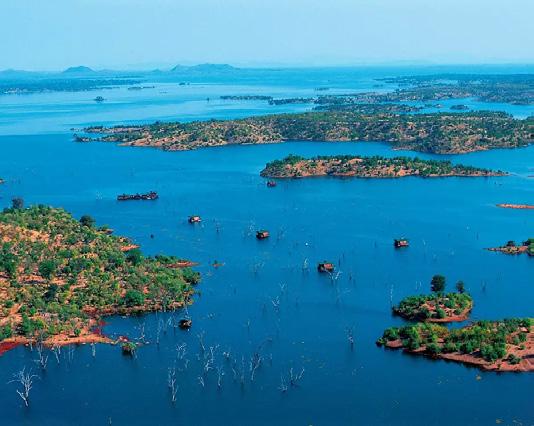


The partnership leverages the unique strengths of both organizations. The Tikki Hywood Foundation provides world-class veterinary expertise, cutting-edge rehabilitation protocols, and crucial scientific guidance. These skills are essential for the successful re-wilding of pangolins rescued from the illegal wildlife trade. Matusadona National Park, in turn, contributes a sprawling 1,470 km² of protected habitat, a dedicated pangolin unit, and established community engagement networks. This synergy allows for the effective implementation of research and monitoring programs in the field.
Together, they have already achieved remarkable results. The Matusadona National Park Pangolin Project, launched last year, successfully studied the movements and habits of five rehabilitated pangolins after their release into the wild. This research provides invaluable data on the species' behaviour and survival in their natural environment.
Beyond the park's boundaries, the project is building strong connections with local communities. Through extensive educational outreach, over 4,600 community members have been reached, raising awareness about the plight of pangolins and the importance of their protection. This has fostered growing community trust, which has already led to critical anti-trafficking tip-offs, helping to disrupt the illegal trade network.
The ultimate goal is to create one of Africa’s most comprehensive pangolin monitoring programs. The next phase of this pioneering partnership will focus on developing conservation methodologies that can be replicated and scaled across the continent, potentially benefiting pangolin populations far beyond Zimbabwe. By combining their resources and expertise, Matusadona National Park and the Tikki Hywood Foundation are setting a new standard for collaborative conservation, offering a glimmer of hope for a species teetering on the brink.

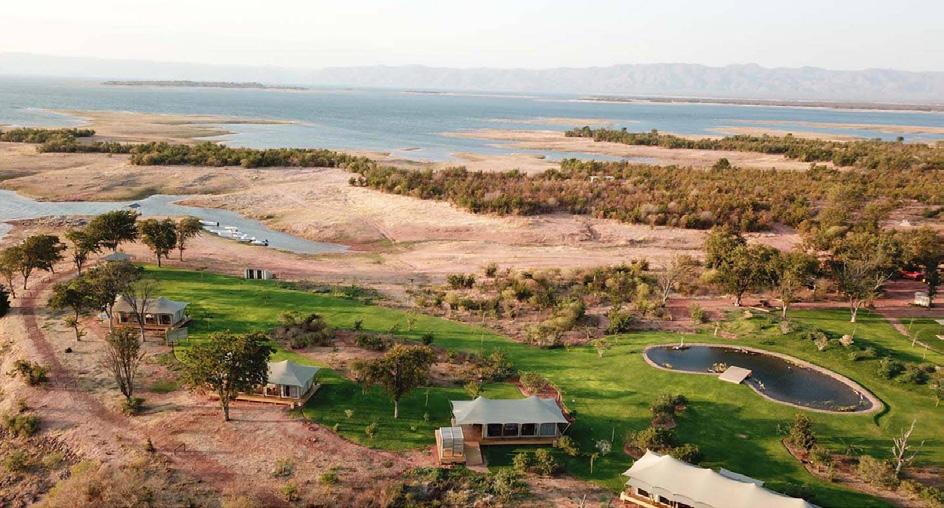
For many, the transition from the high-impact world of professional rugby to the detail of luxury tourism would seem impossible. Yet, for Dean Dewdney, a self-proclaimed foodie, father, and founder, this shift has birthed one of Zimbabwe’s most innovative travel concepts: The Safari Butler. After years spent playing rugby in the demanding environment of the United Kingdom, Dean returned to his native Zimbabwe driven by two powerful, interconnected passions: food and travel. The years of planning resulted in The Safari Butler, a brand designed to go the extra mile by combining thrilling African adventures with world-class, bespoke dining. Dean, an energetic, enthusiastic, and outgoing personality, honed his interpersonal skills in the sports and corporate worlds, traits that lend themselves perfectly to hosting elite clientele. His philosophy is simple: create a stress-free, fun, and easy adventure with energy and professionalism that surpasses all expectations.
The true signature of The Safari Butler is Dean’s mastery of fire-cooking in the African bush. This isn't just basic campsite fare; it is a blend of remote catering and culinary sophistication, elevating a rustic experience into a true luxury indulgence. Specializing in catering in the most remote destinations, The Safari Butler acts as a private safari chef, bringing a touch of finesse to the wilderness. Clients are invited to "indulge in the flavours of Africa" and delight in delectable, creative, and tried-and-tested menus that thrive even in extreme bush conditions.
The Safari Butler handles all the planning and procurement, ensuring the pantry is enticing and exciting, allowing guests to focus entirely on the experience. Dean often encourages guests to embark on a shared “braai” cooking adventure, navigating Southern Africa’s amazing terrain while engaging in real-life conservation efforts and unforgettable wildlife encounters. This commitment to combining vibrant food culture with untamed beauty exemplifies his belief that “food travel is the future.”
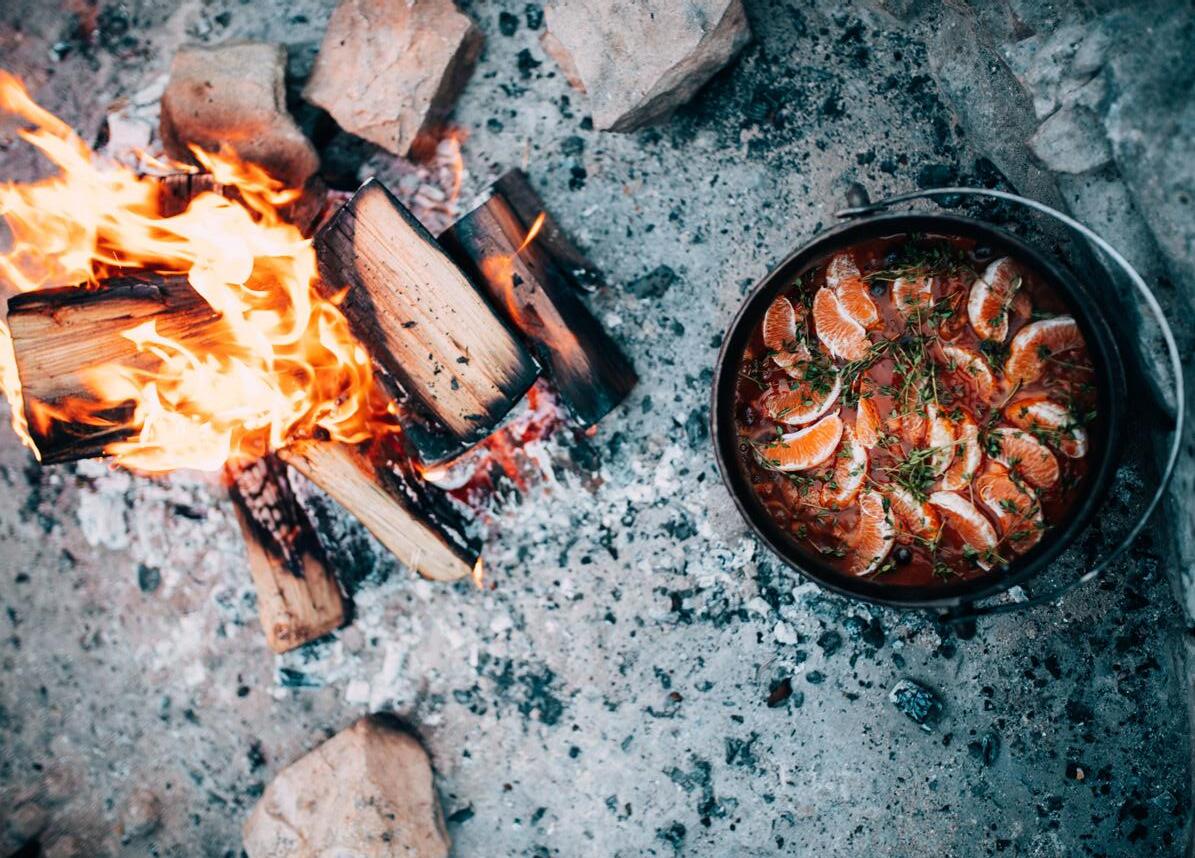
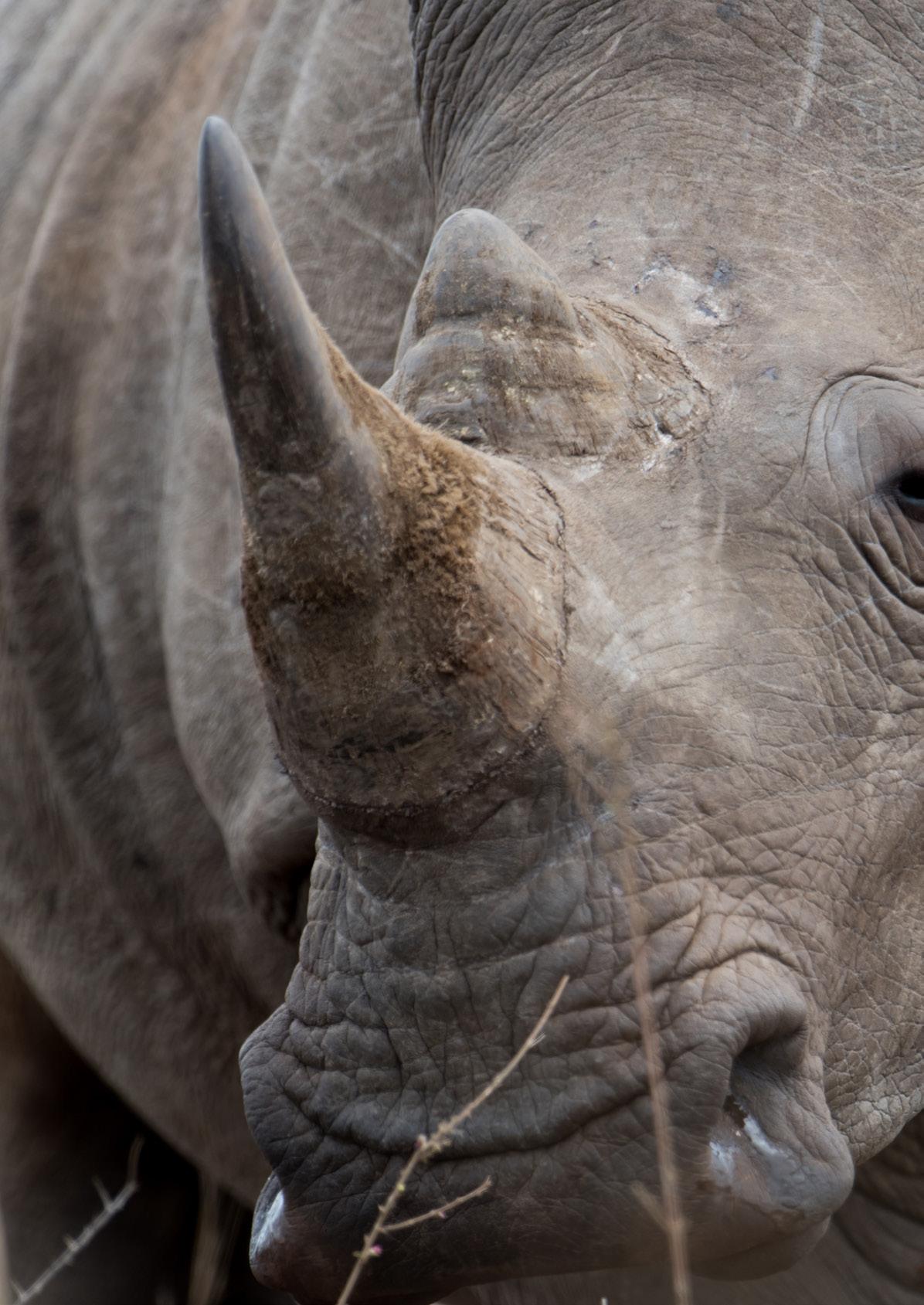

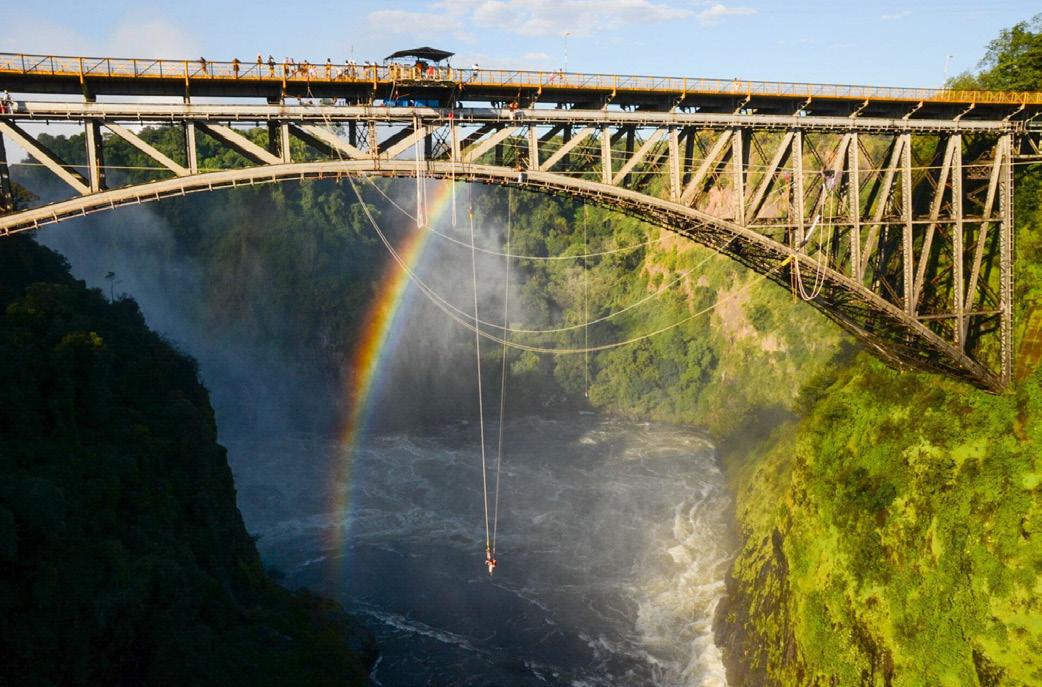
The Safari Butler provides an unforgettable safari experience across Zimbabwe, immersing guests in breathtaking wildlife and stunning landscapes, including the awe-inspiring Victoria Falls. Known locally as "Mosi-oa-Tunya" (The Smoke That Thunders), the falls are a spectacular natural wonder that offers a perfect backdrop for adventure, from thrilling game drives and serene river cruises to high-adrenaline activities like bungee jumping.The service is committed to responsible tourism, crafting tours that not only showcase the region's rich wildlife but also celebrate the vibrant cultures surrounding the falls.
Dean Dewdney’s expertise recently received a high-profile endorsement that speaks volumes about his service quality. He had the distinct privilege of traveling with, cooking for, and hosting Jeremy Clarkson, Richard Hammond, and James May throughout their Zimbabwean trip for the hit show, The Grand Tour—a journey affectionately dubbed "one for the road."
This experience, providing top-tier catering and hospitality for global celebrities in remote locations, confirms The Safari Butler's ability to deliver under pressure and cement its reputation. Whether following in the footsteps of the famous trio or crafting a bespoke journey for a private group, Dean Dewdney is successfully redefining the luxury safari, proving that the heart of a great African adventure lies where thrilling wildlife and passionate, fire-cooked cuisine collide.
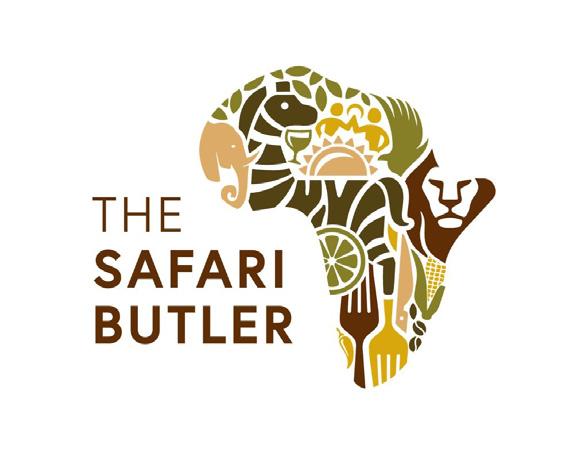

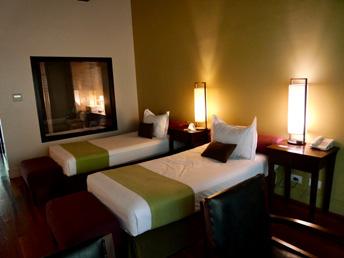
The Golden Palm Boutique Hotel, a luxurious two-story retreat nestled at 6 Alvord Road in the leafy, quiet environs of Mount Pleasant, recently hosted a group of local and regional travel writers. The exclusive overnight stay, which took place on Wednesday, September 17, offered a firsthand look at the hotel's renewed commitment to personalized, high-quality hospitality under fresh management.

Service excellence:
Leading the welcoming team was Violet Rodrigues, the hotel's new Manager, who was supported by the highly celebrated and newly employed Chef Godfrey Bomboraboko.
The successful tour was a concept sparked by long-standing industry expert Stan Higgins, who suggested that the hotel’s new leadership invite writers to experience the property’s unique charm.
The guests enjoyed a leisurely checkin late that afternoon, culminating in a sumptuous supper and a delightful breakfast the following morning before check-out.
Rodrigues, who was previously at Kia Ora Lodge, brings a wealth of experience and a clear vision for the boutique hotel's future. Her calm yet attentive presence set a perfect tone for the stay.
The culinary highlight of the visit was undoubtedly the meals prepared by Chef Godfrey, who, despite only being a few days into his tenure at Golden Palm, delivered flawless dinner and breakfast services.

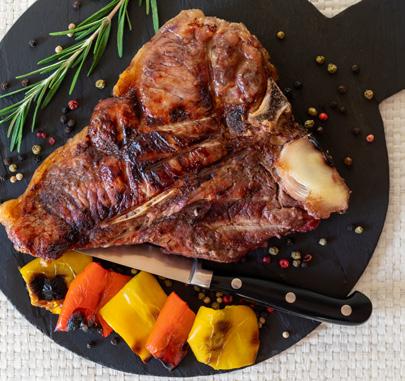
The writers, including this one, settled for a well-prepared and delicious T-bone steak dinner on arrival, followed by a hearty breakfast spread of scrambled eggs, sausages, toast, cornflakes, fruit salad, and yoghurt. Chef Godfrey’s philosophy is simple yet powerful, encapsulating the hotel’s ambition: “Five Star is not about the place, but service, be of service!!! and make the difference....” With over 23 years of hands-on, extensive experience spanning exquisite game and safari lodges across southern Africa, city hotels, and the mining environment, his expertise promises to elevate the dining experience to match the hotel’s luxurious setting.

The story of the Golden Palm Boutique Hotel is inseparable from the personal journey of its founder, Jerry Jiang. Born in China and raised in the United States, Jerry’s move to Zimbabwe in 2010 culminated in the creation of the hotel as his own personal dream house, a project he designed himself, drawing heavily on inspiration from his time in the States.
Jerry’s profound love for nature is evident throughout the property. He views the stunning garden as a living piece of art, creatively nurtured over the years. The grounds are dotted with thriving fruit trees, which he planted from seeds he brought in 2011. He shared that the house was literally built around one particularly large, healthy Palm Tree—a feature that, along with the numerous palm trees he has planted, inspired the hotel's name and serves as a dominant, sculptural feature in the yard. His appreciation extends to the tranquility of the location, where he finds joy in the simple song of the birds and the sound of the wind.
The founder’s dedication to uncompromising quality defines the entire guest experience. Jerry emphasized his preference for "quality stuff," evident in the mostly imported furniture, complemented by select local pieces like a large, customsought table. Even the doors exude quality, closing with a satisfying, solid thud that speaks to the strength and hardness of the wood.
The hotel offers a range of luxurious accommodations, including a spacious Presidential Suite that comes with complimentary wine, fruits, and snacks, and a serene “Garden Room” with beautiful views and the option of two separate beds. Comfort and convenience:
• Connectivity: Guests benefit from a reliable, complimentary Wi-Fi network.
• Leisure & Relaxation: The grounds feature a peaceful Gazebo, a large pool table, and a deep swimming pool (two to three meters deep).
Business: A well-equipped conference room can accommodate up to 18 people.
The luxurious bathroom fixtures are particularly noteworthy, offering features that rival world-class resorts. These include modern, capsule-like shower units with sleek glass doors, elegant double vanities with marble-like countertops, and large, round jacuzzi or bathtubs situated by arched windows for a truly relaxing soak. The common areas, such as the seating area in the suite and the outdoor patio, feature rich, brown, tufted leather furniture and solid wooden dining sets, all bathed in sunlight.

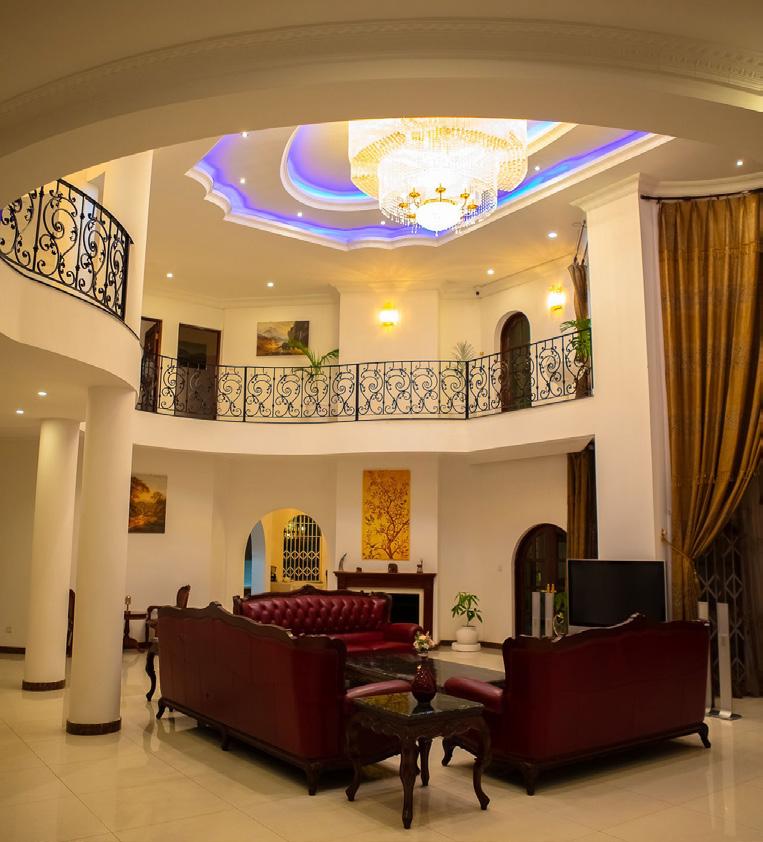
Sitting on the verandah overlooking the sparkling blue pool after a personal tour with Jerry, the travel writers were in full agreement: the Golden Palm Boutique Hotel is a rare find in northern Harare. With an environment of profound quietness and a new management team dedicated to five-star service, the hotel is a successful fusion of personal vision, natural beauty, and uncompromising luxury, setting a new, exciting benchmark for boutique accommodation in the region.



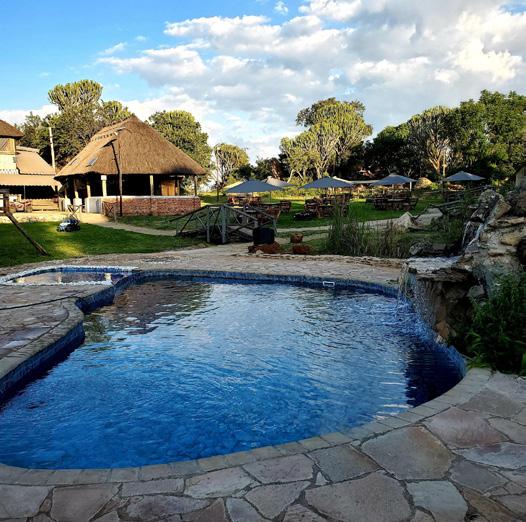
Designed for those seeking an authentic and unforgettable culinary experience, Nyama Choma Resort is quickly becoming a go-to destination. This resort is a celebration of Zimbabwean culture, offering a perfect blend of mouthwatering African cuisine, serene ambiance, and genuine hospitality
Nyama Choma, which translates to "grilled meat," lives up to its name with a diverse menu centred on savoury meats grilled to perfection. The resort prides itself on using fresh, local ingredients, ensuring that every dish—from the signature goat ribs praised by a recent visitor to flavourful vegetarian options—is a true reflection of the nation's rich culinary heritage. As one guest, who enjoyed their anniversary dinner with family, remarked, the "finger-licking goat ribs were so nice," a testament to the kitchen's mastery.
Beyond the food, the resort's ambiance is a key part of its appeal. The spacious outdoor seating allows diners to relax and enjoy their meals while surrounded by the natural beauty of the landscape, providing a peaceful escape from the hustle and bustle of city
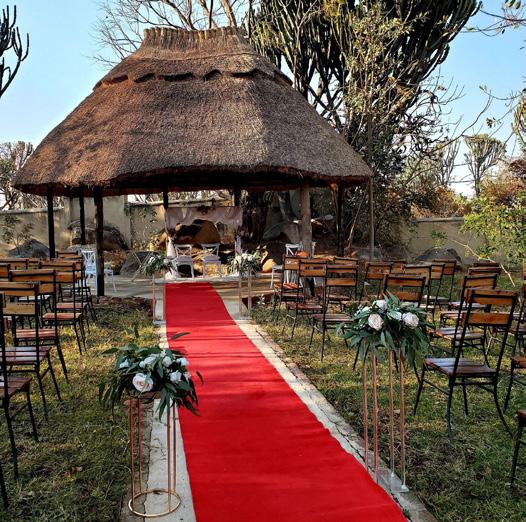
life. This makes it an ideal spot for both intimate dinners and celebratory gatherings. The commitment to customer experience is evident in the proactive approach of the management. Joseph Gachuhi, the General Manager, recently responded to a customer review, acknowledging their feedback and apologizing for any shortcomings. He assured the patron that their input would be used to "improve so that other customers including yourself in your next visit benefit," and extended a personal invitation to revisit and experience the enhancements firsthand. This dedication to service, praised as "excellent service" by a visitor, is a cornerstone of the resort's philosophy.
In addition to its dining and serene environment, Nyama Choma Resort also offers cultural events and themed nights, including cooking classes and live music performances. These activities provide a deeper immersion into Zimbabwean traditions, creating a holistic experience that goes beyond a simple meal. For anyone looking for a memorable getaway or a taste of authentic Africa, Nyama Choma Resort.
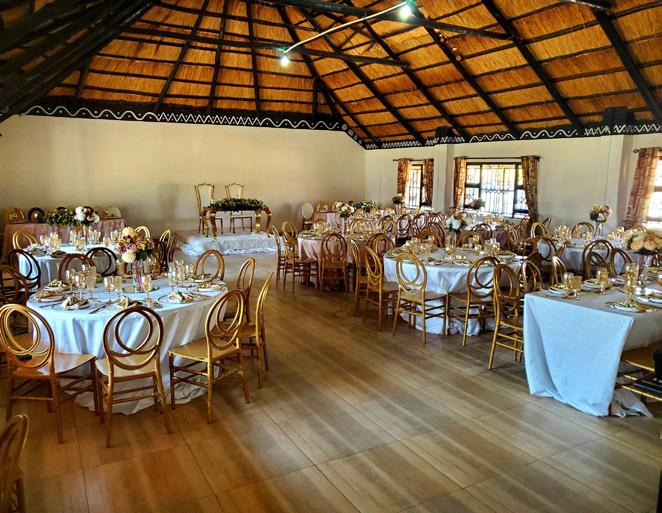
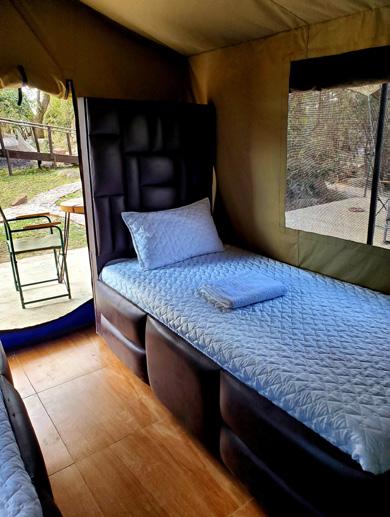

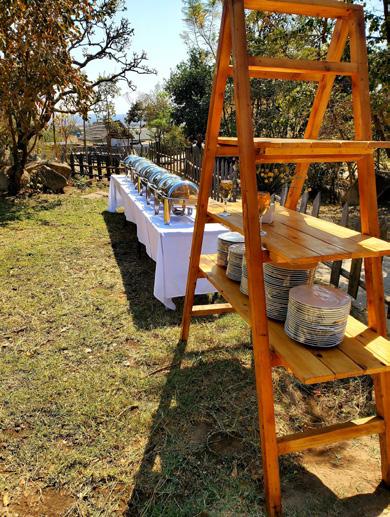


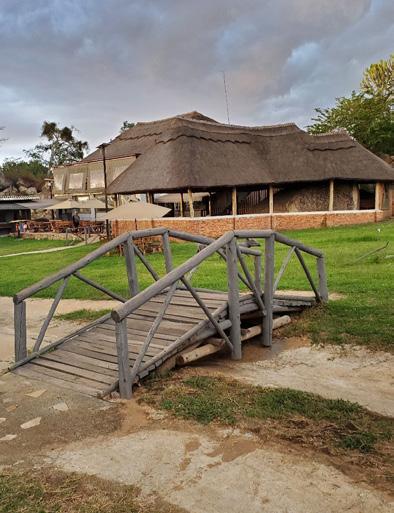
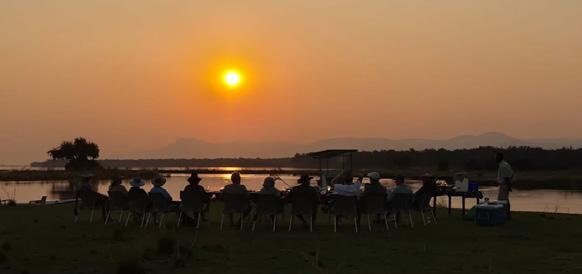
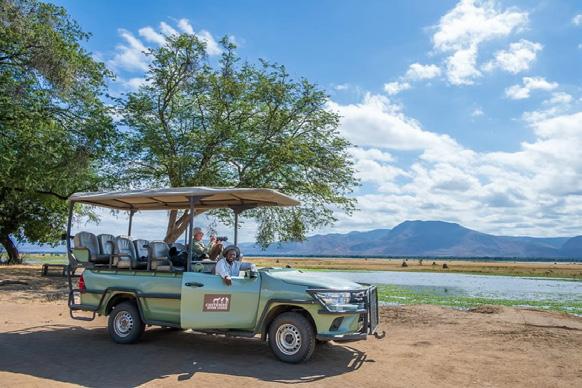
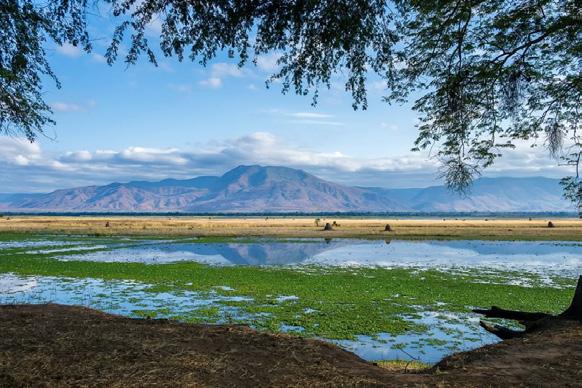
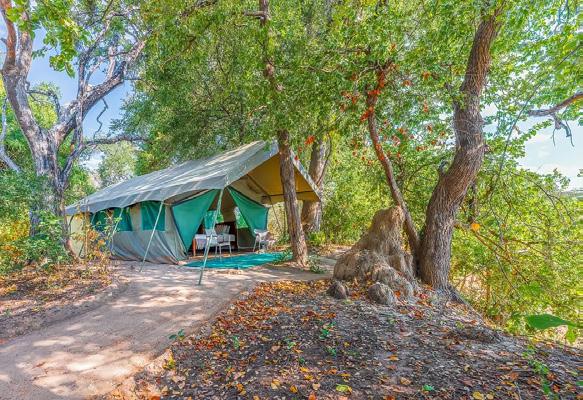
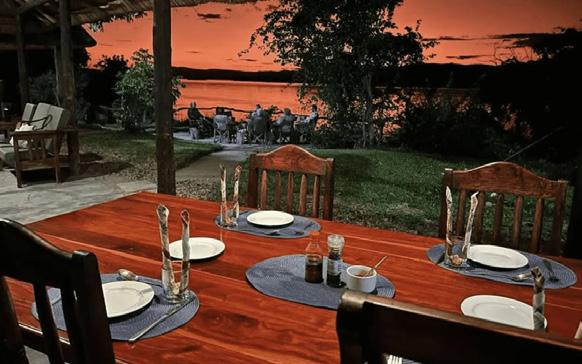
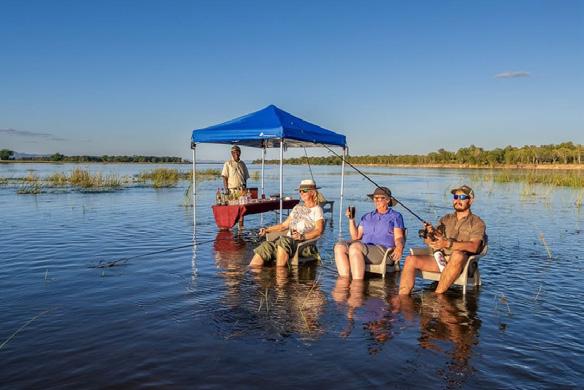
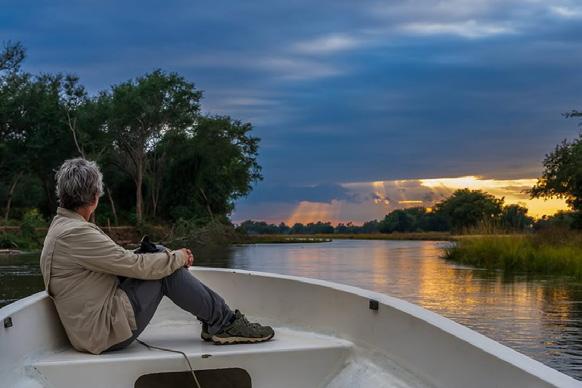

A new story of wilderness luxury is unfolding deep within the heart of Mana Pools National Park. Chitembe River Lodge, a collection of two privately-owned camps, is redefining the safari experience by blending rustic charm with refined elegance along the banks of the mighty Zambezi River. What began as a modest dream during the quiet lockdown of 2019 has blossomed into a cherished sanctuary for those seeking a true escape to reconnect with nature.
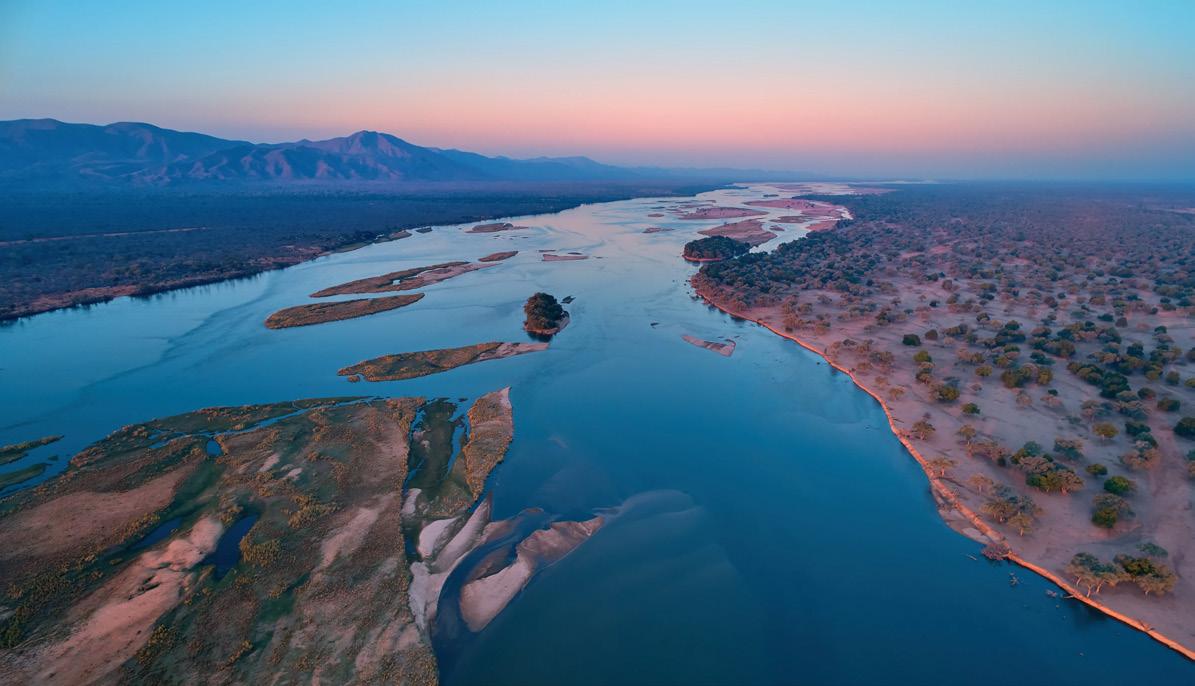
The lodge’s journey began with the creation of Mhumhi Camp. Conceived during the stillness of the COVID-19 pandemic, this camp was built to be a soul-soothing escape for those in need of peace. The name “Mhumhi,” meaning “wild dog” in the local language, was a tribute to the remarkable number of wild dogs roaming the area, a symbol of the camp's deep connection to the spirit of the land. Mhumhi Camp offers a warm and welcoming atmosphere, perfect for families and guests of all ages. Its seven spacious tents, set at ground level, provide a relaxed and authentic safari experience with plush beds and ensuite bathrooms that blend simplicity with comfort.
Just 600 meters upriver, a new chapter began beneath a towering Jackalberry tree. This breathtaking spot became the home of Jackalberry Camp, a luxurious counterpart to Mhumhi's rustic charm. Built entirely on raised composite decking, Jackalberry Camp offers a seamless blend of wilderness tranquility and sophisticated living. Its six deluxe tents are meticulously designed with lavish ensuite bathrooms, elegant vanity stations, and both indoor and outdoor seating, providing an elevated sense of privacy and peace.

Together, Mhumhi and Jackalberry Camps tell the complete story of Chitembe River Lodge—a place lovingly built to feel like home in the heart of the wild. Each camp offers a unique experience, allowing guests to choose their perfect retreat, whether they seek a grounded, authentic connection or a refined, elevated sanctuary. Chitembe is more than just a lodge; it is an African paradise built on a foundation of passion for the land and a deep desire to share its untamed beauty with the world.
The journey from a small tented camp to a dual-camp retreat is a testament to a vision realized—a place where the wild calls and the soul finds its rhythm.


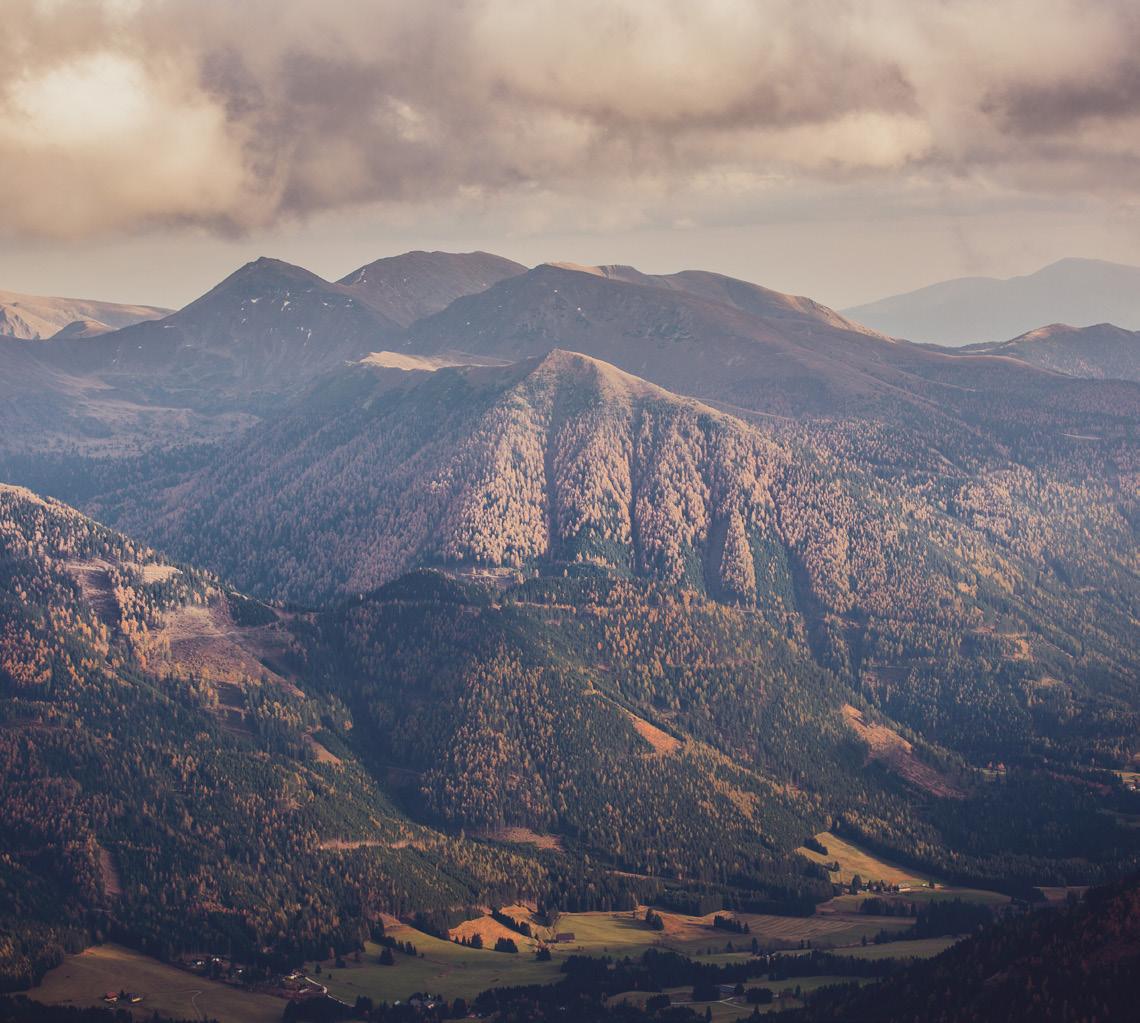
Zimbabwe's Eastern Highlands, a mountainous region stretching along the border with Mozambique, offers a unique and spectacular alternative to the traditional vehicle-based wildlife safari. This cool, lush, and verdant area is a paradise for walkers, hikers, and botanists, with its focus less on big game and more on immersive exploration of its breathtaking landscapes and exceptional biodiversity.
The region is divided into three main ranges: Nyanga National Park to the north, the Bvumba Mountains centrally, and the rugged Chimanimani Mountains in the south. Each boasts a network of trails for unforgettable walking experiences.
In Nyanga National Park, visitors can trek to Mount Nyangani, Zimbabwe’s highest peak, or hike to the spectacular Mutarazi Falls, the country's highest waterfall. The park's trails wind through rolling hills, pine forests, and past archaeological sites, making it ideal for both leisurely strolls and multi-day treks like the famed Turaco Trail. For an adrenaline boost, you can experience the Mutarazi Falls Skywalk.
Further south, the Chimanimani National Park is a haven for serious hikers and mountaineers. The park has very few roads, preserving its wild, pristine beauty and providing challenging routes through quartz crags and rolling montane grasslands.
Many local guides offer multi-day hiking safaris, with overnights at basic mountain huts or in caves, giving you an intimate experience with the unique flora and fauna, including endemic plant species. These trails also offer opportunities to see smaller game like eland, sable, and blue duiker, as well as a rich variety of birdlife.
The central Bvumba Mountains, or "Mountains of the Mist," are known for their indigenous rainforest, botanical gardens, and gentler, misty walks, often yielding incredible sightings for birdwatching enthusiasts, including rare species like the Swynnerton's Robin.
The Eastern Highlands provides a physically engaging way to connect with Zimbabwe's diverse natural beauty, offering a refreshing contrast to the arid lowveld. The cooler climate and diverse scenery—from cascading waterfalls to deep gorges—ensure a rewarding walking safari adventure for every fitness level.


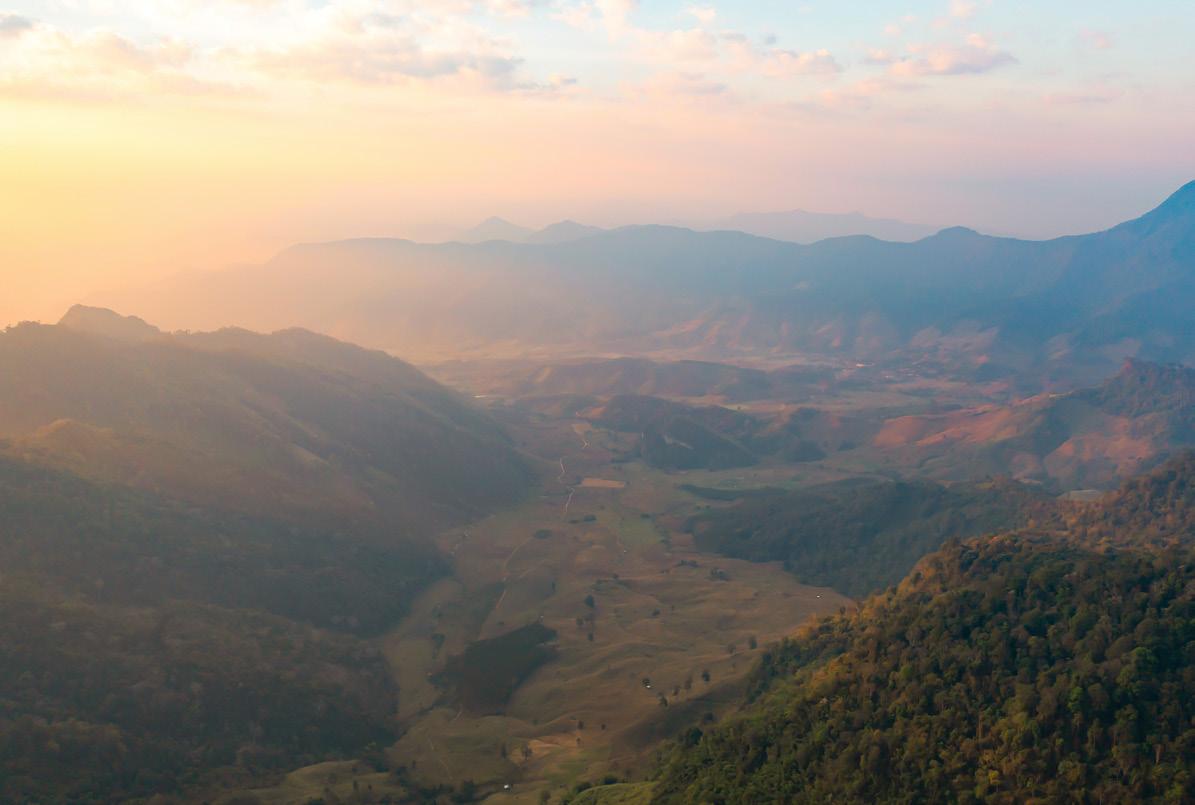


Zimbabwe's tourism sector is experiencing a strategic shift, moving beyond the traditional wildlife and waterfall circuits to embrace Community-Based Tourism (CBT) and eco-cultural experiences in rural areas. This new direction is a key pillar of the country's economic strategy for 2025 and beyond, aiming to decentralize tourism benefits, empower local communities, and offer visitors a profoundly authentic cultural engagement. The new focus is creating a vibrant map of emerging rural hotspots where heritage, nature, and community intertwine.
The Rise of Eco-Cultural Hubs
The shift toward rural tourism focuses on regions rich in cultural heritage and biodiversity, ensuring that local populations are the primary beneficiaries. This model supports the sustainable development goals by creating jobs and diversifying income in marginalized districts. One key area gaining prominence is the Buhera District in Manicaland Province. Historically known for the Dzapasi Assembly Point, a major site marking Zimbabwe's independence, the district is actively developing heritage tourism around sites like the Matendera Festival and cultural villages. This initiative positions local heritage not just as a historical asset but as a viable economic driver through cultural tourism, homestays, and nature-based activities.
Another significant emerging hub is the Binga Rural District along the shores of Lake Kariba. Despite its abundant tourism resources, including the lake and proximity to Chizarira National Park, Binga remains one of the poorest districts.
There is a strong push to develop propoor rural tourism strategies here that leverage the unique culture of the BaTonga people. This involves showcasing traditional architecture, local handicrafts, and the rich cultural history associated with the massive lake, offering a deeper experience than standard safari lodges.
The success of these new hotspots is directly tied to the empowerment of local communities, a core tenet of the new

national tourism policy. Small-to-medium enterprises (SMEs) run by locals are being supported through streamlined licensing and investment incentives, allowing them to offer unique, localized products.
Prominent examples of this communitycentric development include cultural and eco-tourism projects in areas surrounding established attractions like Hwange and Matobo National Park. Operators are increasingly facilitating village and school visits in districts such as Tsholotsho, Hwange, Bulilima, and Matobo, ensuring that tourist spending directly supports local development projects.
For instance, the Imire Rhino and Wildlife Conservation works closely with local rural communities to protect wildlife while providing educational tourism experiences focused on rhino rehabilitation.
The government's new 2025-2030 Tourism and Hospitality Industry Policy is acting as a catalyst, specifically encouraging the growth of community-based tourism enterprises. It mandates that tourism modernization must not compromise cultural traditions or natural habitats, reinforcing the move toward eco-tourism and cultural preservation.
By focusing on these grassroots initiatives in previously underdeveloped rural areas, Zimbabwe is poised to offer international travellers an authentic, responsible, and immersive experience that showcases the nation's true cultural and natural richness, moving the spotlight beyond the welltrodden paths of Victoria Falls and the major game parks.
Birding enthusiasts seeking an unparalleled African adventure need look no further than Zimbabwe’s premier avian hotspots. A comprehensive, intensive birding itinerary connecting the wild shores of Lake Kariba to the majestic Victoria Falls and the lush Eastern Highlands promises a checklist boasting over 600 species, including many range-restricted specials. This three-stage traverse offers not just spectacular birding but an immersion into Zimbabwe’s most diverse ecosystems.
The journey begins on the tranquil waters and rugged terrain of Matusadona National Park on the southern shores of Lake Kariba. This is a prime destination for waterfowl and raptors, benefiting from the ecological richness provided by the lake’s shoreline.
A dedicated boat trip through the dramatic Sanyati Gorge is essential for spotting the shy African Finfoot and the elegant White-backed Night Heron, two prized finds. Birders will be continually serenaded by, and constantly searching for, the iconic African Fish-eagle whose majestic call echoes across the vast lake, with the birds often seen perched on the stark, drowned mopane trees known locally as the “petrified forest.” The park is also reliable for various kingfishers, cormorants, and darters, with the shoreline being a good place to look for Long-toed Lapwing when water levels are right.

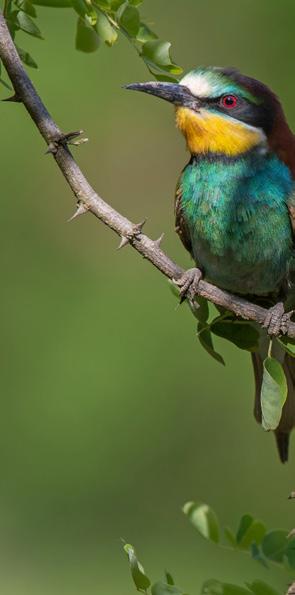
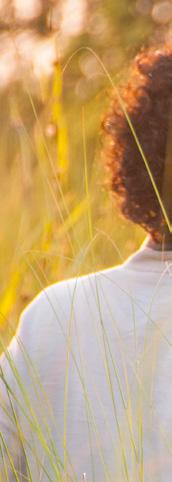

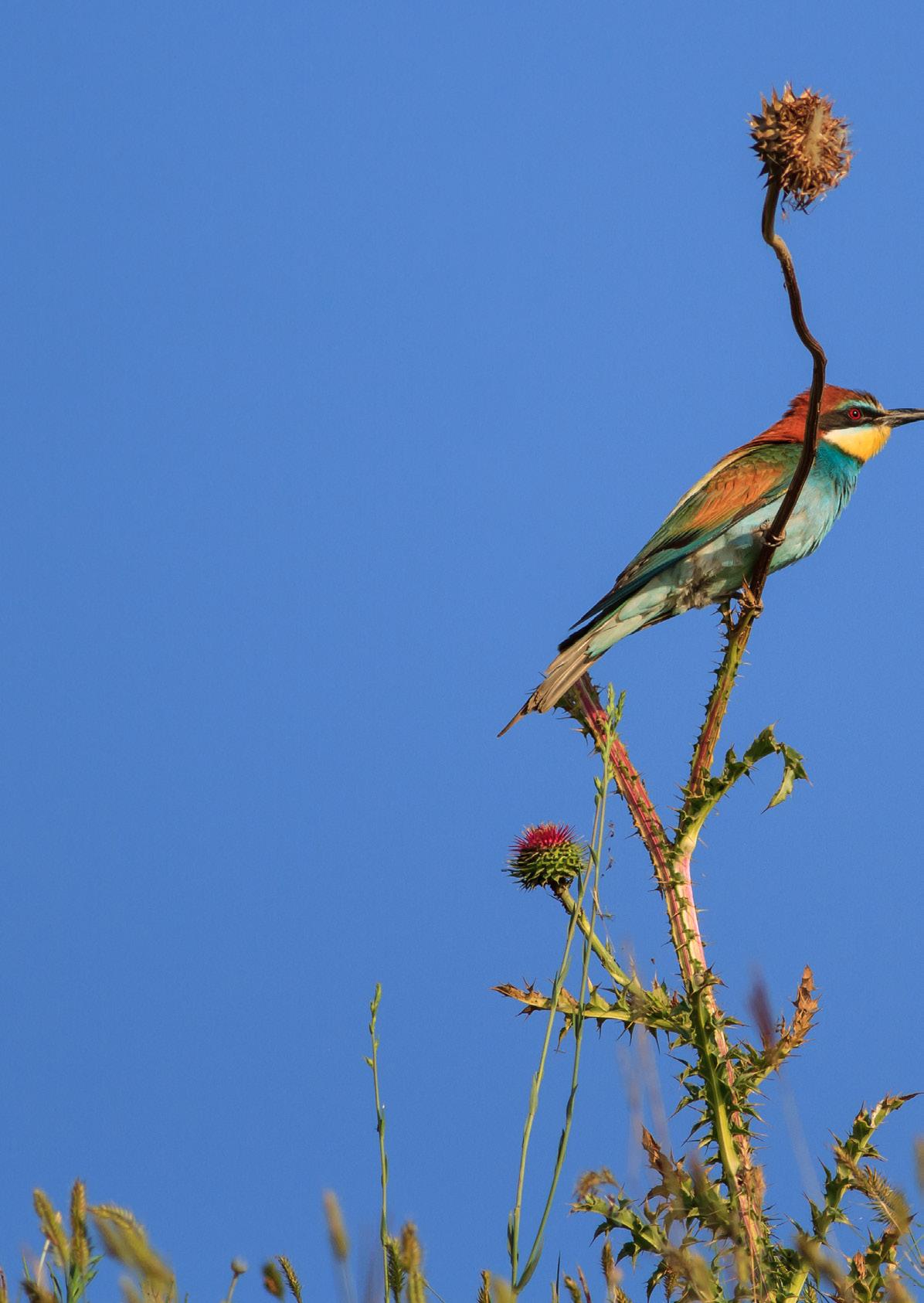
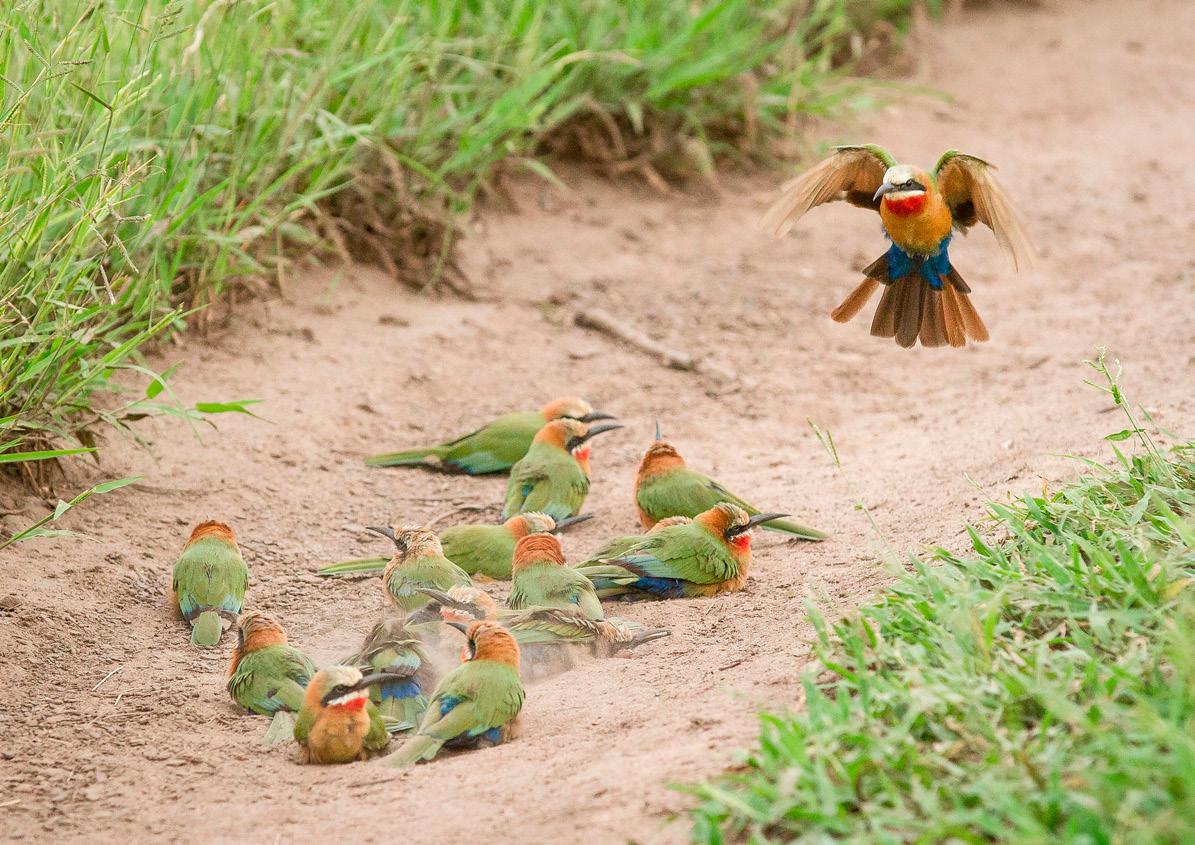
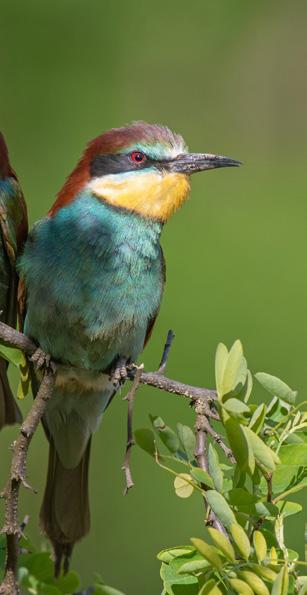
Next, a flight west takes birders to the legendary Victoria Falls area, an Important Birding Area (IBA) boasting over 470 species. The combination of riparian forest, acacia woodland, and the Zambezi River creates a rich mix of habitats.
The best birding occurs along the Zambezi River upstream from the falls. Dedicated boat cruises are essential for spotting rarities such as the Slaty Egret, often found in the secluded channels, the graceful African Skimmer flying low over the water, and the river-favouring Rock Pratincole. In the riparian forests, birders search for species like the stunning Schalow’s Turaco and Brown Firefinch. A visit to the Victoria Falls Safari Lodge for the daily vulture feeding display is a must-see spectacle for raptor lovers, drawing hundreds of White-backed Vultures and Marabou Storks, providing incredible photographic and viewing opportunities of these vital scavengers.
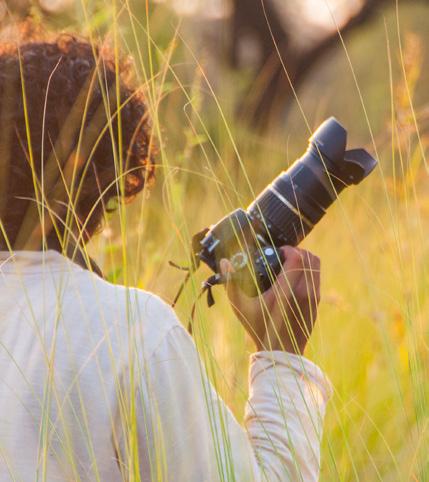
The grand finale is an intensive dive into the biodiverse Eastern Highlands, a realm of mist-covered montane forest and grassland along the Mozambique border. The Vumba, Nyanga, and Chimanimani mountains are the hunting grounds for Zimbabwe’s most coveted ‘specials’ and endemics.
Here, birders dedicate time to patiently track the highly localized Swynnerton’s Robin, often moving through the forest undergrowth, the Chirinda Apalis, and Roberts’s Warbler, all found in the dense, relict patches of montane forest. Other key targets include the stunning Red-faced Crimsonwing, often found near streams, and the vulnerable Blue Swallow soaring low over the high-altitude montane grasslands (seasonal). The mixture of Miombo Woodland and montane habitats in areas like Gosho Park also offers up the distinctive Miombo Rock-Thrush, Spotted Creeper, and several Miombo-associated sunbirds, concluding an unforgettable traverse across Zimbabwe’s most ecologically diverse avian landscapes.




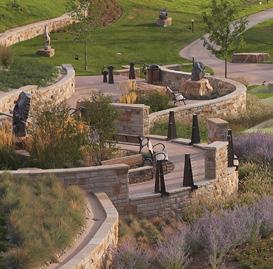
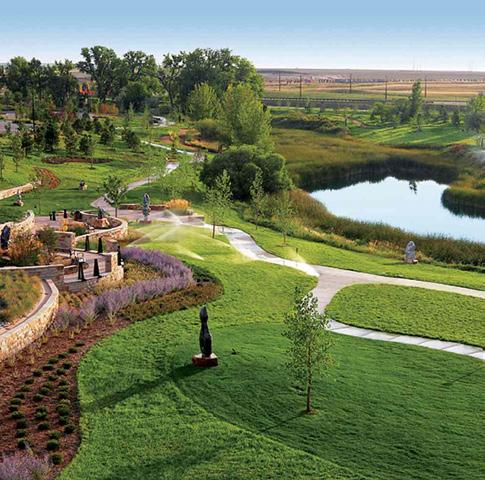
The rich, deep tones of serpentine stone still beckon discerning art collectors to Harare, where the Chapungu Sculpture Park stands as a living testament to one of Africa’s most compelling modern art movements: Zimbabwean stone sculpture, also known as Shona sculpture. Founded in 1970 by the late Roy Guthrie, the 20-acre park in Msasa remains a vital cultural hub, preserving a heritage that stretches back to the very foundation of the nation.
The artistic lineage of this movement is profound, giving true meaning to Zimbabwe’s name, derived from the Shona phrase Dzimbadzamabwe, or “house of stone.” The ancestors of today’s artists were the master masons of the Great Zimbabwe settlement, an 11th- to 15th-century city whose intricate, mortar-free stone enclosures showcase a millennia-old affinity with the material. However, the modern Shona sculpture movement, as the world knows it, gained international traction in the mid-20th century.
Key to its emergence was Frank McEwen, the founding curator of the National Gallery of Zimbabwe, who encouraged a generation of artists to express their deep-seated Shona mythology, folklore, and spirituality. The artists, drawing on the country’s abundant and high-quality serpentine stone from the Great Dyke, quickly established a distinctive style.
As master sculptor Bernard Matemera once described it, the process is one of revelation, not imposition: “The spirits are everywhere in the air, in the rocks… I open the rocks. The fruit is inside.” Themes rooted in ancestral spirits, the importance of family (especially motherhood, which represents the earth itself), and the natural world form the core of the work, connecting the contemporary art to ancient cultural beliefs.
Chapungu Sculpture Park has been an instrumental force in this journey, compiling what is considered the most significant permanent collection of Zimbabwean stone sculpture globally. Here, masterpieces by first-generation legends such as Henry Munyaradzi, Nicholas Mukomberanwa, and Sylvester Mubayi stand in quiet dialogue with the works of the contemporary masters like Dominic Benhura.
Despite the economic challenges that have affected Zimbabwe’s tourism sector, the park is actively sustaining the movement. It continues to host artists-in-residence and is home to several working sculptors who can be seen carving the beautiful springstone, serpentine, and verdite on-site. Furthermore, there are current plans to establish a dedicated museum on the grounds, a much-needed archive to solidify the history of this internationally acclaimed art form locally.
Open seven days a week, Chapungu’s tranquil, open-air gallery remains an essential pilgrimage for collectors and enthusiasts, ensuring that the voice of the stone, and the soul of the Shona people, continues to resonate across the globe.



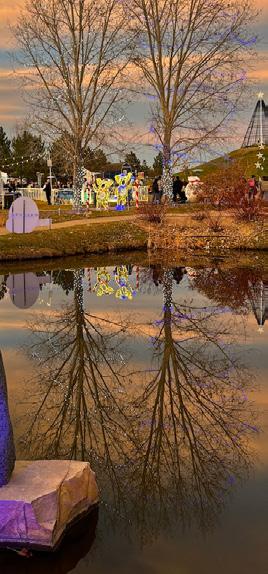


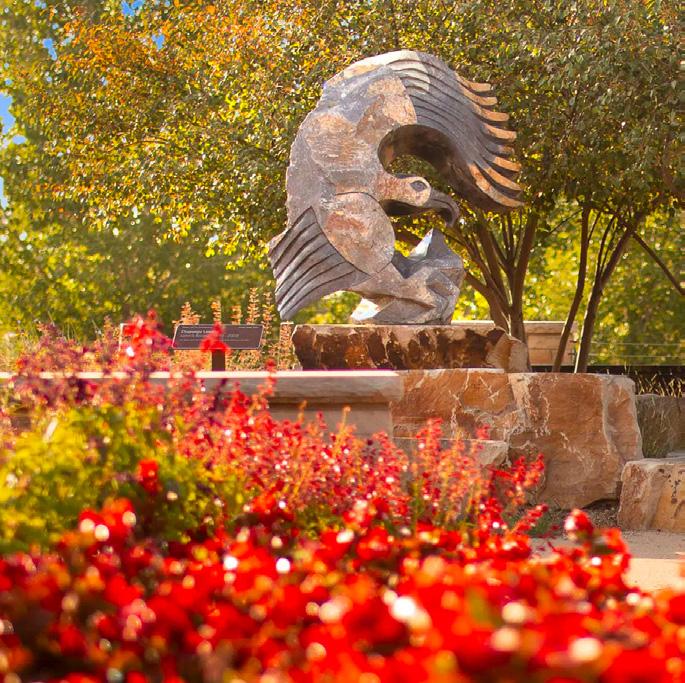

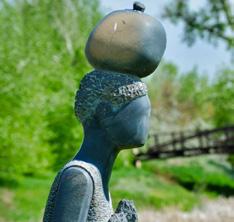


Zimbabwe’s tourism industry is experiencing a seismic shift, moving from traditional game-viewing circuits to high-octane 4x4 adventure safaris and overlanding expeditions. This niche segment is rapidly establishing new, challenging routes that cater to the self-sufficient, intrepid traveler and simultaneously channel economic benefits to remote rural areas. The focus is on immersive exploration, pushing the boundaries of classic safari travel.



Operators are pioneering multi-day routes across Zimbabwe’s most diverse and rugged landscapes, requiring specialized gear and driving skills. These are not merely game drives but fully supported wilderness expeditions.
•The Northern Zambezi Circuit: The journey from Mana Pools National Park to the shores of Lake Kariba is a cornerstone of this new trend. Drivers navigate deep riverine sand and dense Mopane woodlands, facing the true wilderness challenge of traversing areas renowned for big game like elephants and wild dogs. The experience is often capped by loading vehicles onto the Kariba Ferries to cross the massive lake, offering a unique viewing platform.
•The Eastern Highlands Challenge: Far from the wildlife parks, the Eastern Highlands—including Nyanga and Chimanimani National Parks—offer a mountainous 4x4 playground. The routes here are defined by steep ascents, misty forests, and challenging rocky tracks that lead to breathtaking vantage points like Mutarazi Falls. These drives appeal to those seeking scenic beauty and highaltitude hiking combined with vehicle recovery challenges.
Crucially, the expansion of 4x4 tourism is strategically linked to Community-Based Tourism (CBT), ensuring that the economic dividends reach rural communities far from commercial tourism hubs. Projects in areas like the communities surrounding the Save Valley Conservancy and heritage sites like Buhera are being linked to these new routes.
Tourists engaging in these safaris are encouraged to use local community campsites and purchase supplies from rural enterprises. This model provides alternative livelihoods beyond traditional agriculture, fostering a shared incentive for conservation.
For instance, Community Tourism sites in areas near the ancient Chirinda Forest Botanical Reserve are beginning to see benefits from specialized tours focused on birding and botany, accessible only by robust 4x4 vehicles. This deliberate, decentralized approach is strengthening the connection between tourists, conservation efforts, and the people of Zimbabwe. The future of Zimbabwean tourism is now being charted one challenging off-road kilometre at a time.




